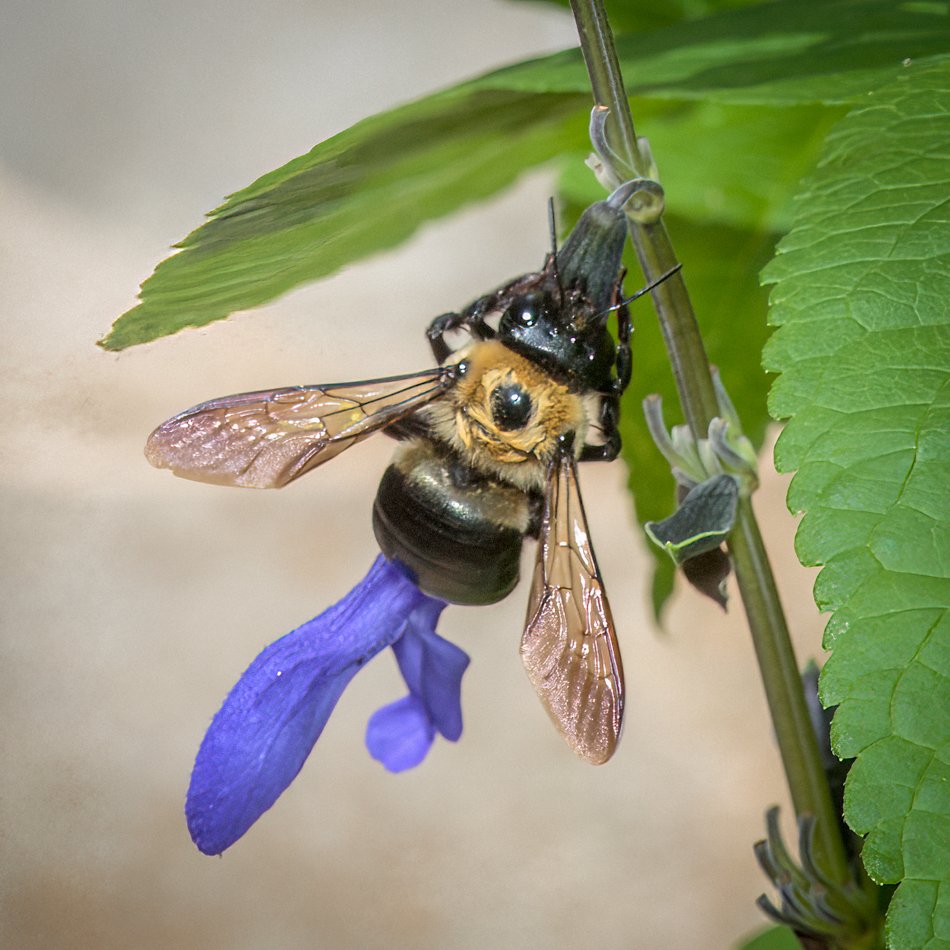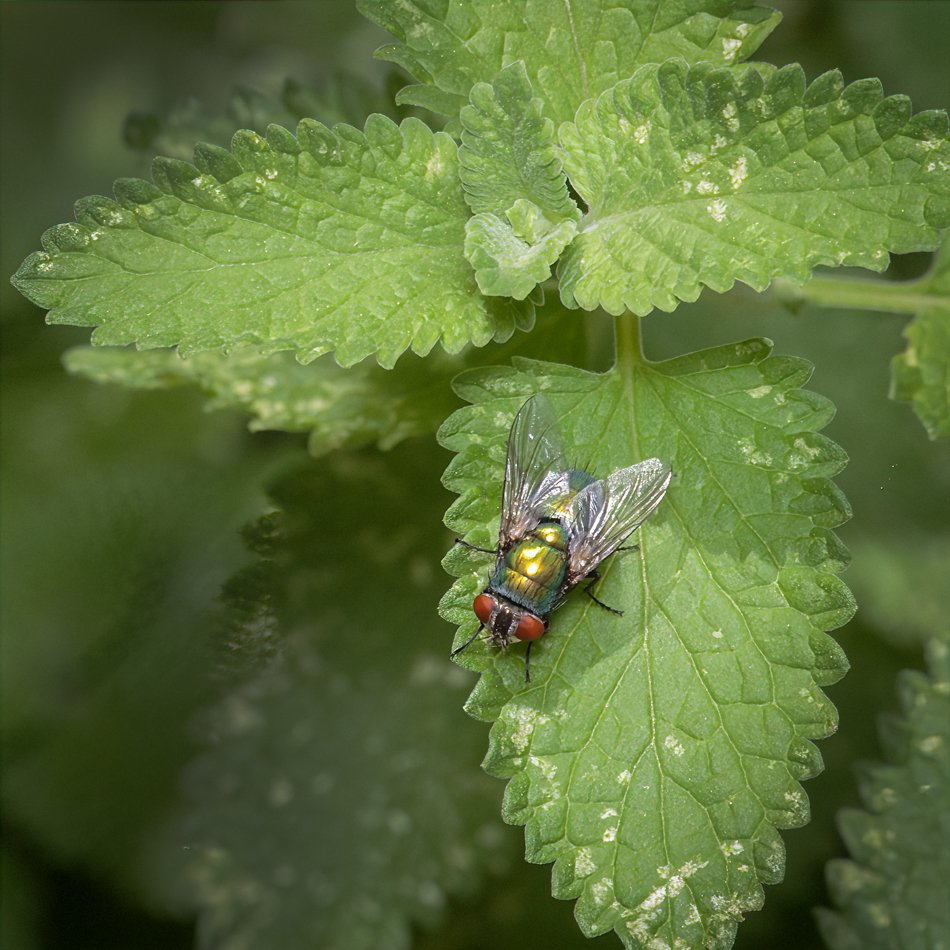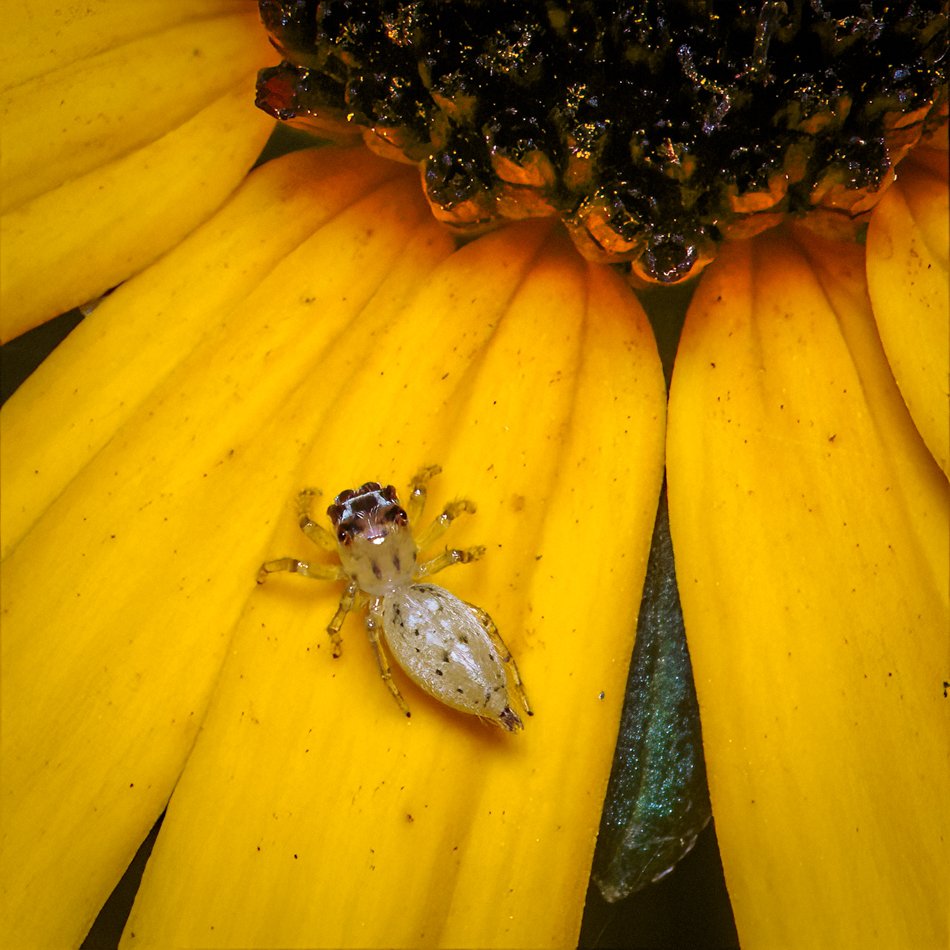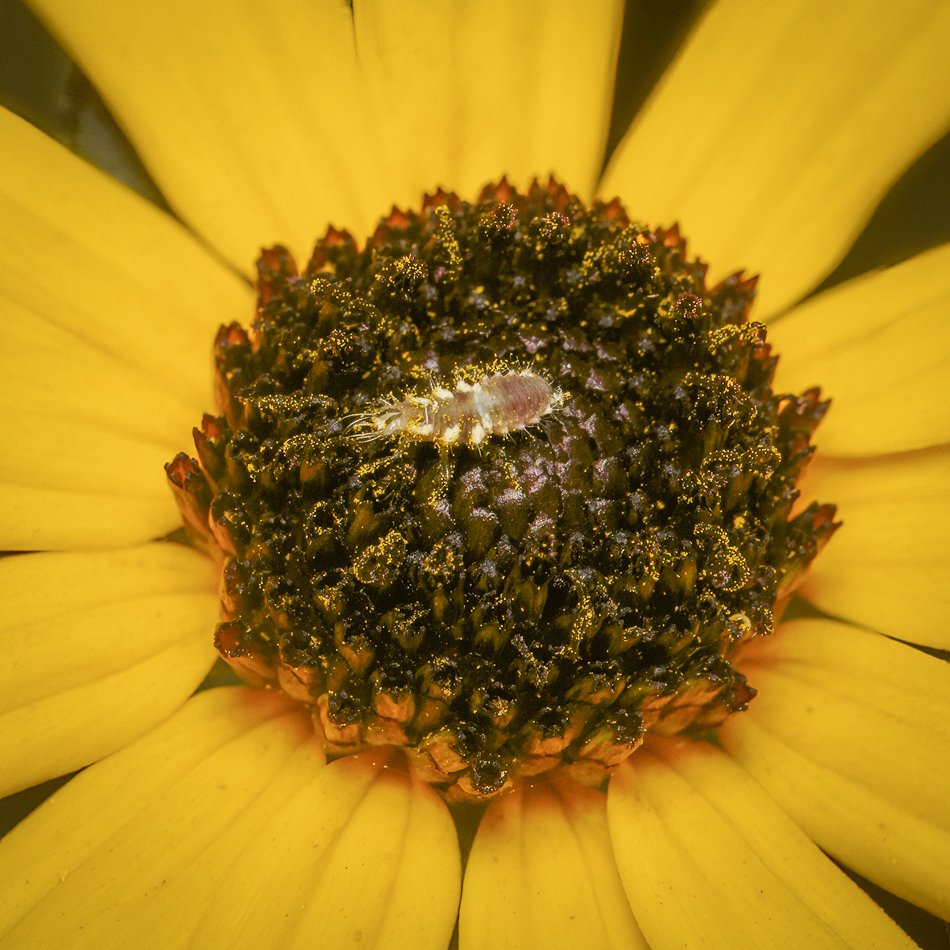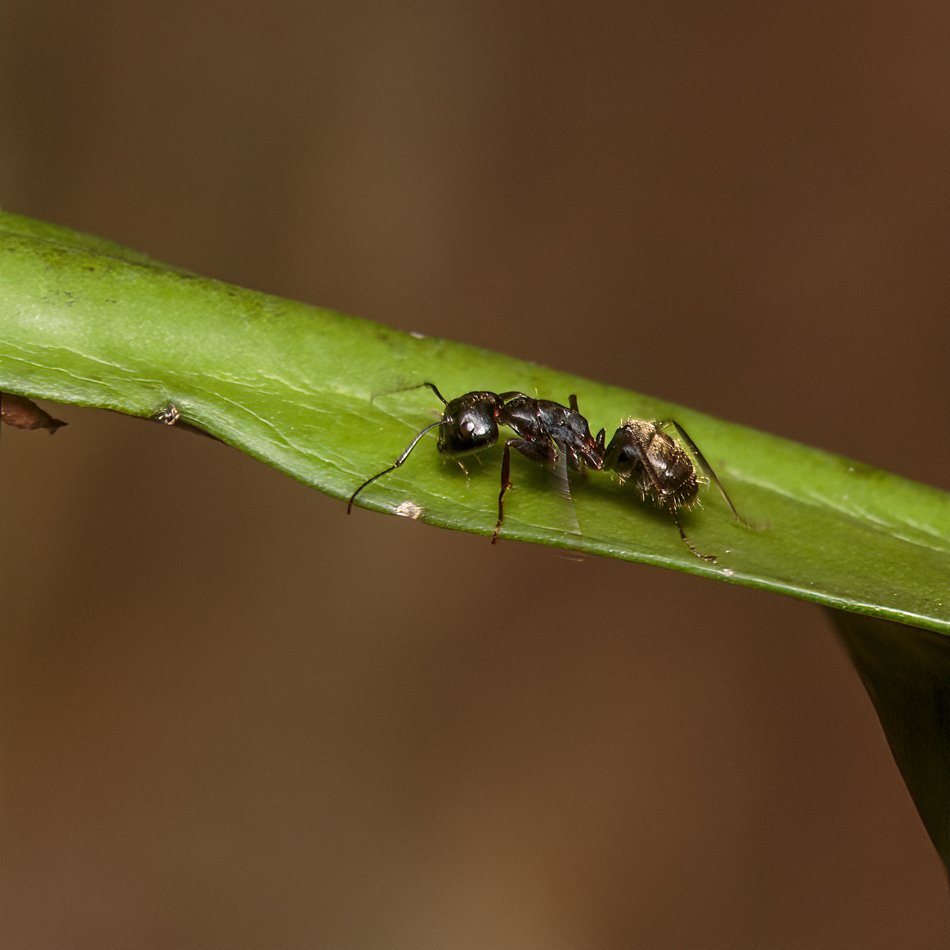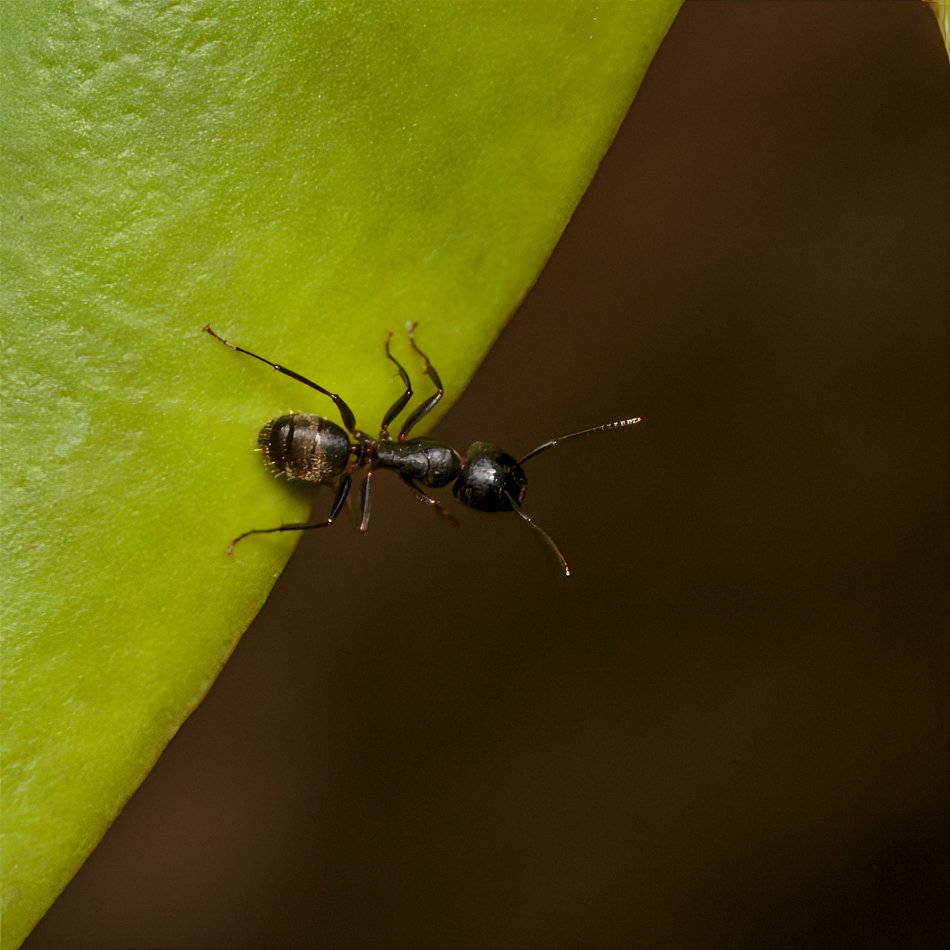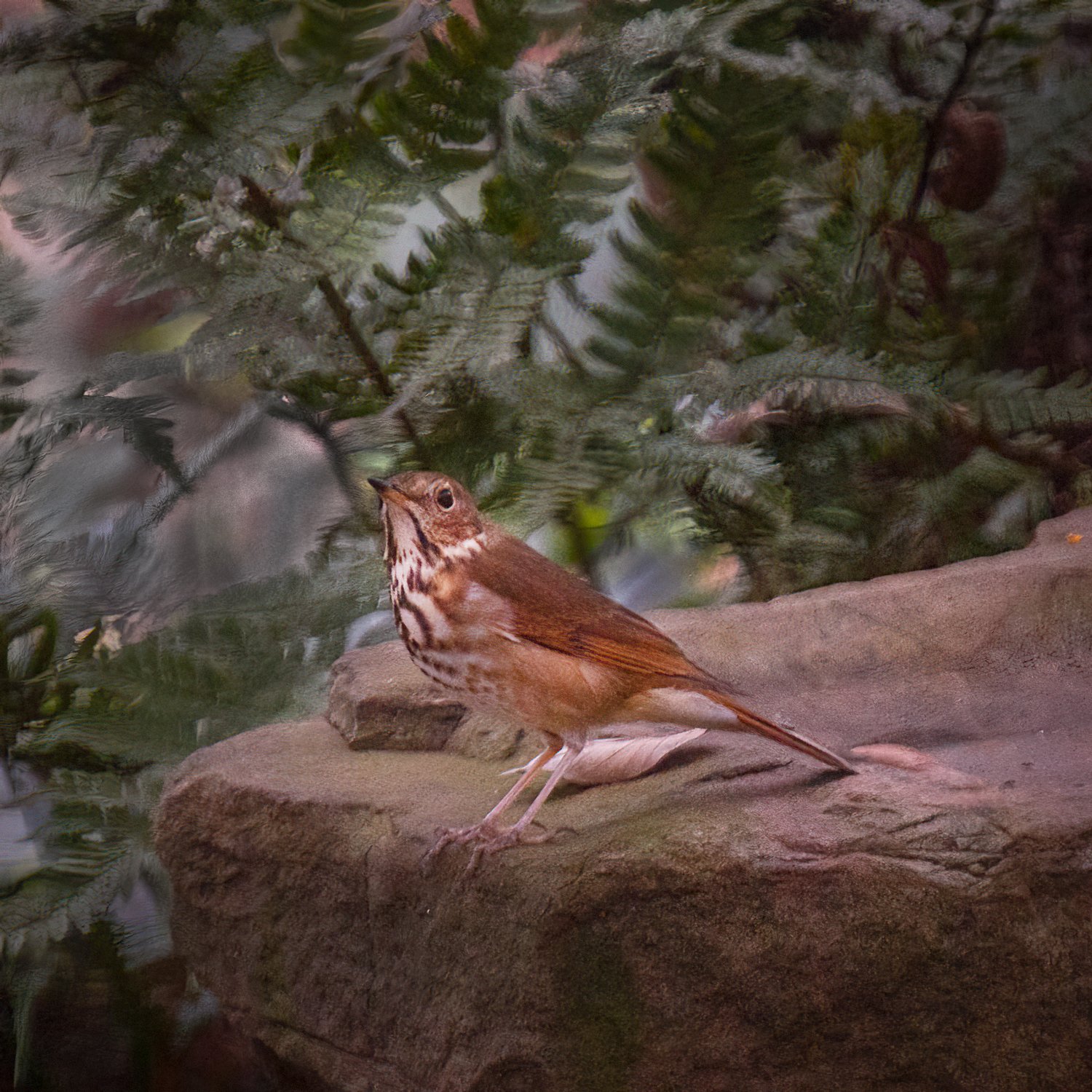
Hermit Thrush (Catharus guttatus)
Charles Allen Haynes
When you have seen one ant, one bird, one tree, you have not seen them all. —- E. O. Wilson
“To me nature is a bit like a steamroller driven by a man with a smiling face, he’s waving, handing out candy… fine, wave back, eat the candy just don’t get in front of the roller.” ch 2022
The 712 Project is introduced in Il Mondo, but resides here.
Forty-eight years ago I proposed a project for educational television that would find an acre of the earth’s surface that contained running water, standing water, meadowland and forest and describe as much of the life as could be identified and photographed in and on that acre. I still find that idea intriguing.
For as long as I live here I’ll investigate what I find on this lot (45’ x 195’), everyday, rain or shine, winter or summer. I’ll identify the images as I find them. Might not be every single day but as often as I can.
December 19, 2022
Stopped for a little coffee pick me up and glanced out the window to the bird bath. This Hermit Thrush has been sitting there for over an hour now.

Hermit Thrush (Catharus guttatus)
November 5, 2022
Bear with me. I’m going through a period of adjusting my heart medications and treatment. Some days I don’t feel so good. I’ll get back to it.
October 4, 2022
You’re sitting around the table in the backyard talking about stuff and you get an unexpected visitor who stays for a while, always nice.
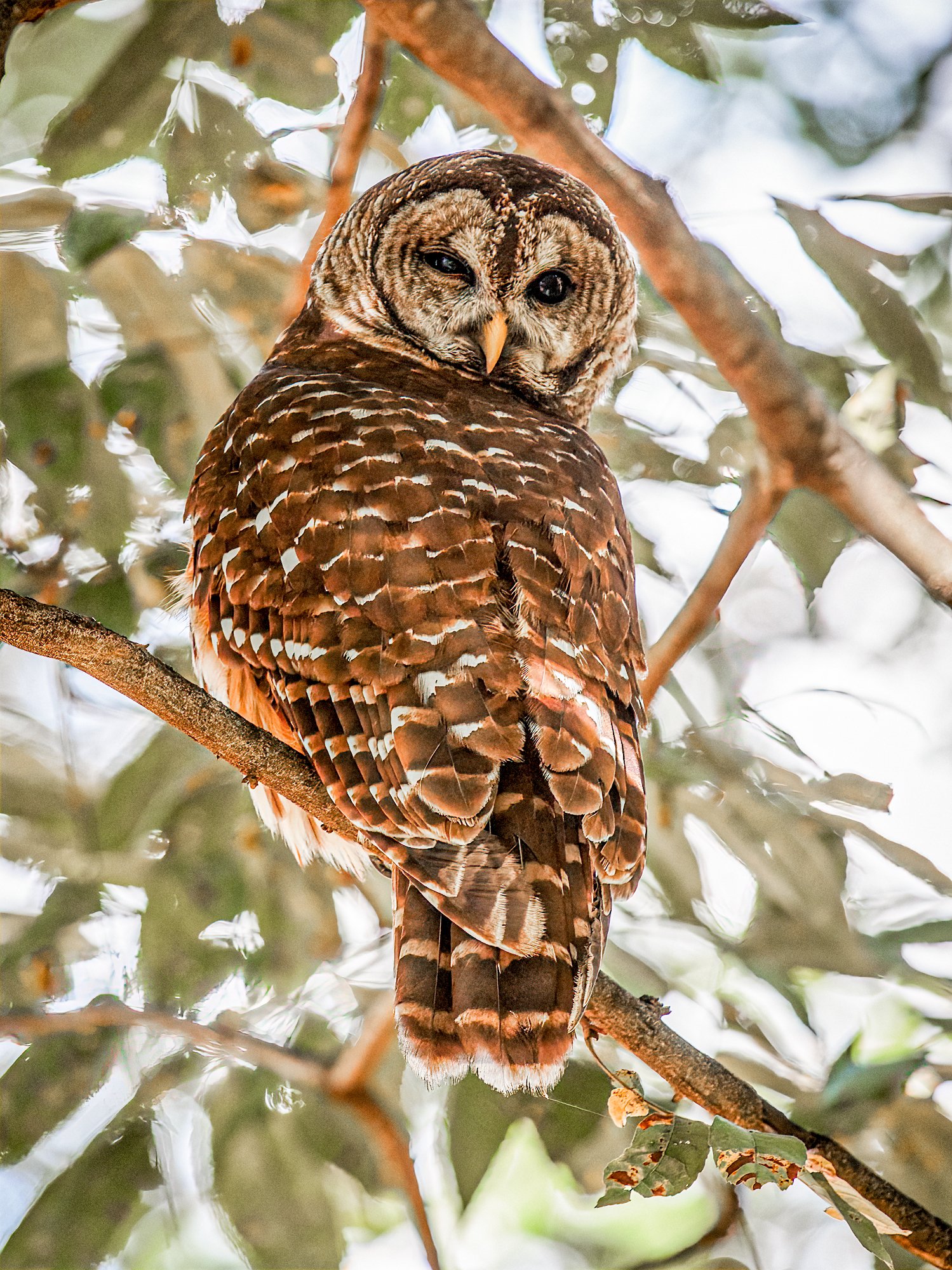
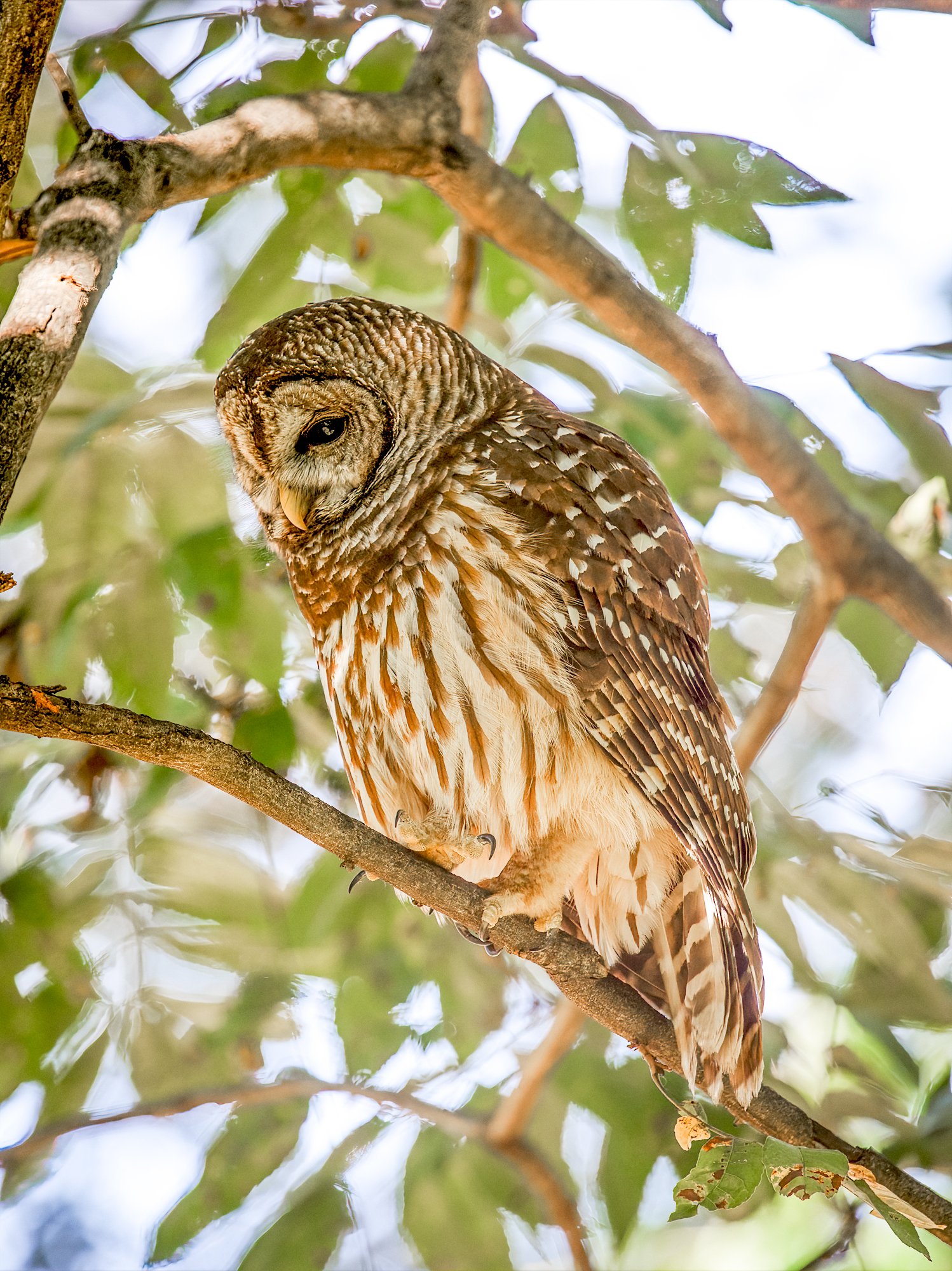
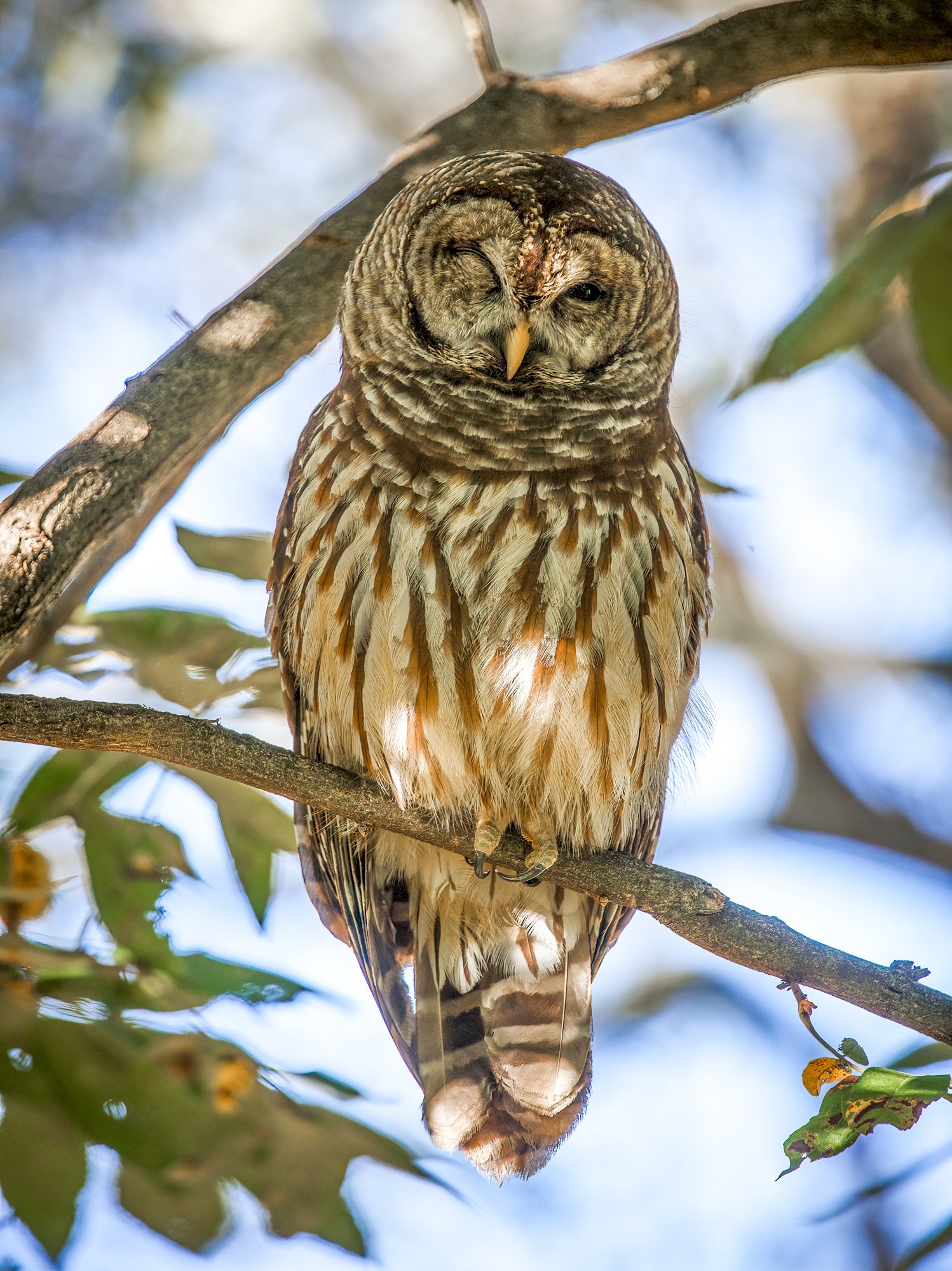
October 2, 2022
This time of year I begin to see various moths show up on the porch ceilings. I guess it’s getting a little cool and the porches provide some haven. This little one has about a 2 cm. wingspread, looks nondescript at a distance but very interesting up close.
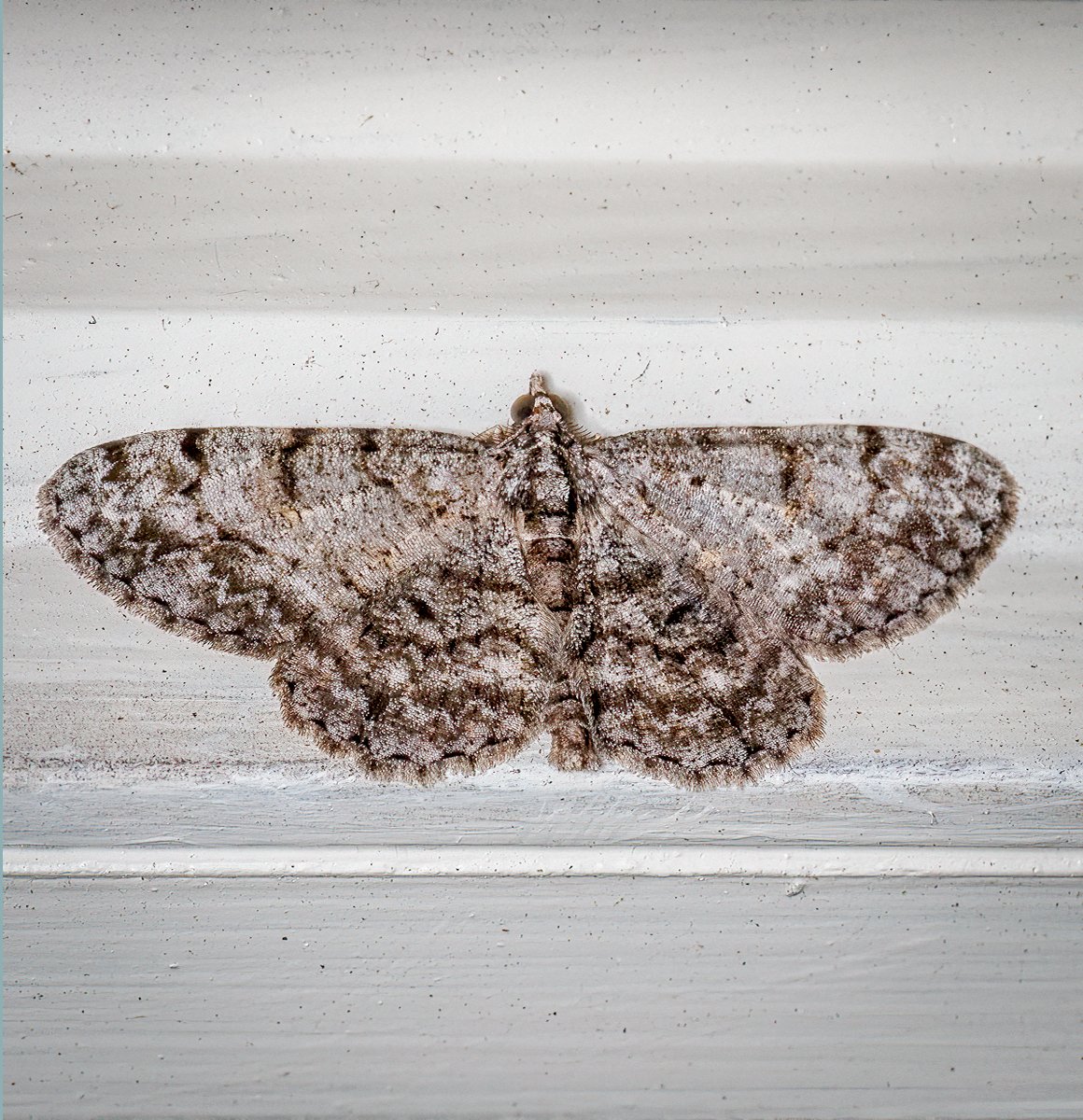
September 28, 2022
Daylight moth, Mournful Sphinx, female. (Enyo lugubris) Just there, cool morning, on the front porch.
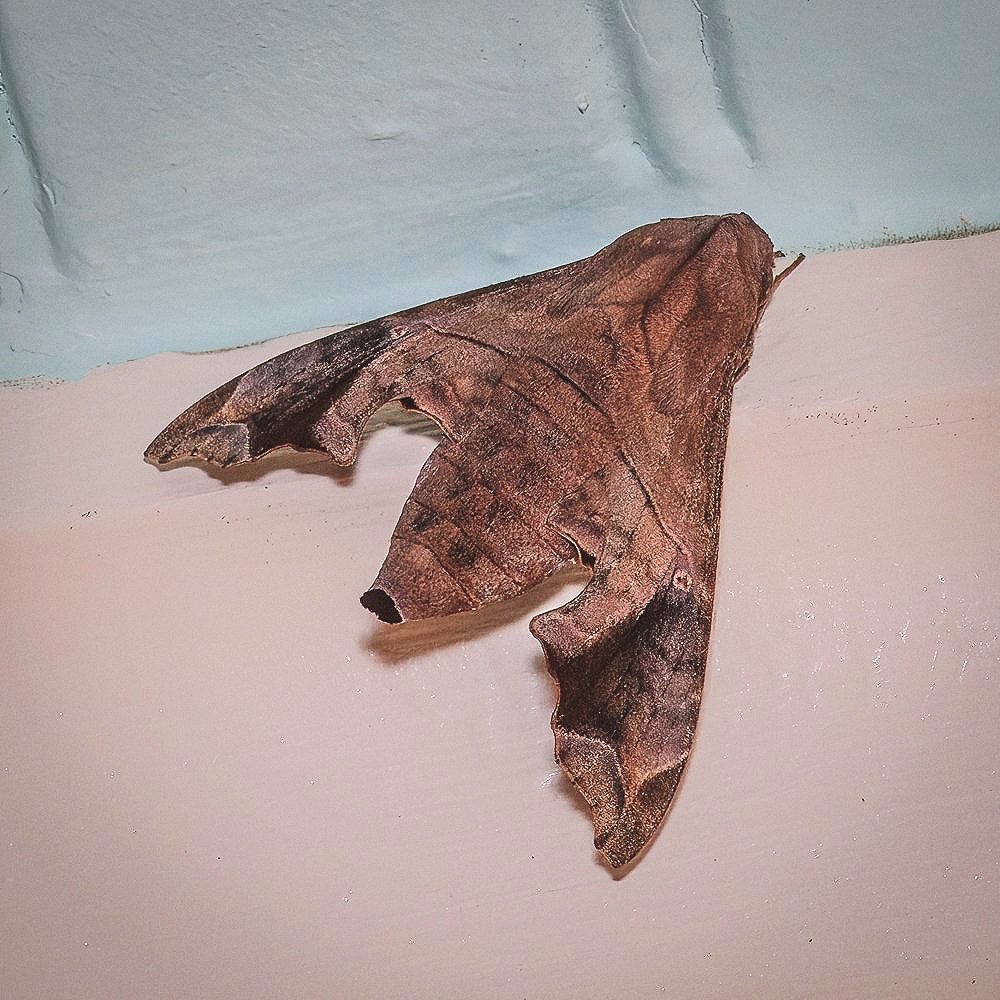
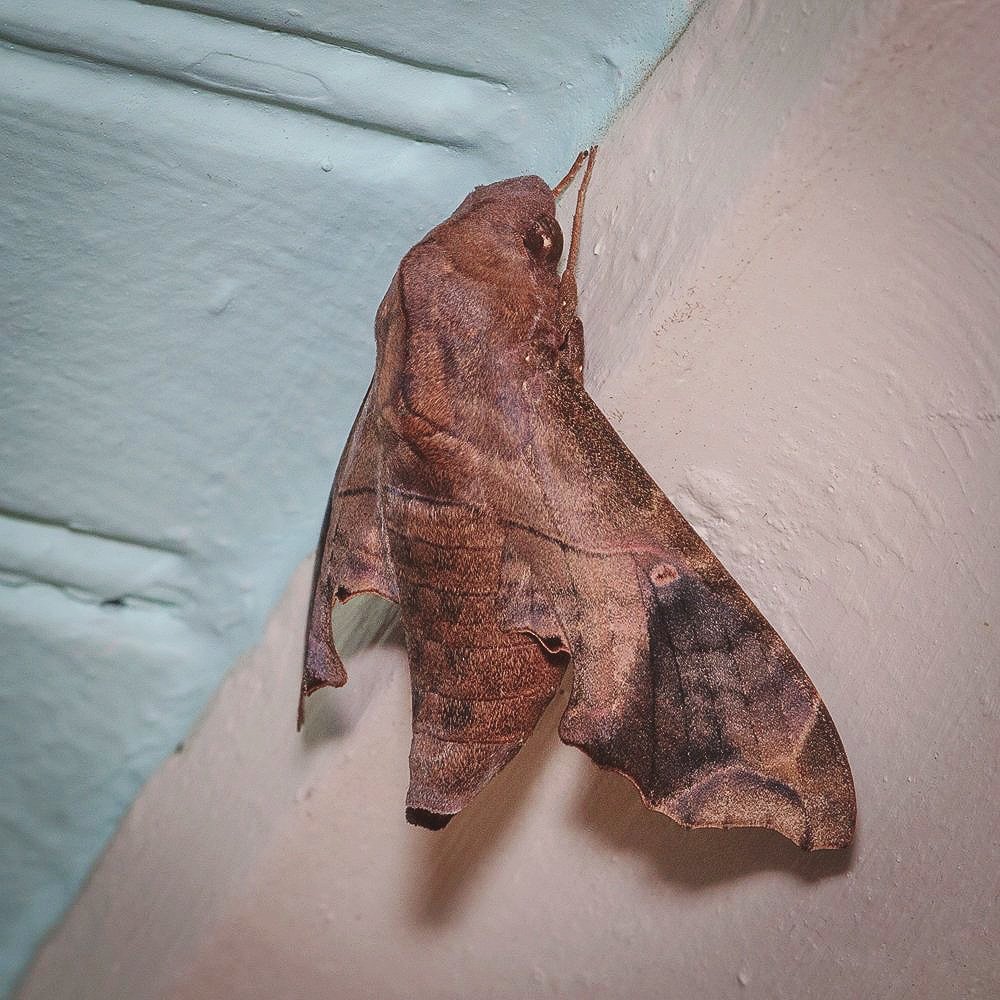
September 22, 2022
The Spinybacked Orbweaver, (Gasteracantha cancriformis). There are several around. The wind keeps blowing their webs down. This one was back by the garage.
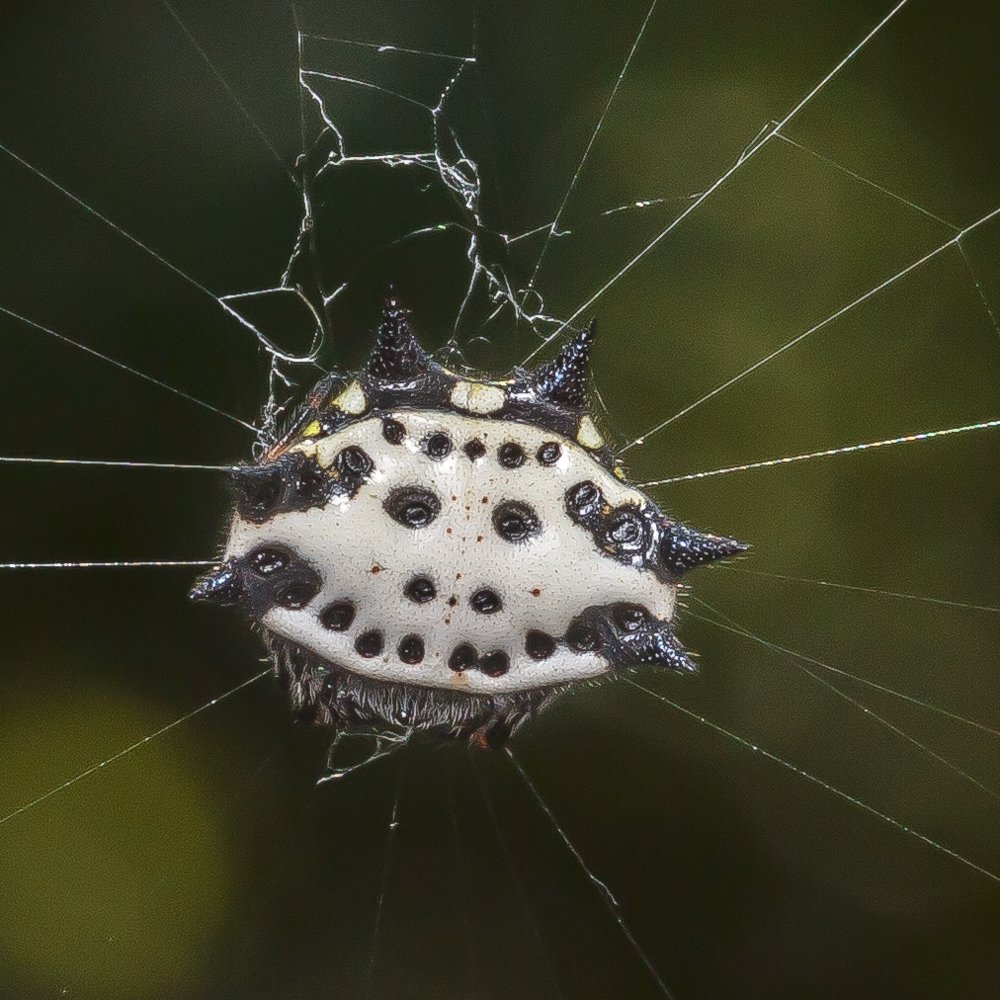
Spinybacked Orbweaver
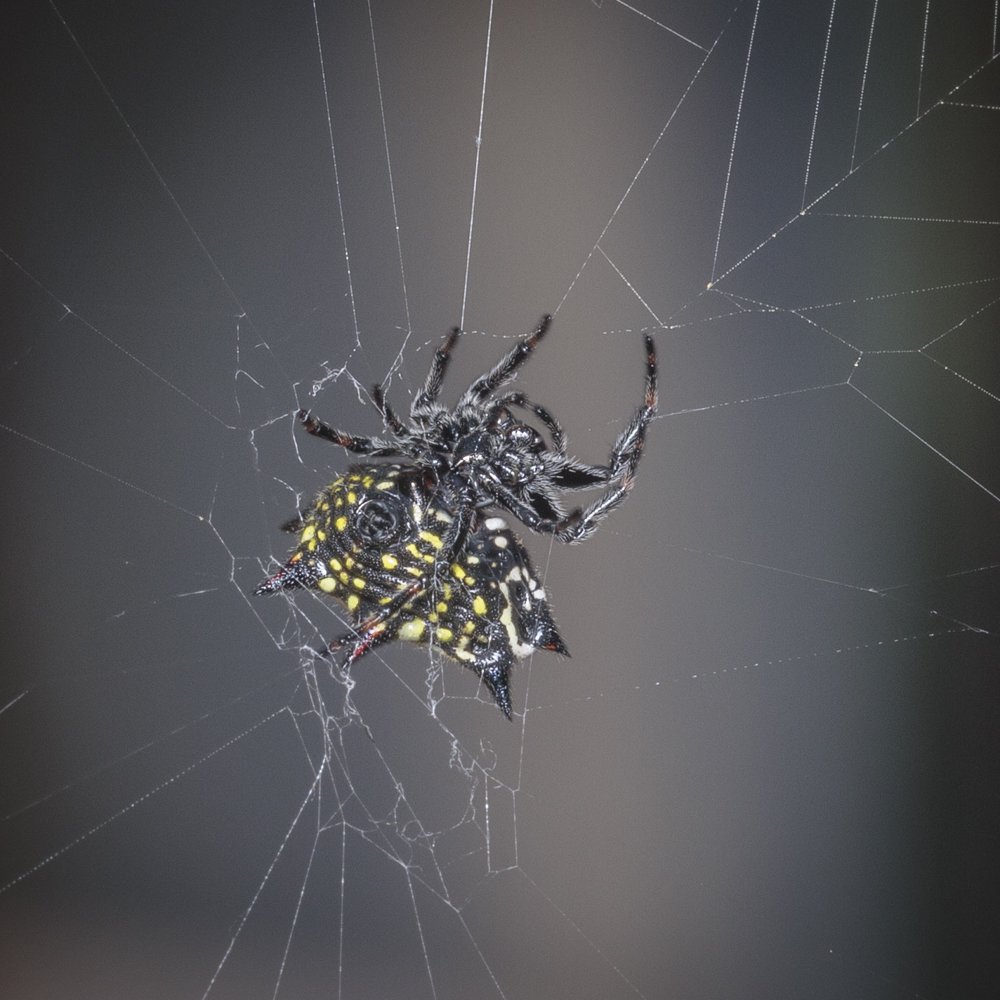
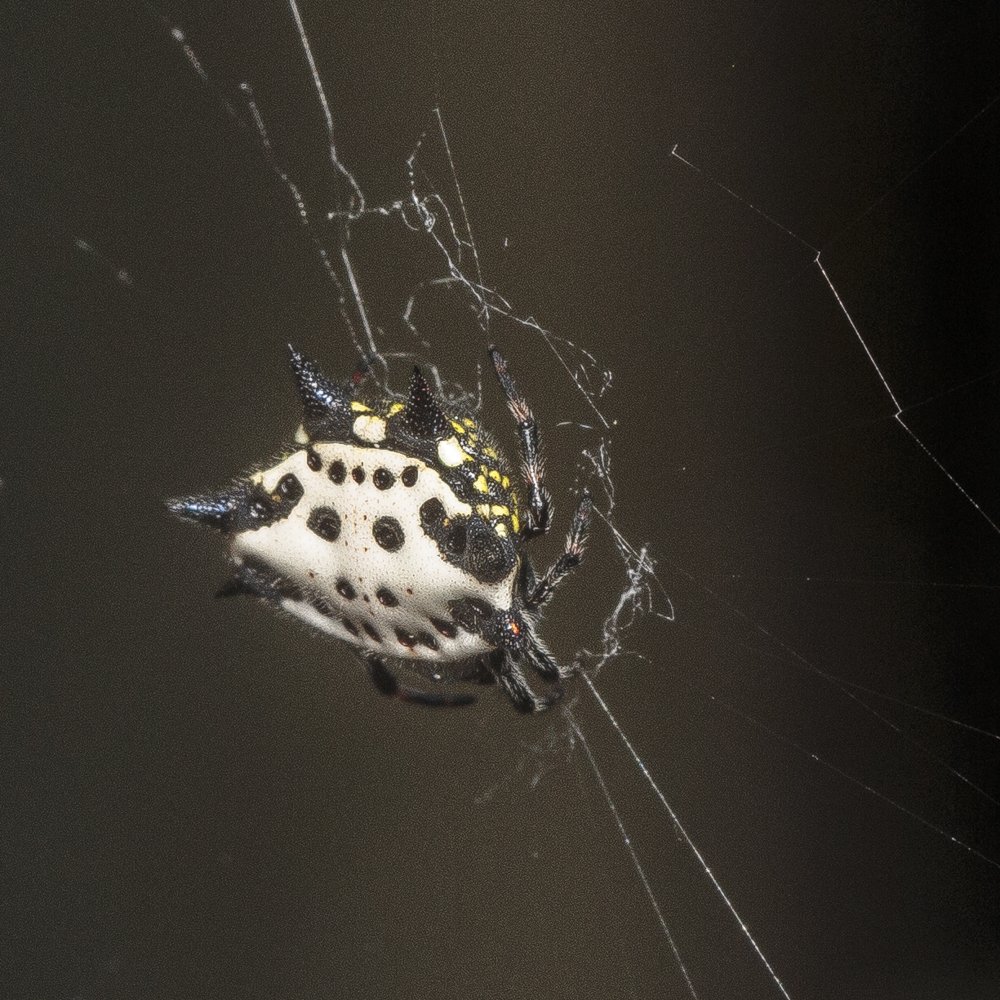
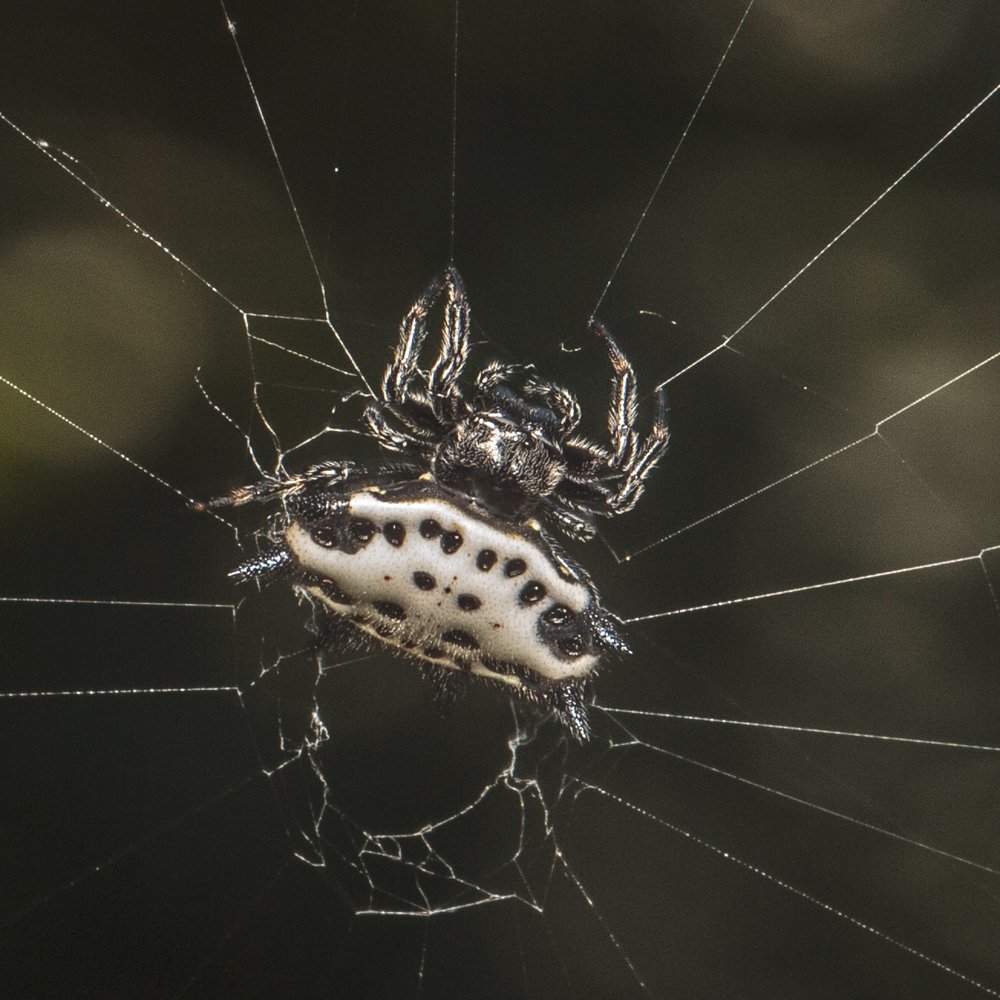
September 15, 2022
The true “Army Worm.” This is the adult Mythimna unipuncta, a species that can have tremendously adverse effects on farm field crops. I let her go anyhow.
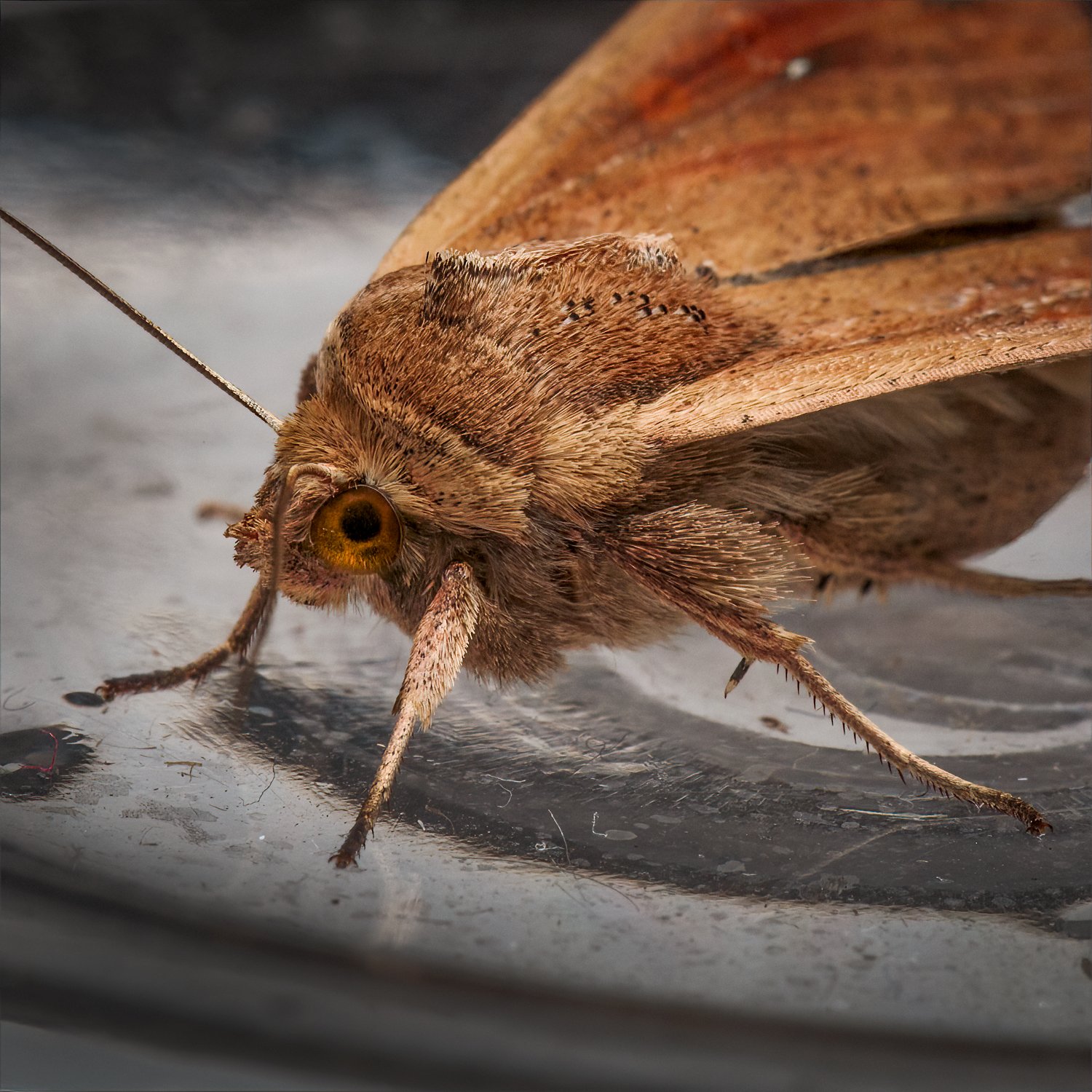
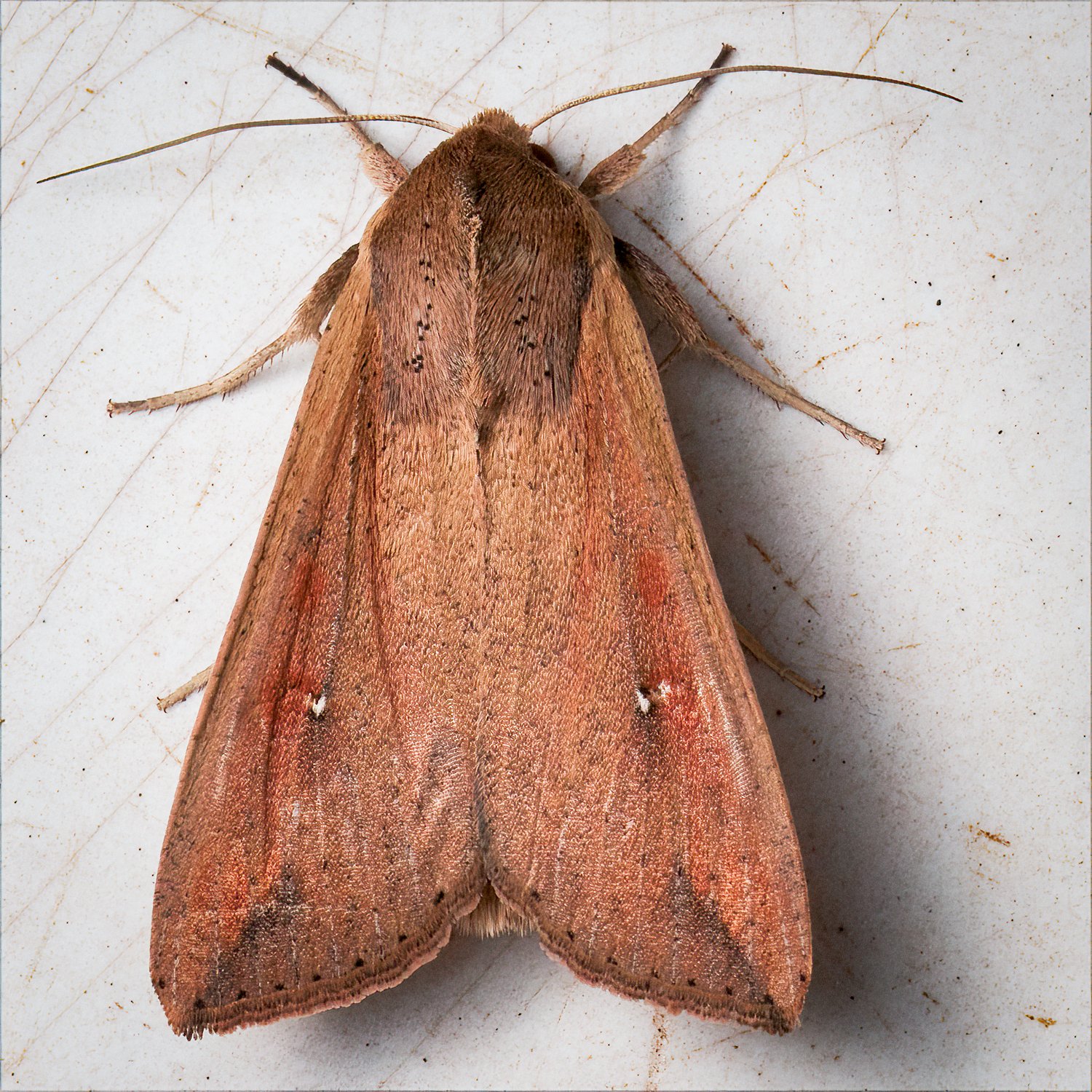
September 10, 2022
I’ve been avidly watching this flower bed for two months and there is always something new.
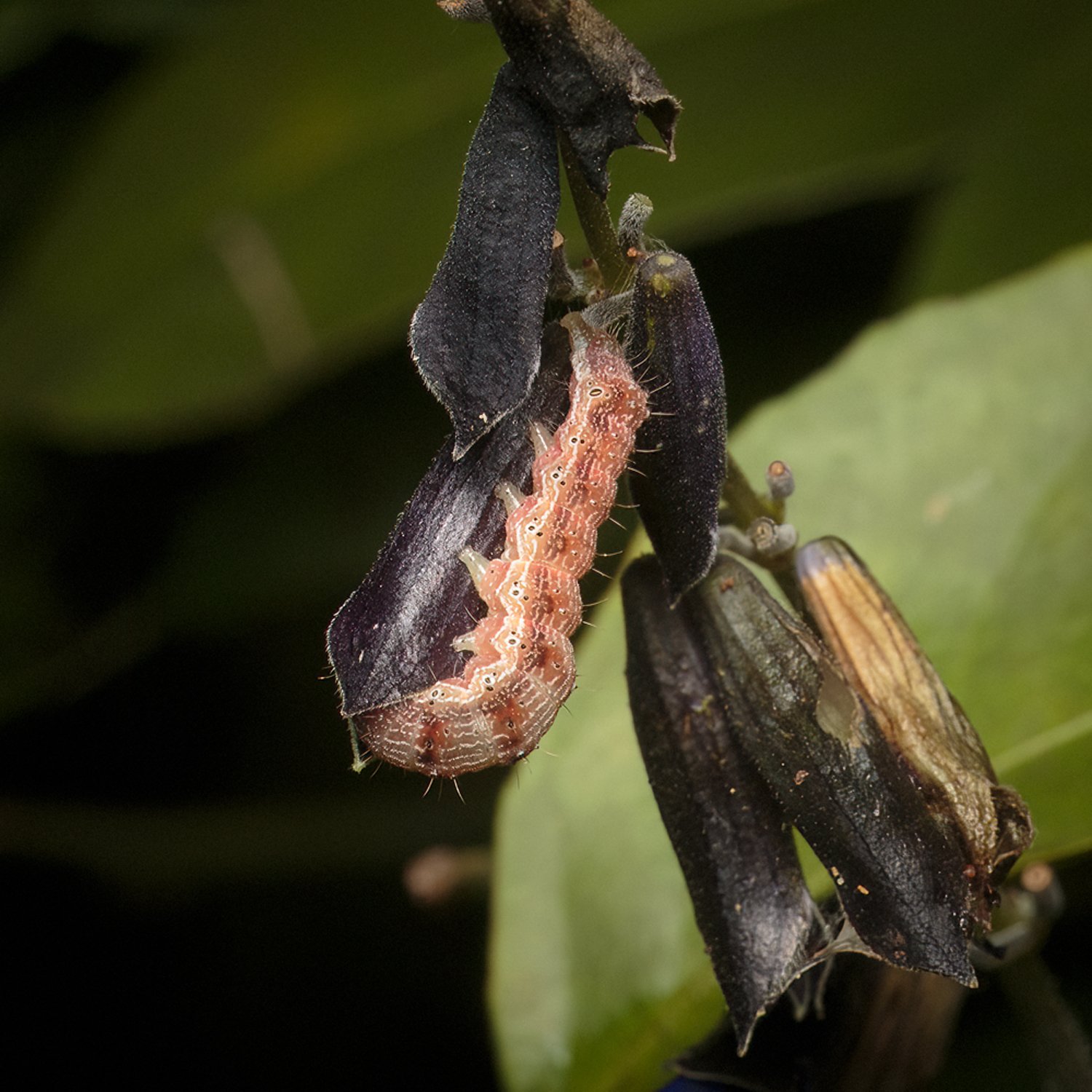
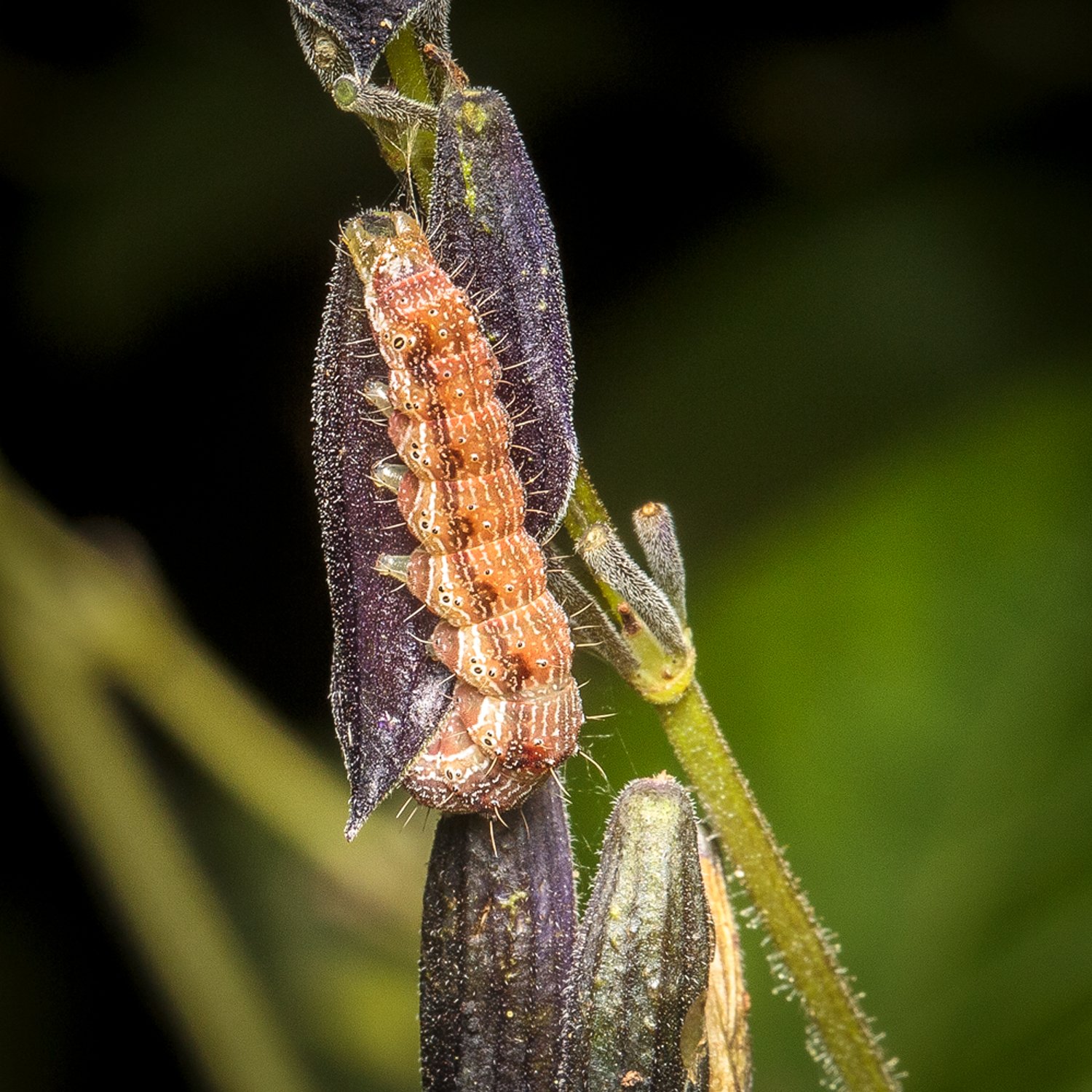
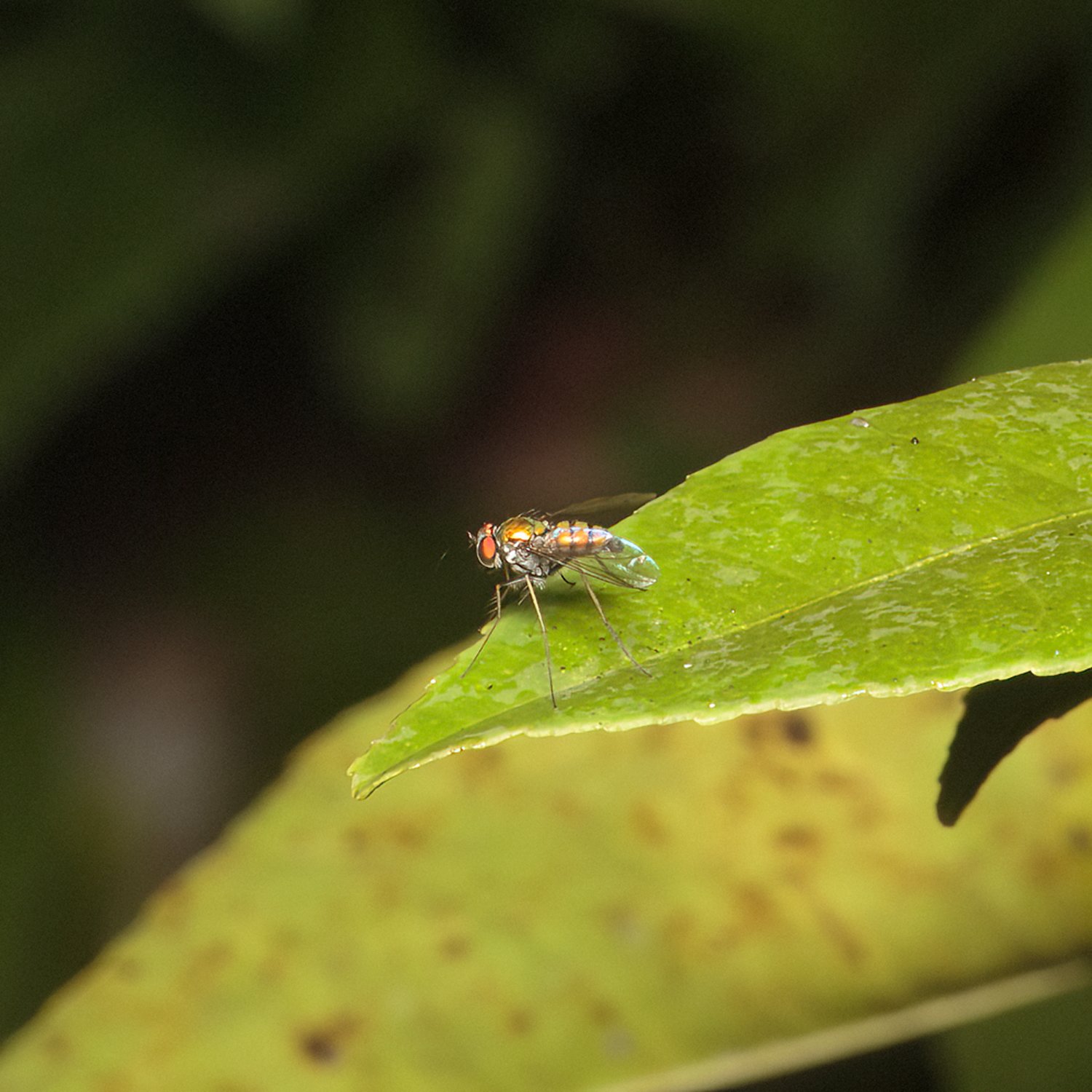
Here’s this little lady I thought was lost. A strong wind and rain came through the other day and her web was swept away. I found her this morning with a much smaller web on a porch column.
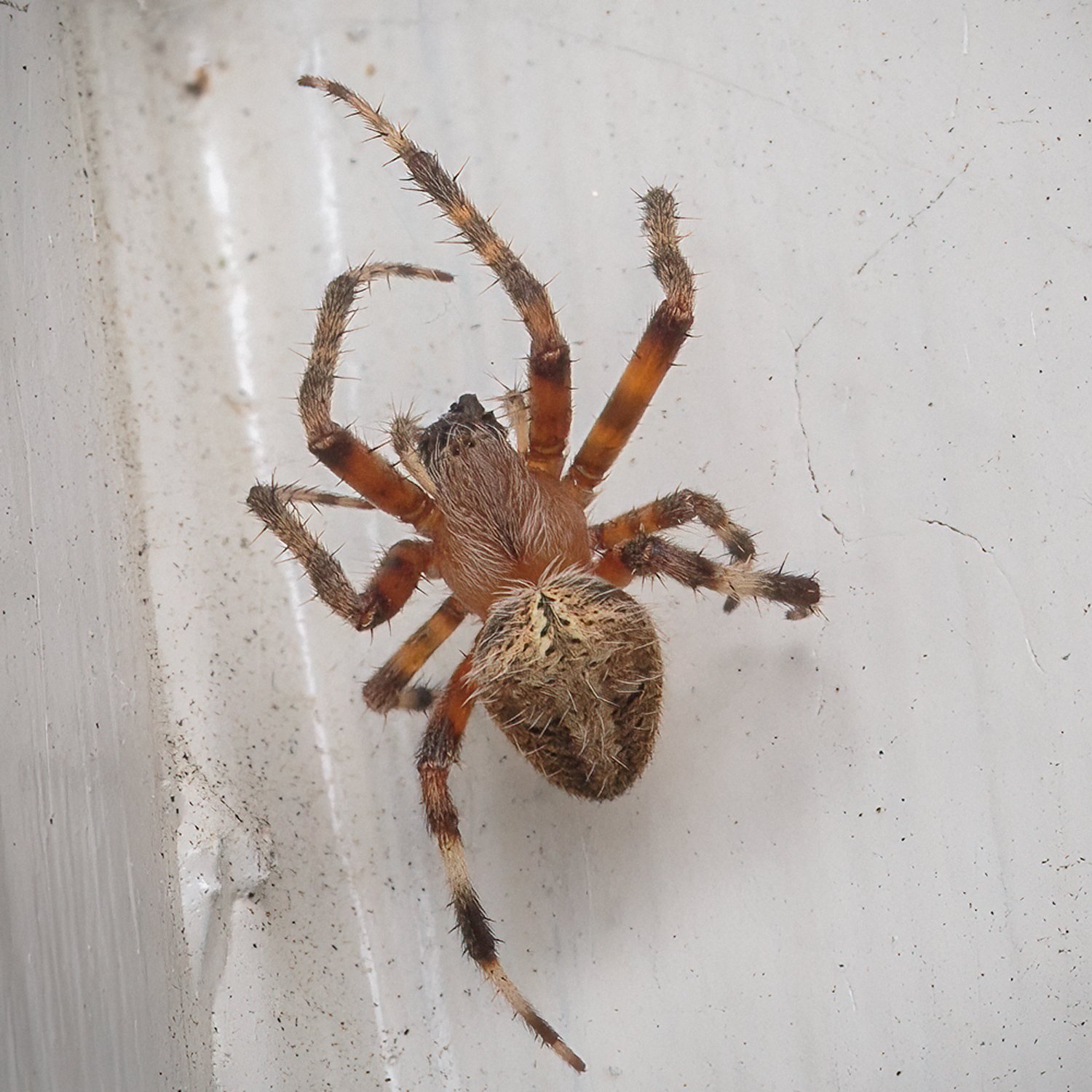
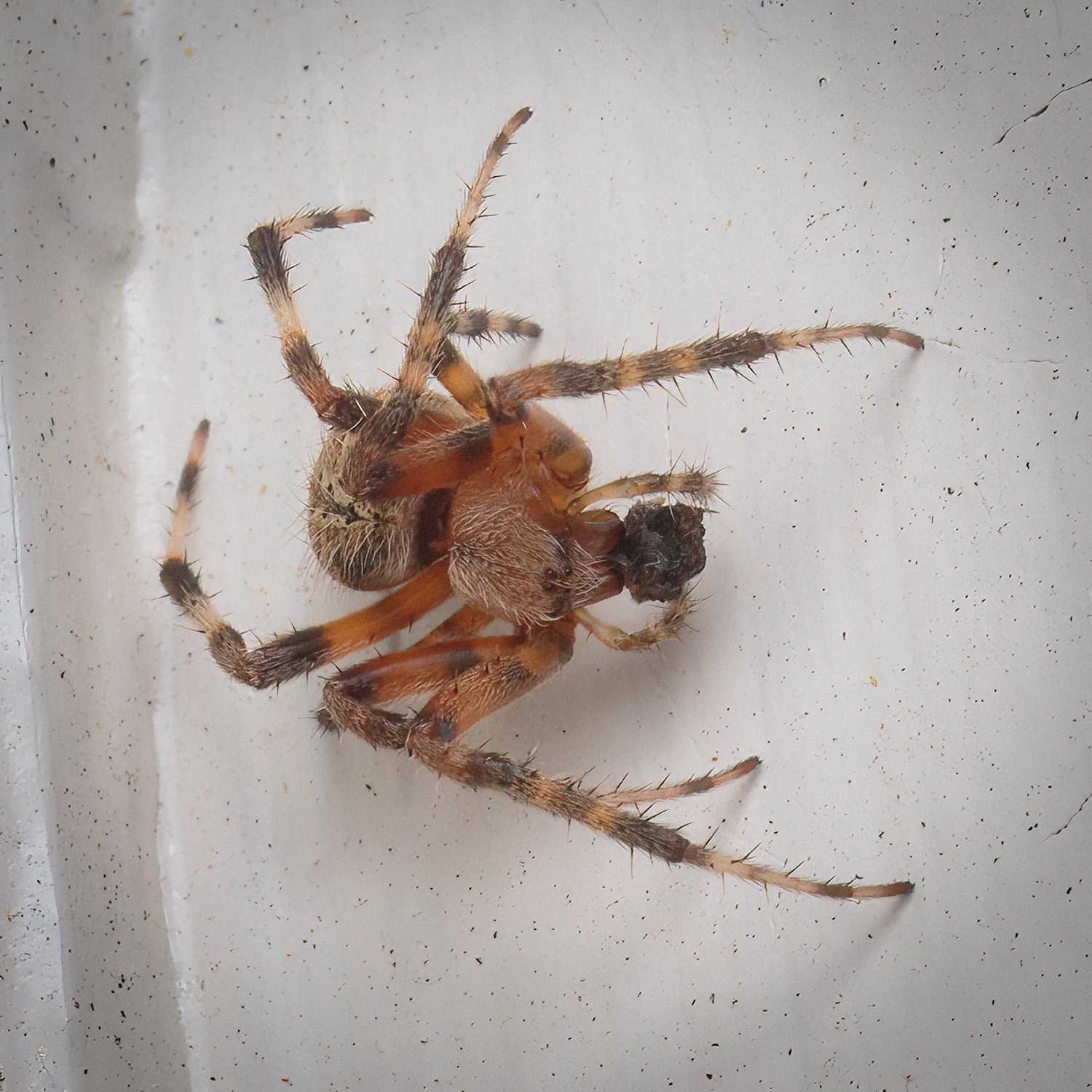
September 8,2022
Last evening I set up the black light to see what I could attract; moths, flies, etc. Almost nothing and then I noticed this little guy sitting on the metal rod of the umbrella… And I mean a little guy, 5mm.
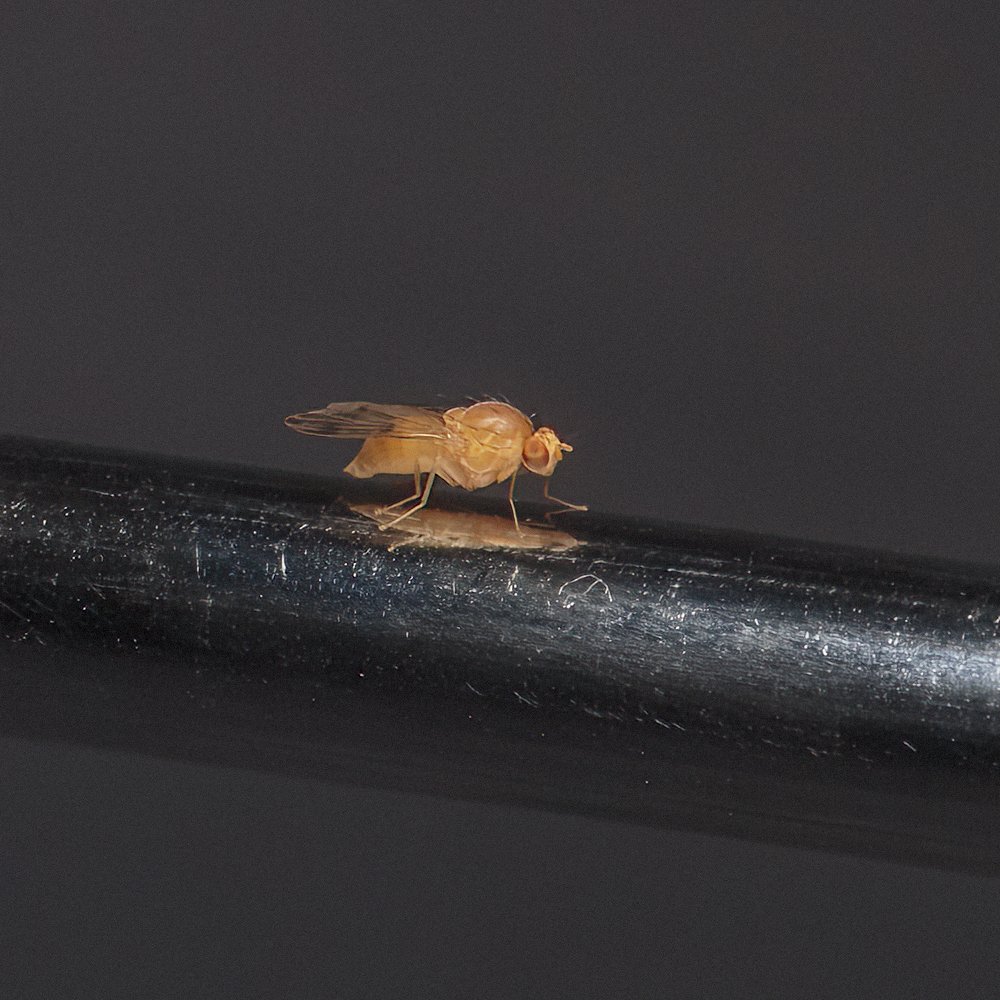
September 8, 2022
Yesterday Franca found this Cicada and although I was very careful in examining it I think it was on its last legs and was soon inert so I’m using it as an opportunity to study the morphology and working on the identification. I had no idea there were so many species of Cicadas. I’m pretty sure this is a female. You can kinda tell because the females are so much prettier than the males.
Addendum: I think this is Davis' Southeastern Dog-day Cicada - Neotibicen davisi, (Female). I’m not sure, I’ve seen many photographs that purport to be an image of this species… many of them are very different from each other. For some reason I can’t find an identification key for Georgia online or a book that includes a key. In any case I’m pretty sure it belongs to the genus Tibicen.
Addendum 2: I did find a key, the “Davis” key written in 1918.
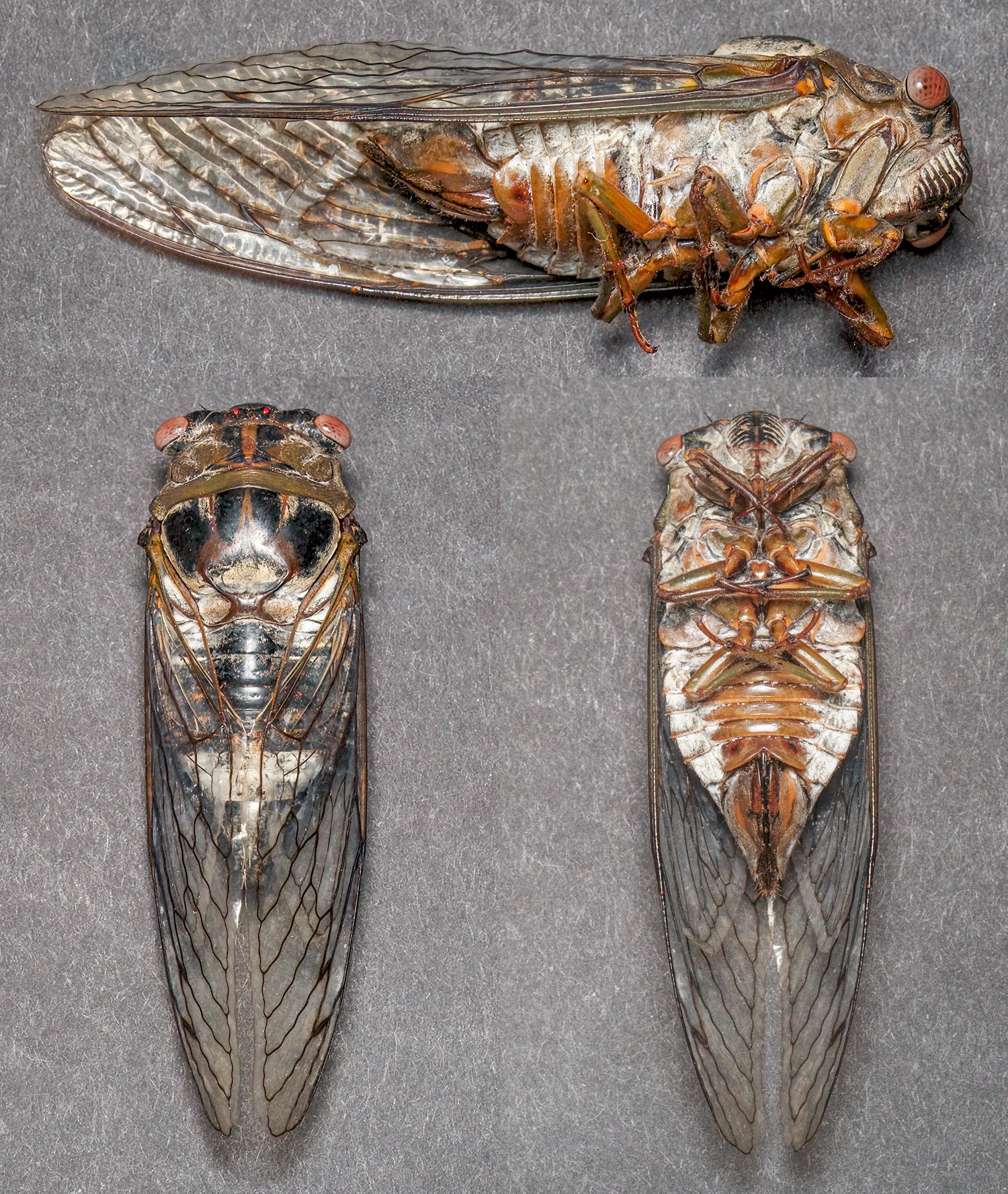
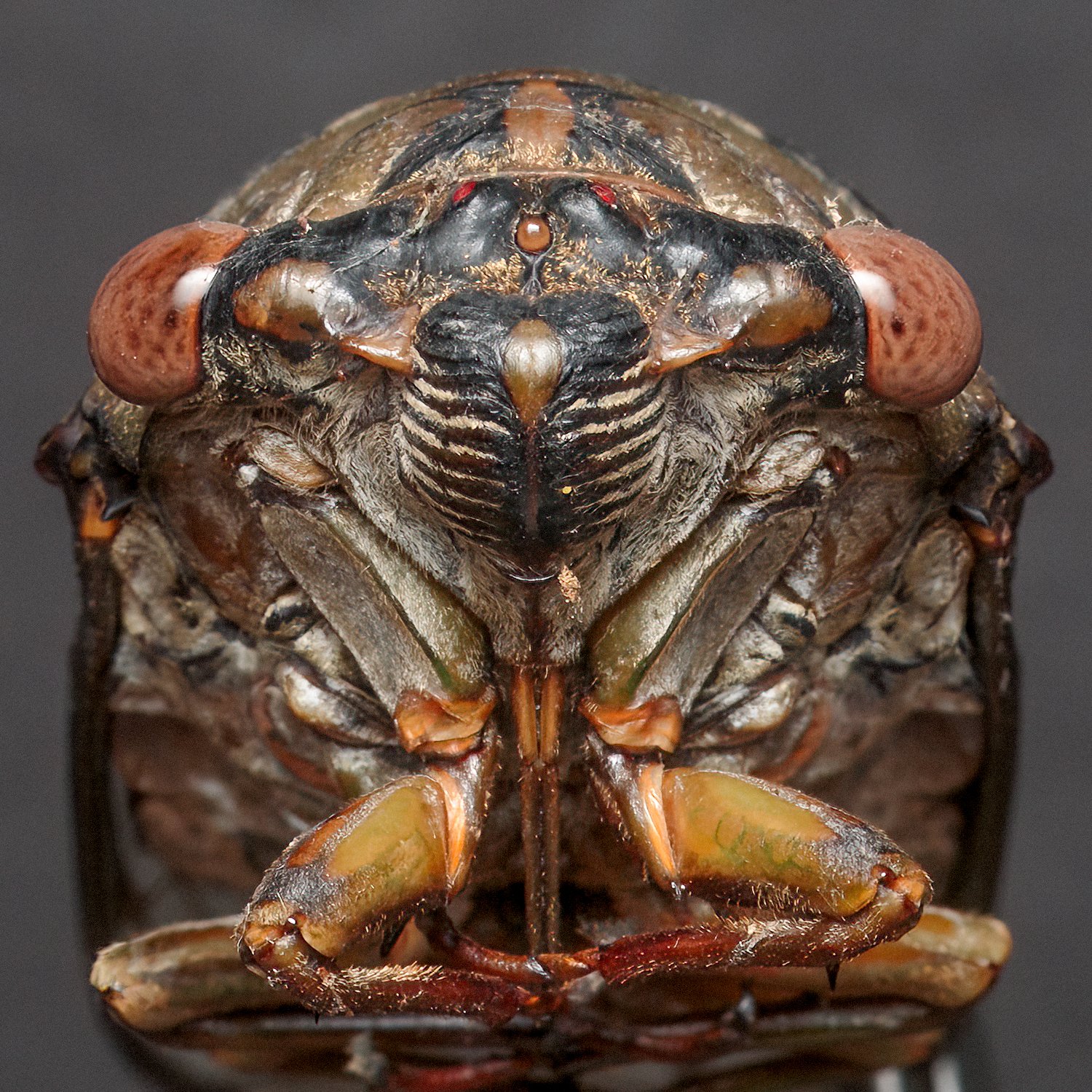
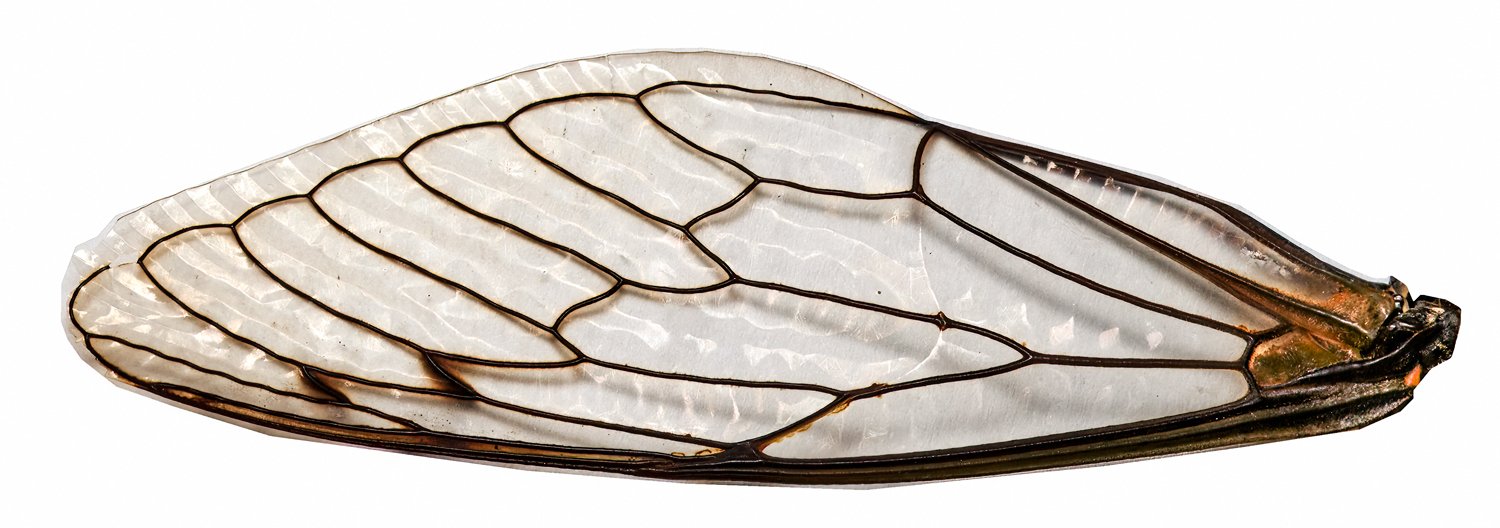
Cicada Forewing
September 4, 2022 - Addendum
I know this is a Geometer but I’m not sure if it’s different than the last one I posted or just further along in development.
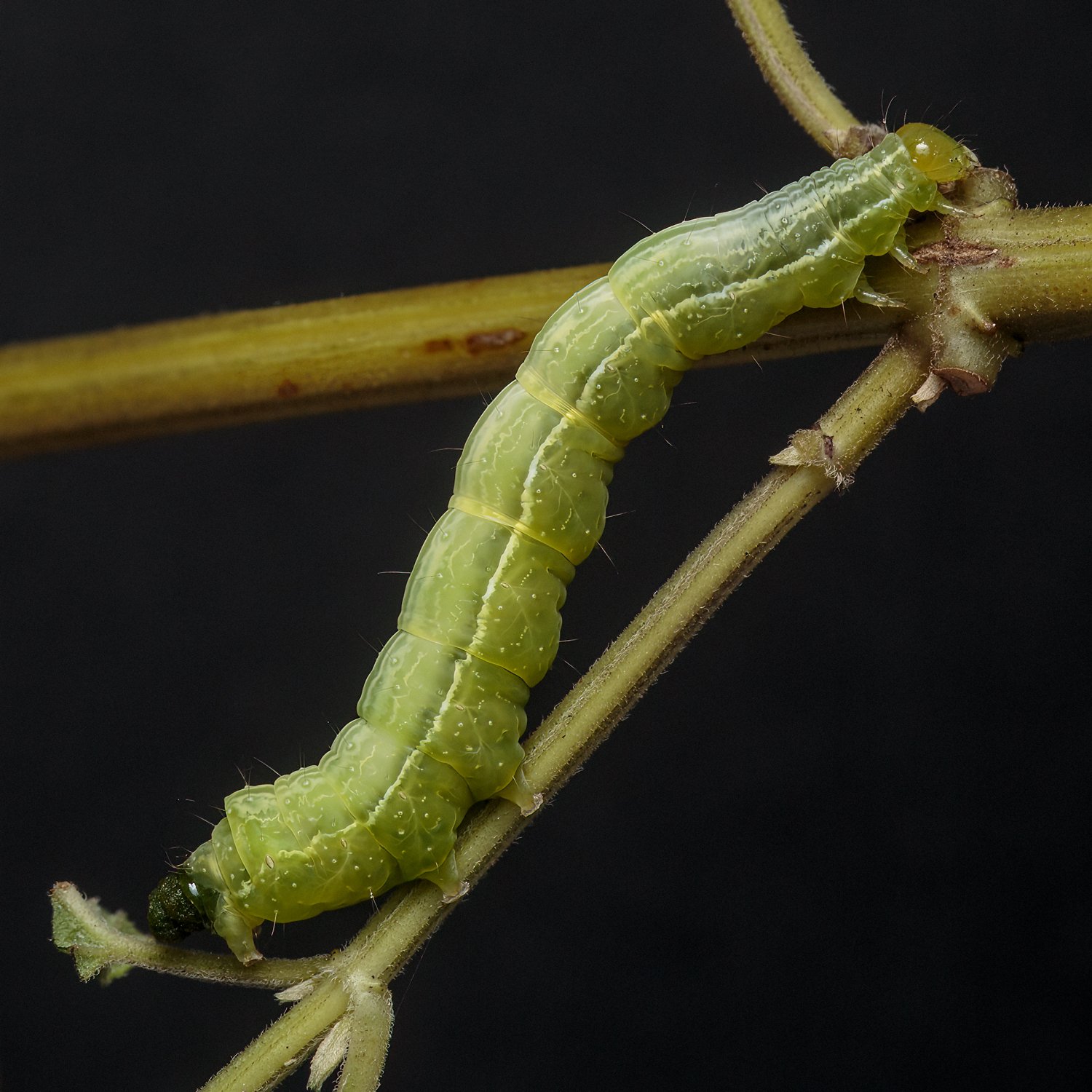
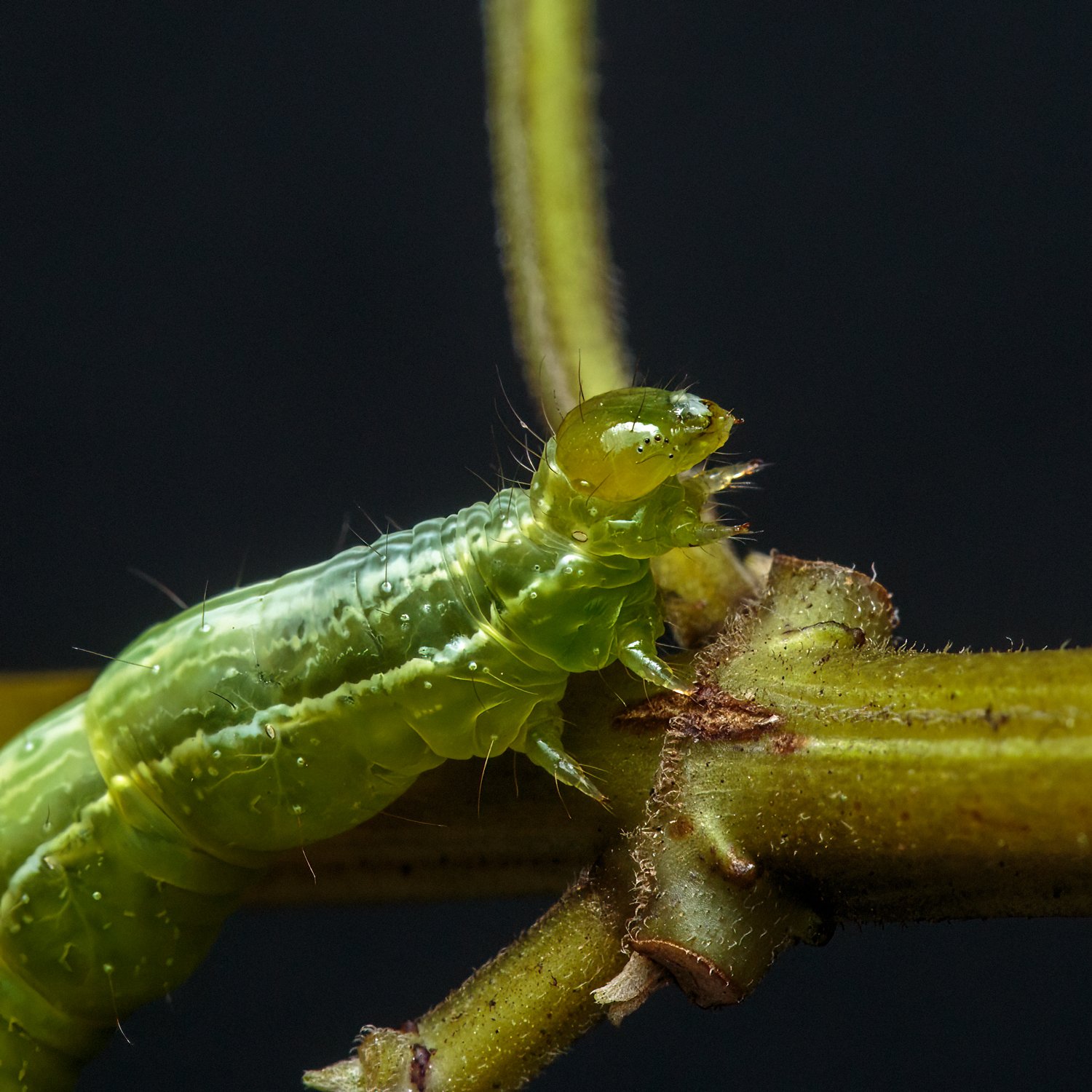
September 4, 2022
I’ve had some luck photographing the adult and larva of the Southern Pink Moth. In that same flower bed I’ve found larvae I’ve photographed before but no adult. I know it’s a caterpillar/moth that belongs to the family Geometridae because the caterpillar has only two pair of anterior prolegs. In succeeding photographs I’ve made of multiple specimens I see one conspicuous black dot, fairly large, about a fourth of its body length from the head. There are other smaller black dots along the body. That hasn’t helped with identifying it so far. I know so little really about the daily lives of these creatures. I’m surmising that, while the Southern Pink Moth is active during the day perhaps this Geometrid moth is active at night, laying eggs, etc. So I’ll set up the white umbrella tonight and see if I have some success at finding the adult moth.
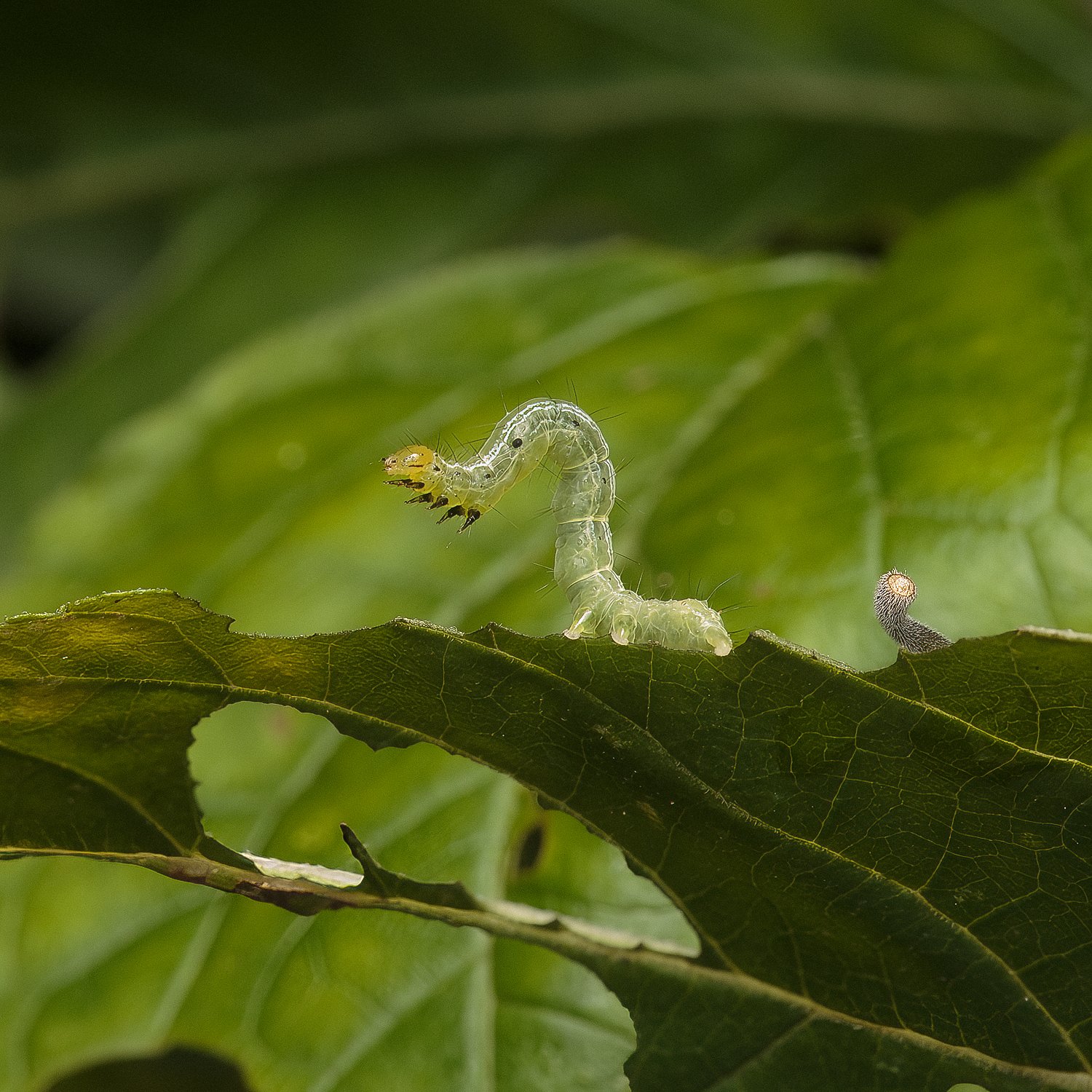
September 3, 2022
This morning I read up on the Pyrausta inornatalis and discovered that, like some bees, the Pyrausta larvae burrow into the base of a Salvia sp. bloom to feed. I went back out to the flower patch and it wasn’t long before I found one. Wasn’t burrowing exactly but making its way into the blossom between the petals and sepals. Tiny little thing, about 9mm. Sort of a cover shot on top. This plant is Salvia guaranitica and the larvae feed directly on these flowers.
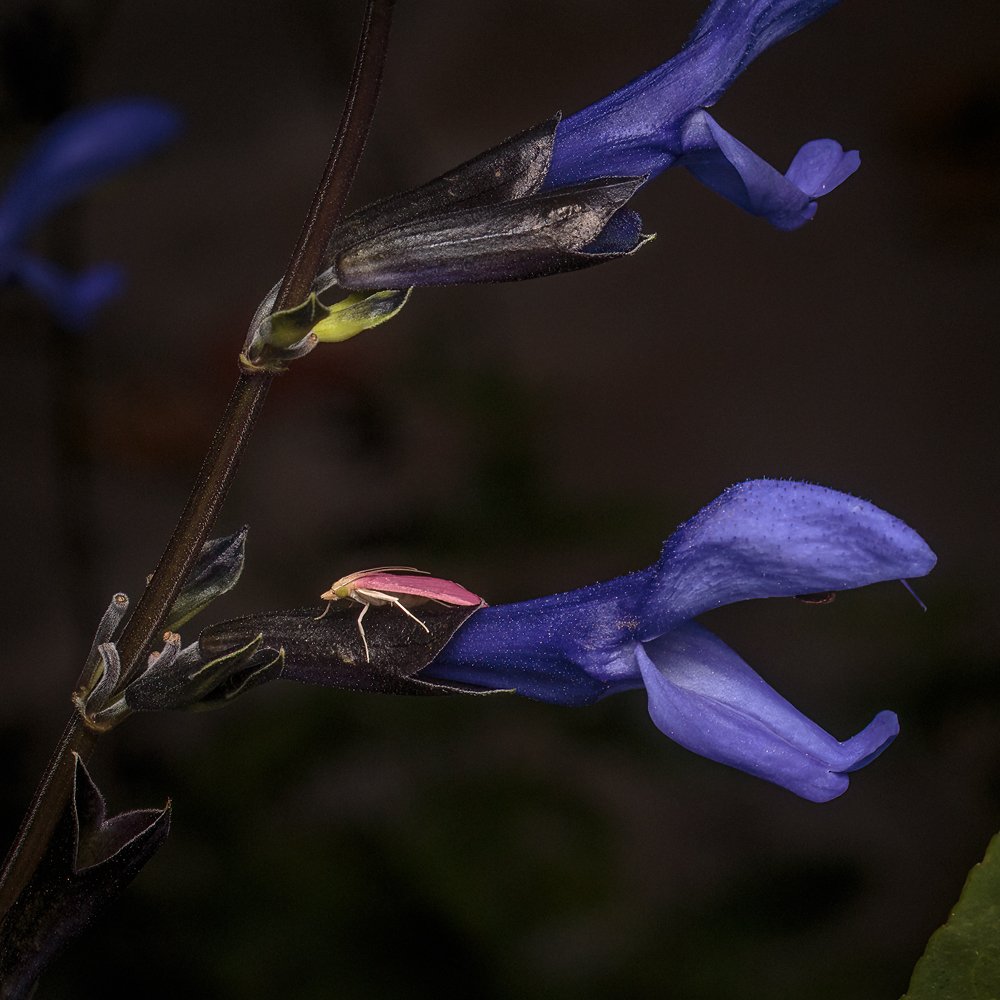
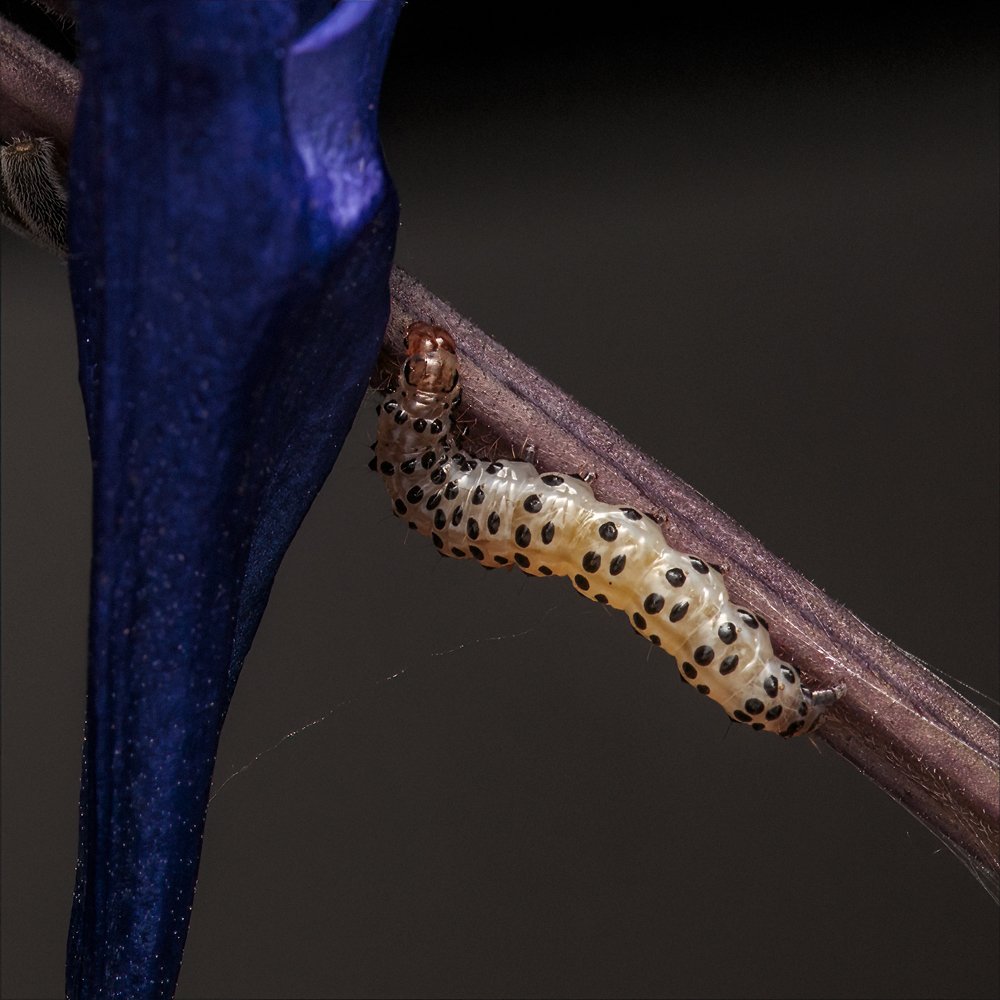
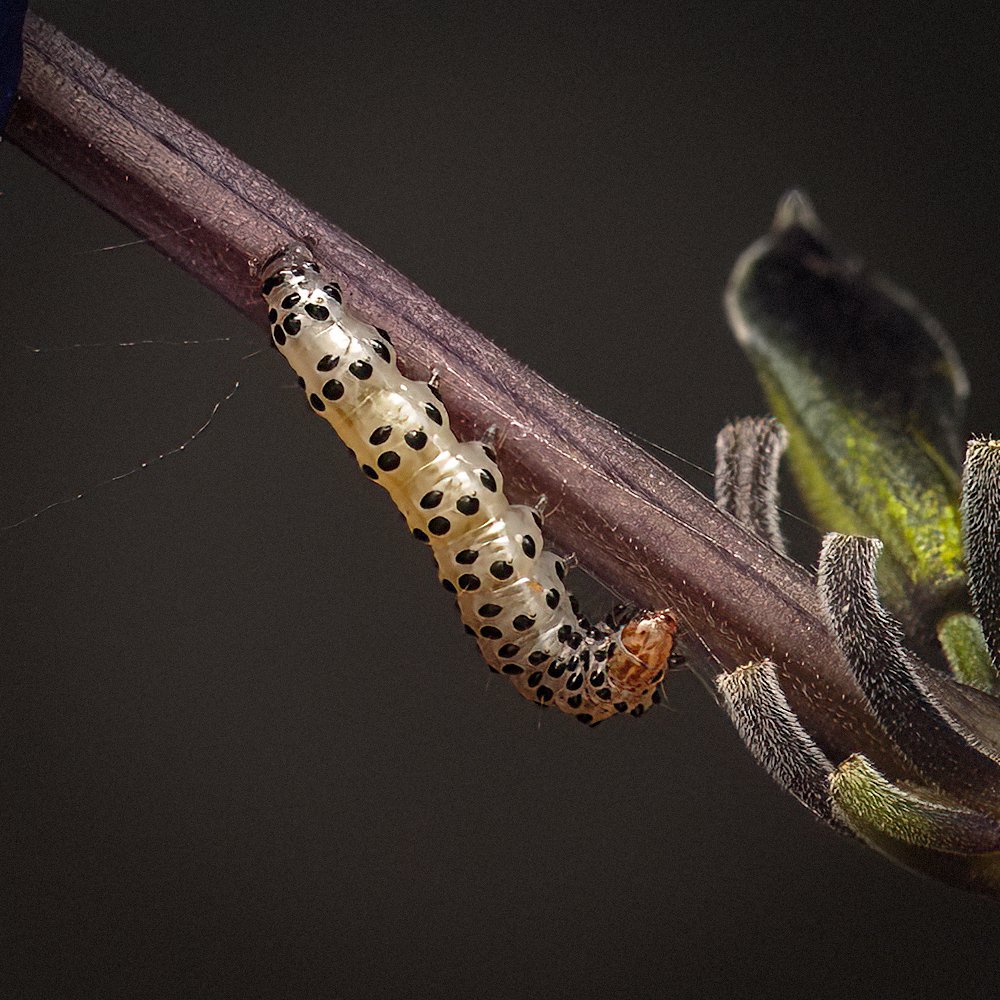
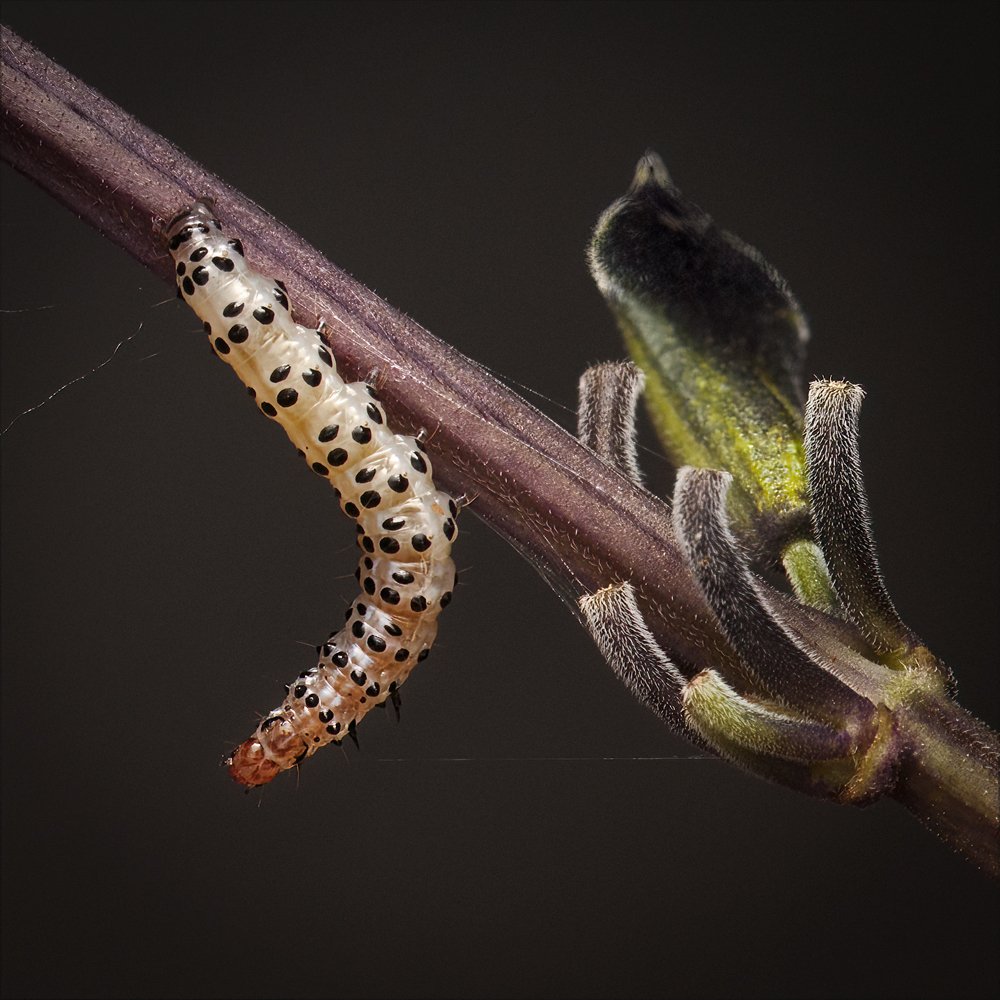
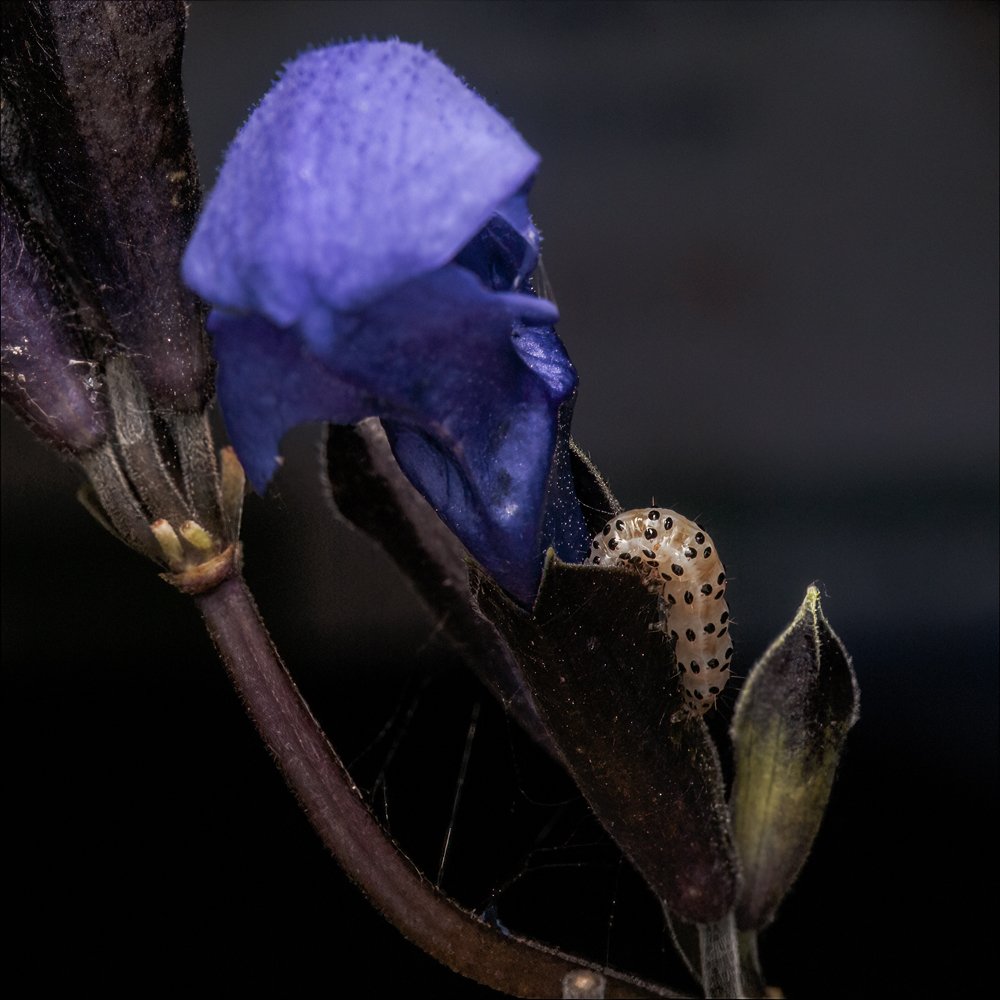
September 2, 2022
It’s September and things will start to dramatically change soon. The leaves have been hard at it making food all summer and they’ll be exhausted soon, those that leave (no pun intended) will fall and make loam to grow new stuff. Some insects are near their full cycle preparing for the next. I was looking at the ferns, we’ve had a good year for ferns. I’ll be following spore formation.
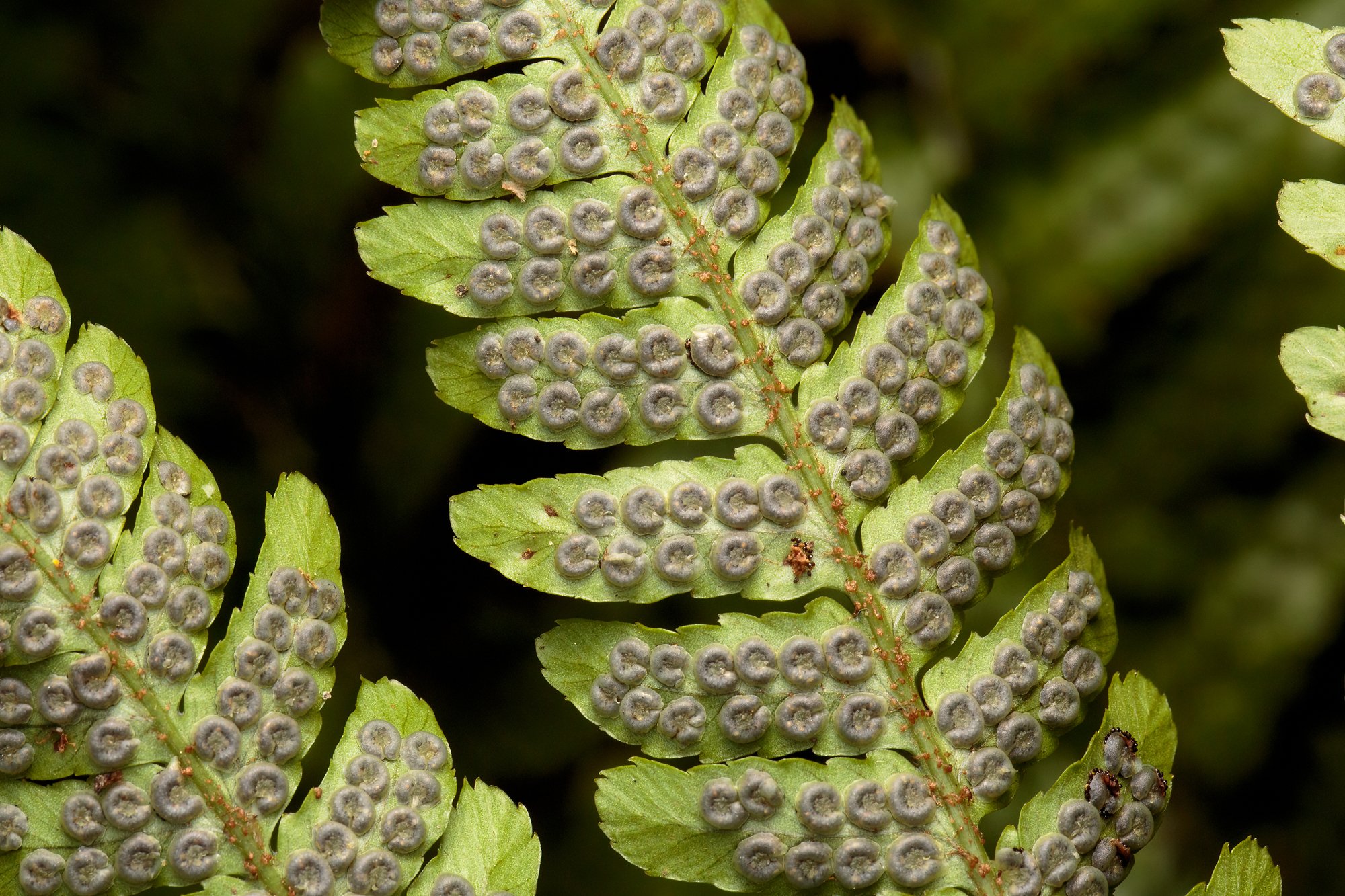
This evening I finally got a decent look at a live Pyrausta inornatalis. Still looking for the larva. Maybe tomorrow.
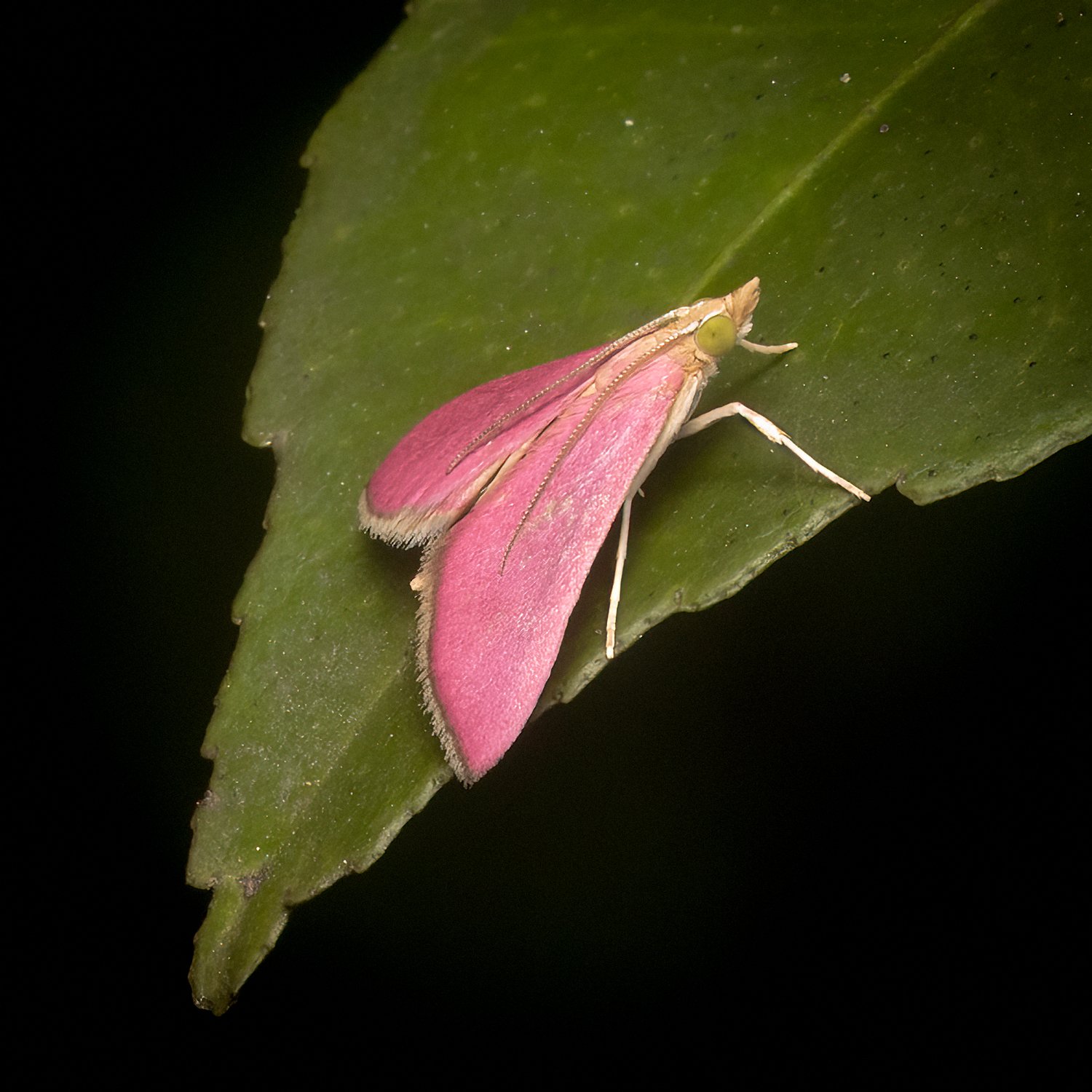
The Two Lined Spittlebug (Prosapia bicincta)
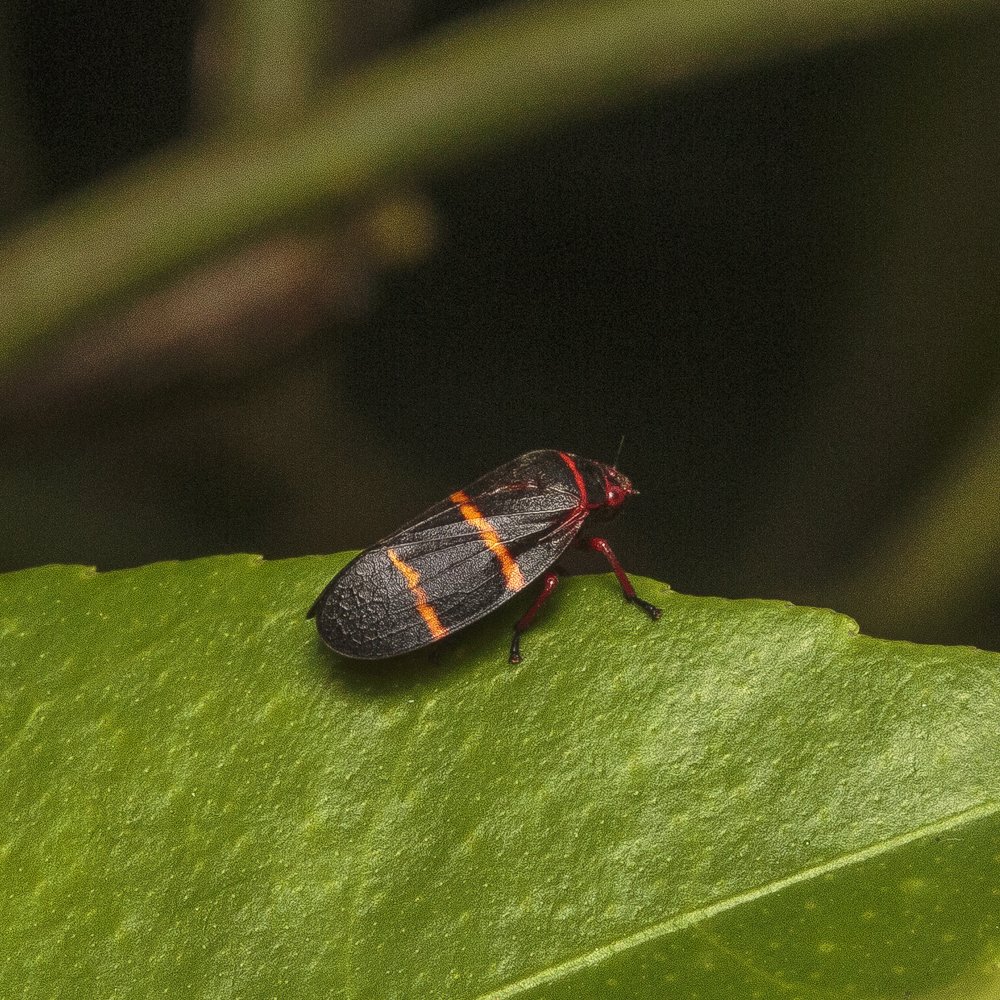
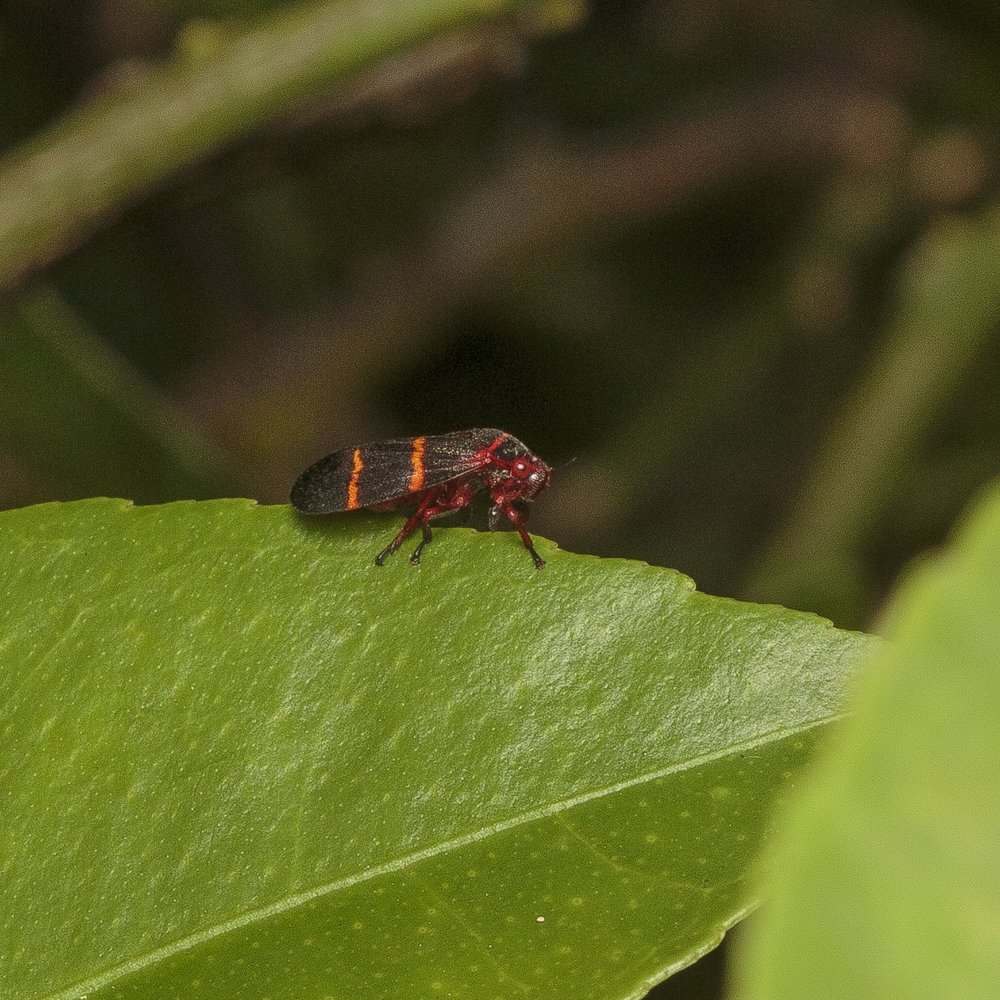
September 1, 2022
The “Porch Spider” is gone. She was gone before the storm took her web away and now the remnants of the web are gone as well. But, I found a “new” Porch Spider, smaller, an orb weaver as well. I also observed a caterpillar, a couple actually, feasting on leaves in the yard.
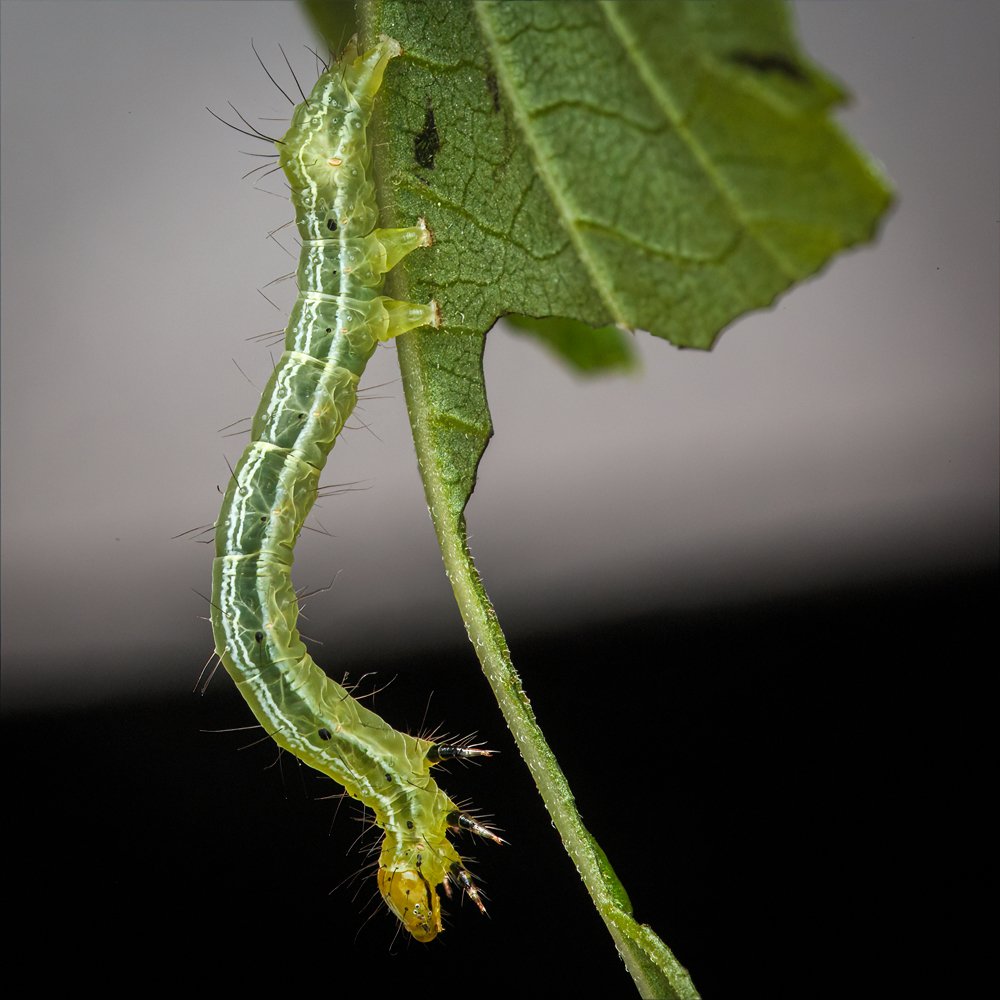
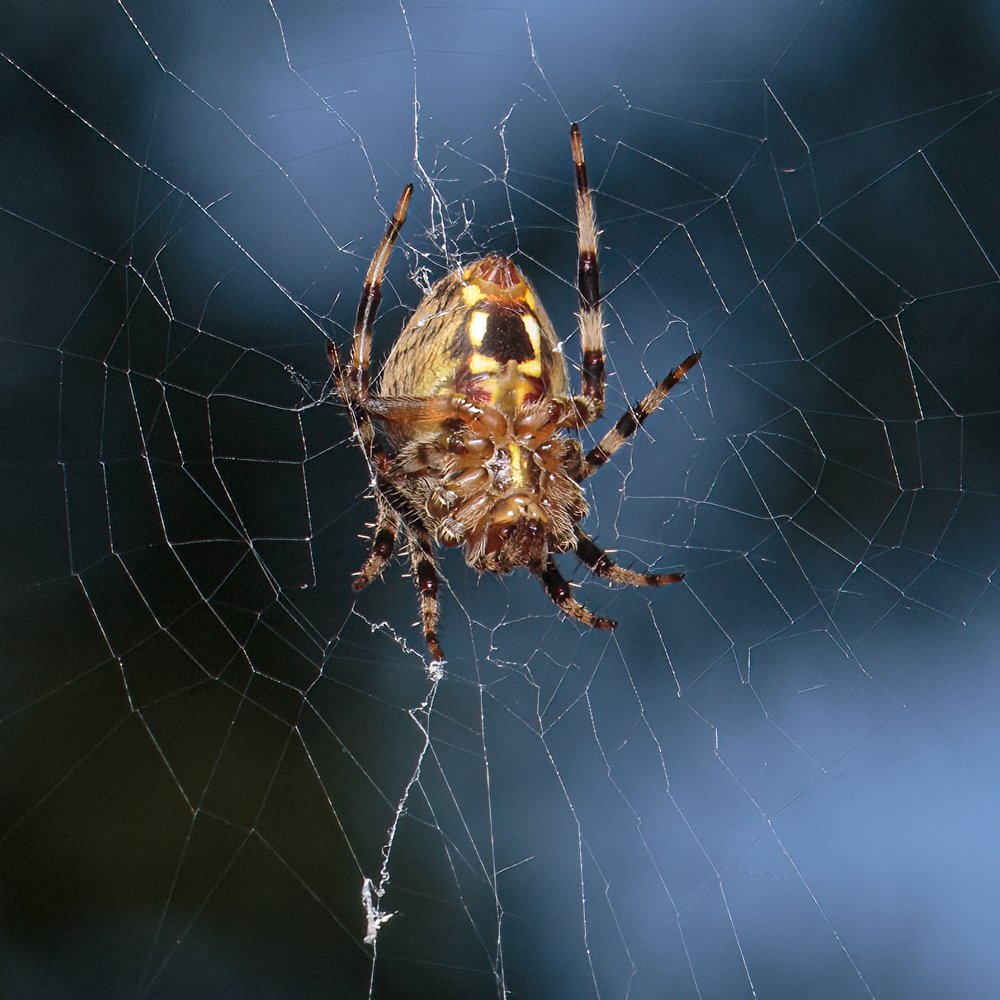
August 30, 2022
It has been a few days since I was here, meaning at 712. We went to North Georgia and North Carolina. Saw some nice stuff, had a nice visit with friends. Back at home I acquired a new light diffuser and tried it out today. Promising.
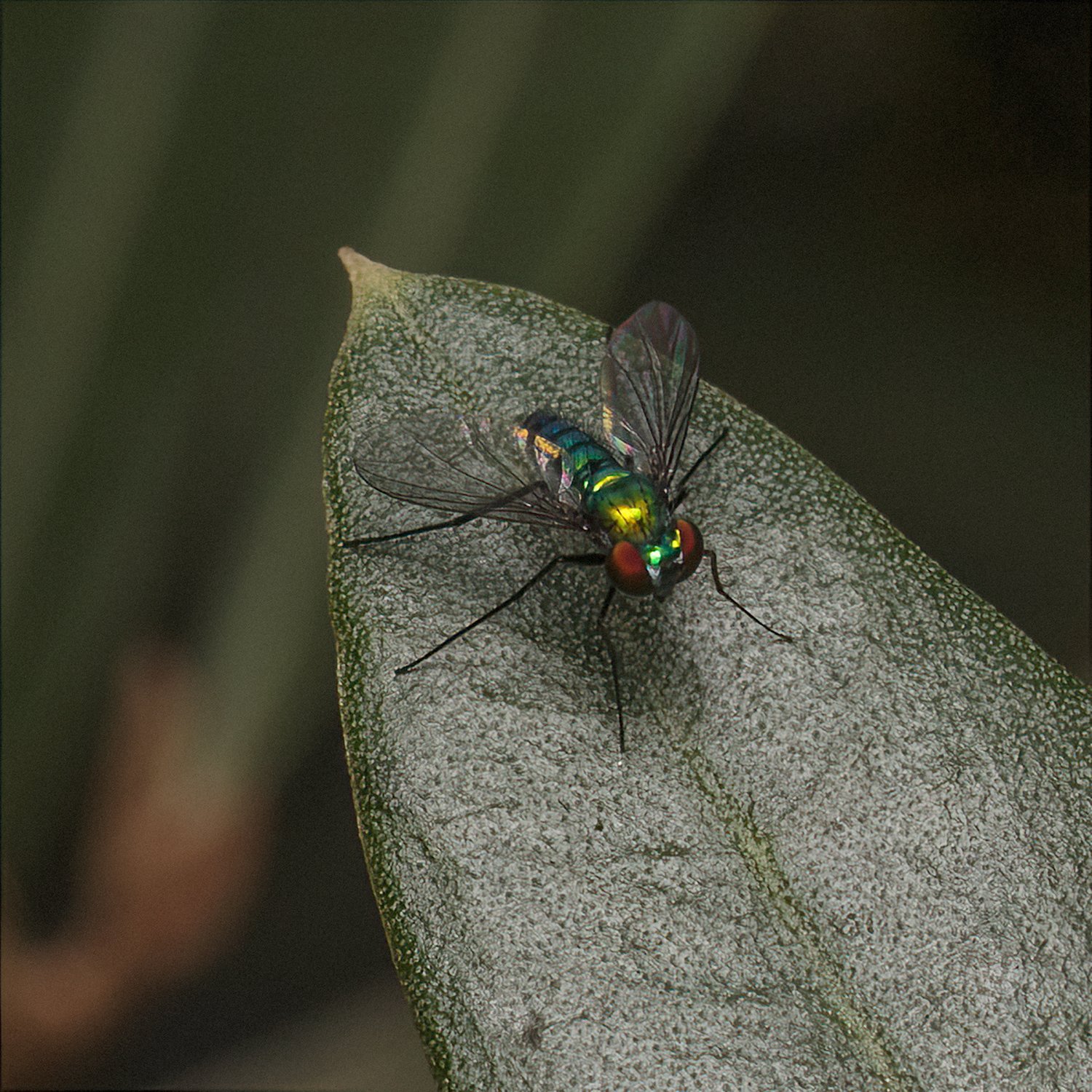
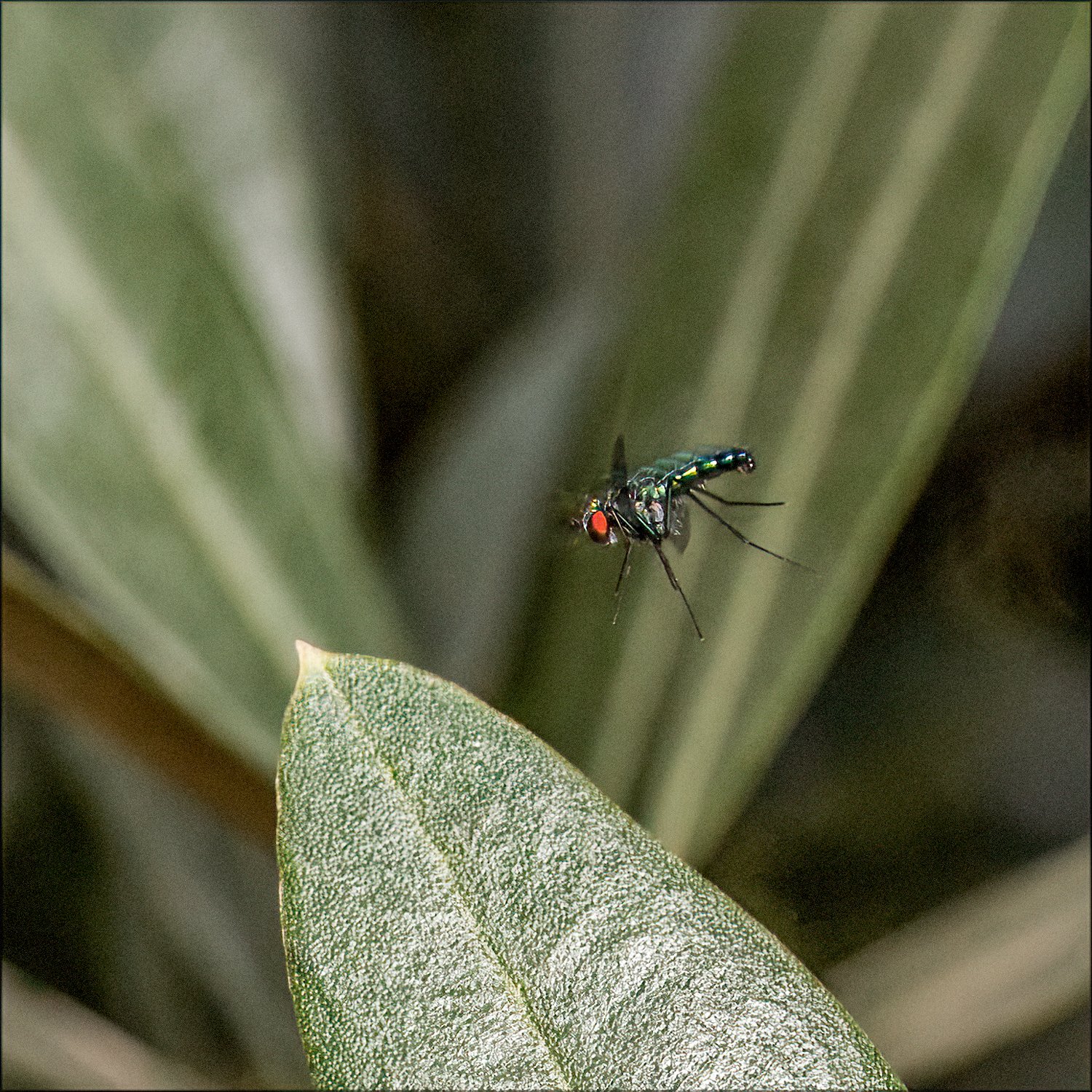
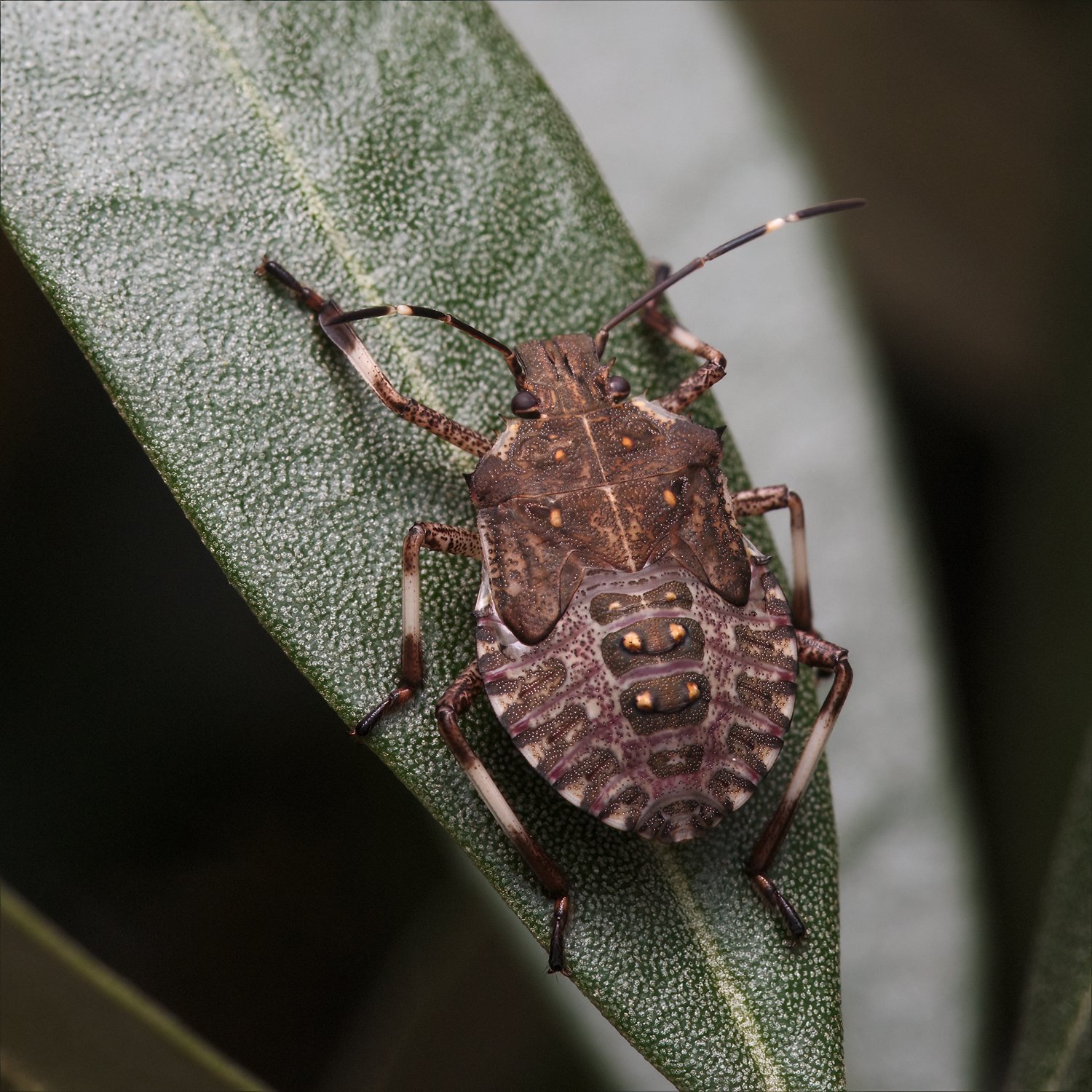
I went out to photograph the "porch" spider and she's not there. Hmmm. While we were away she had raised her web and considerably enlarged it. She seemed a bit bigger as well. Maybe she's maintaining it above my line of sight because the web extends to the gutters now. We'll see. Her web is amazing. There is an amorphous maze around the whole web but there is an underlying orb as well. It also seems like the orb part of the web has gotten more structured as the spider has matured. (Addendum: A storm came through tonight and the web is gone. Now we’ll see if she’s still here and able to construct a new one.)
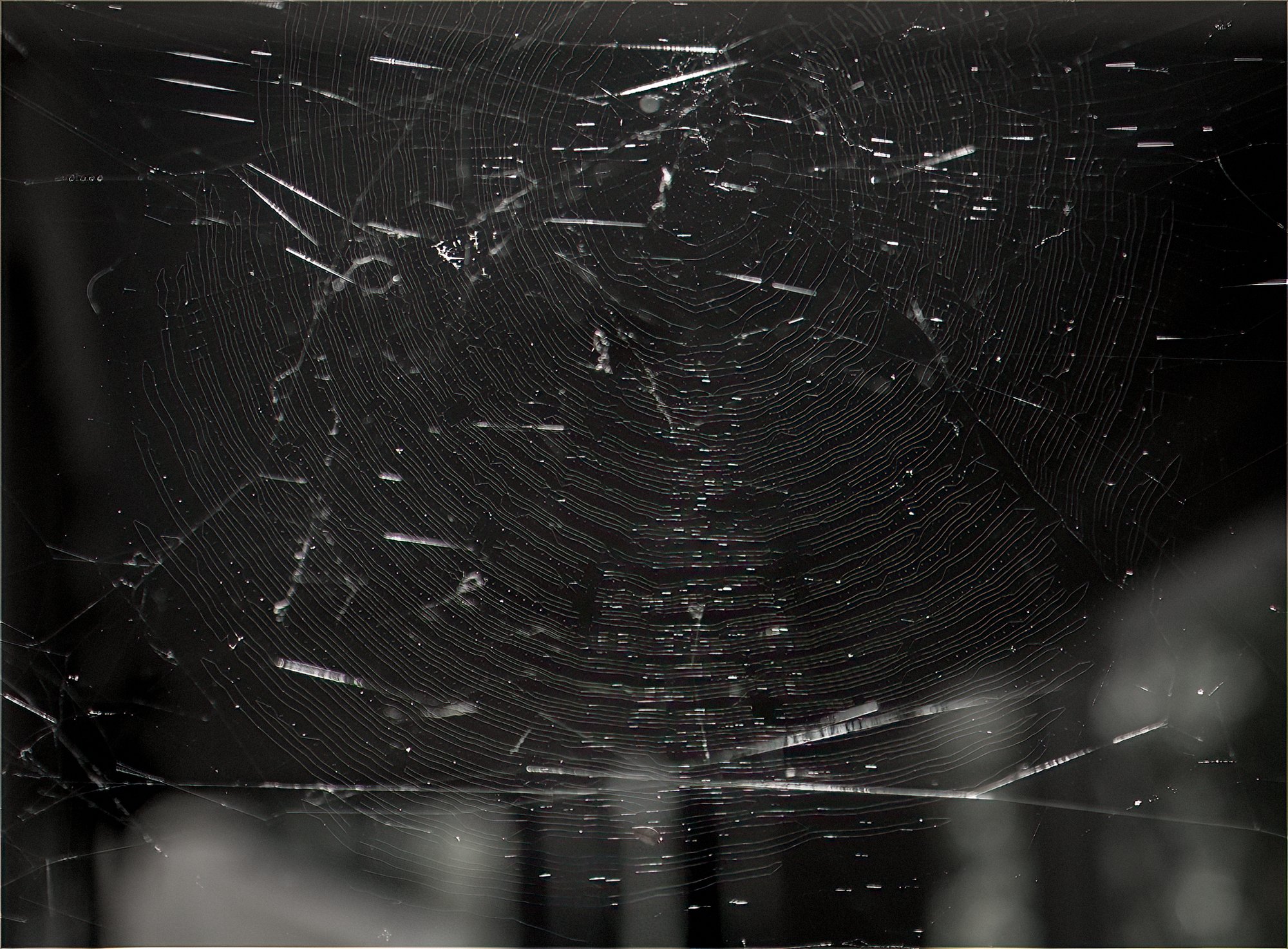
August 17, 2022
I’m revisiting the “Porch Spider.” I still see major differences between this spider and the examples of Joro Spiders I see online. I’ll continue as long as she does.
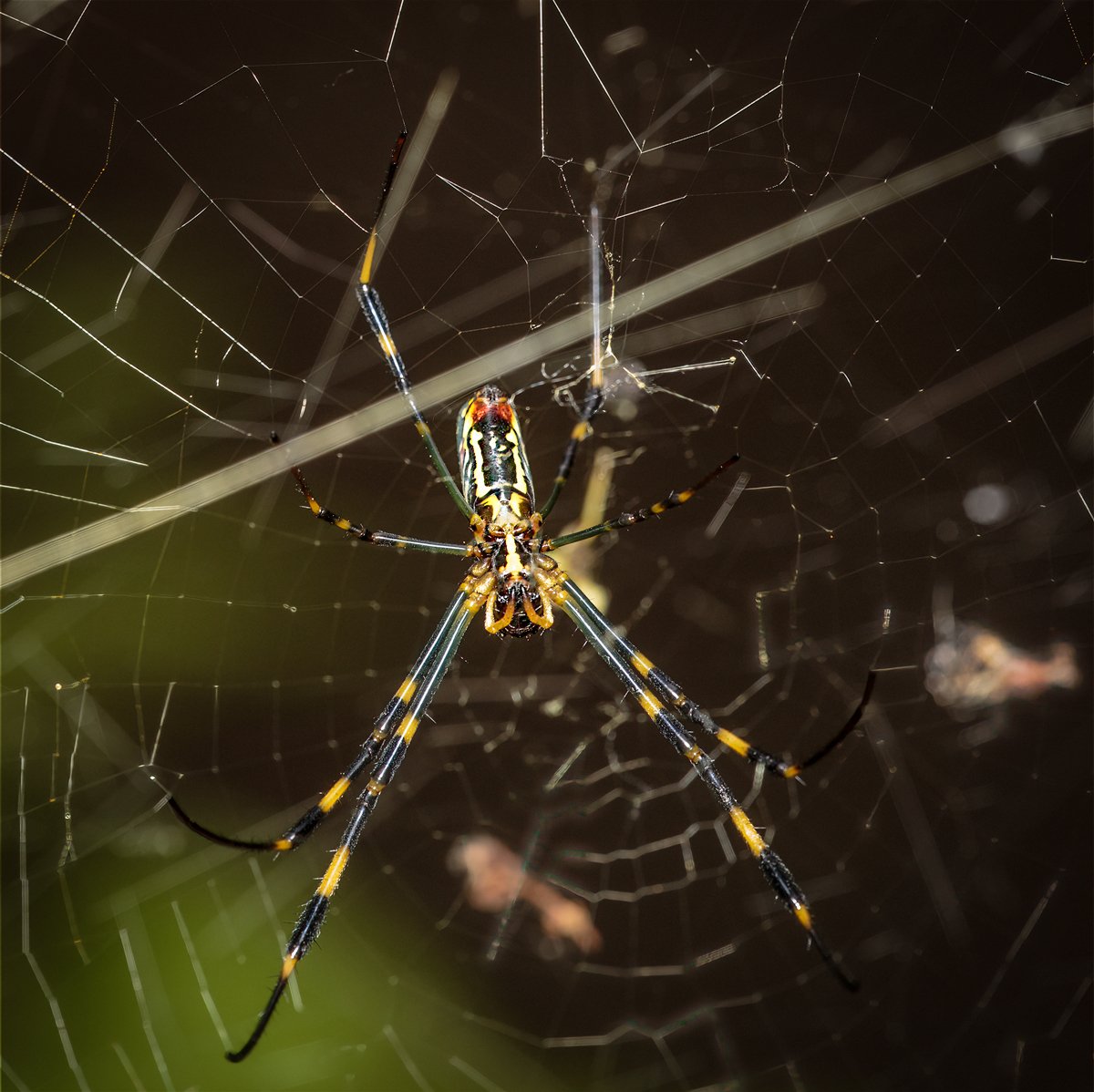
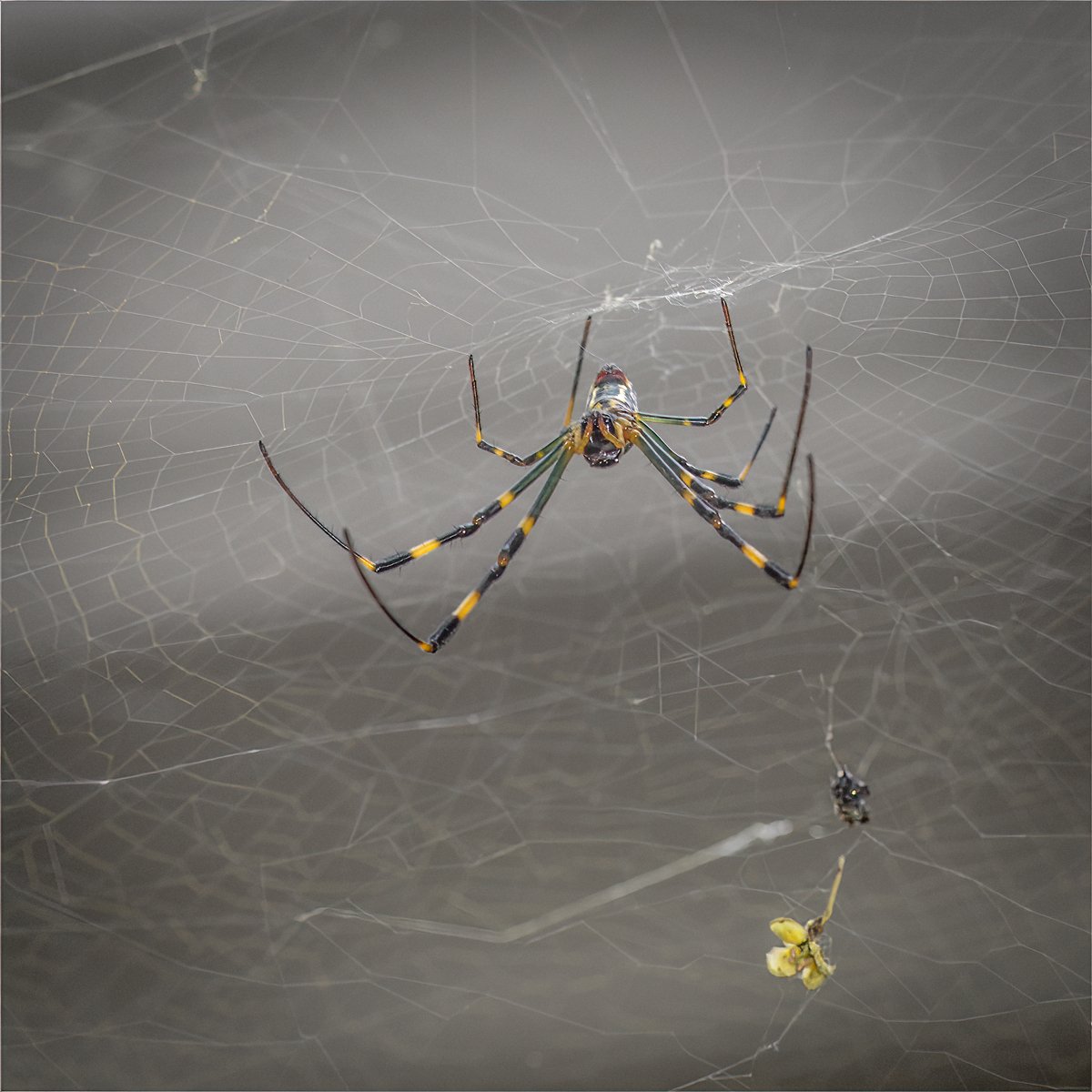
This is a conglomeration of bees, just three really. They come to the Meyer Lemon and the Calamondin Oranges; Carpenter Bees, Bumble Bees and Honey Bees. The reason I’m sort of reiterating this group is because I found out about “Great Georgia Pollinator Census.” This is a citizen science survey of pollinators, not just Hymenoptera (Bees, Wasps) but Diptera (Flies) and Lepidoptera (Butterflies and Moths) as well. In truth there are even reptiles (Lizards) that help with pollination from time to time. If you have a garden, flower, vegetable or both, and can do the survey, (It’s pretty arduous, you have to sit and watch some plants for a while and take note of the pollinators that visit those plants), it would help the scientific community understand what’s happening to our pollinators as the climate changes and we try to accommodate it.
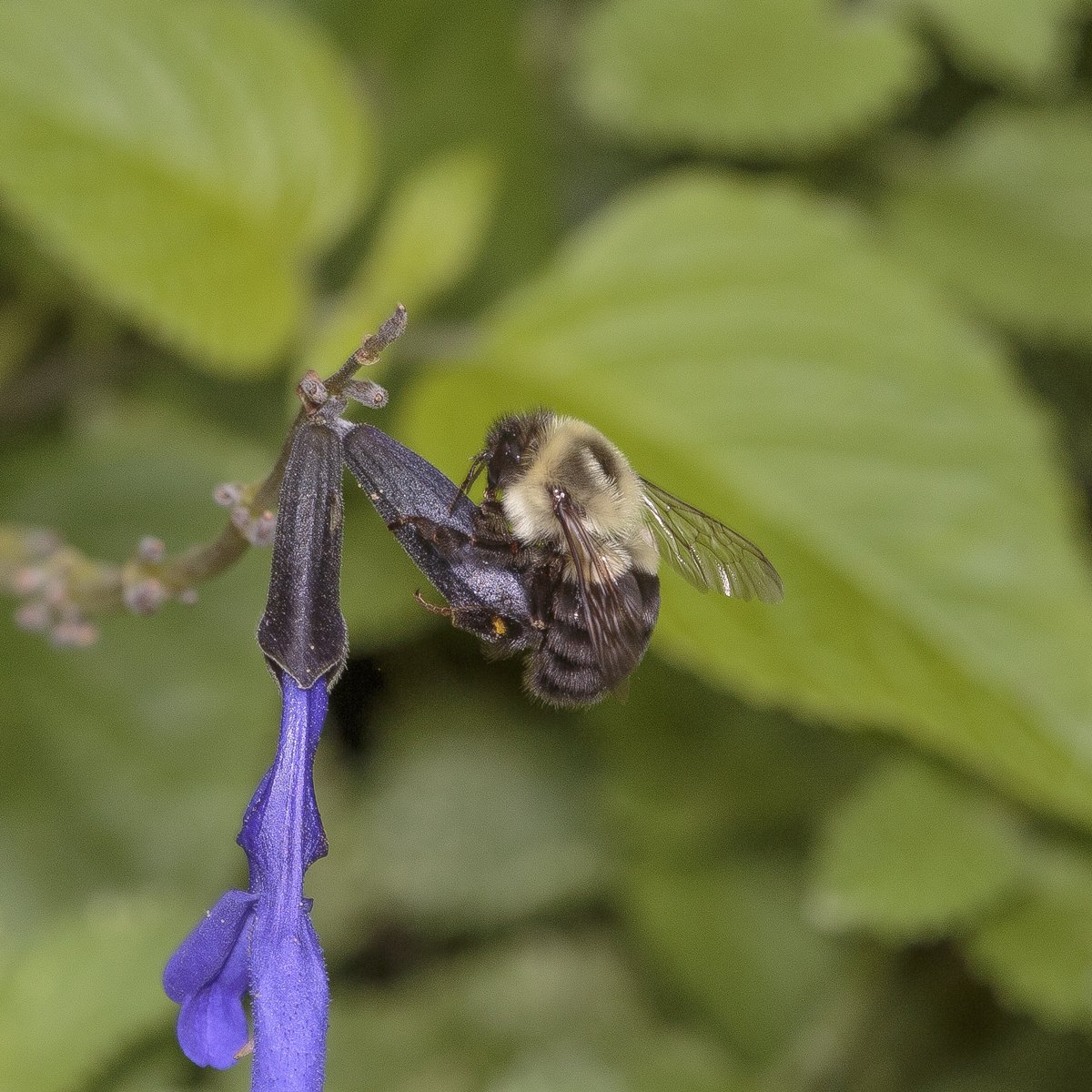
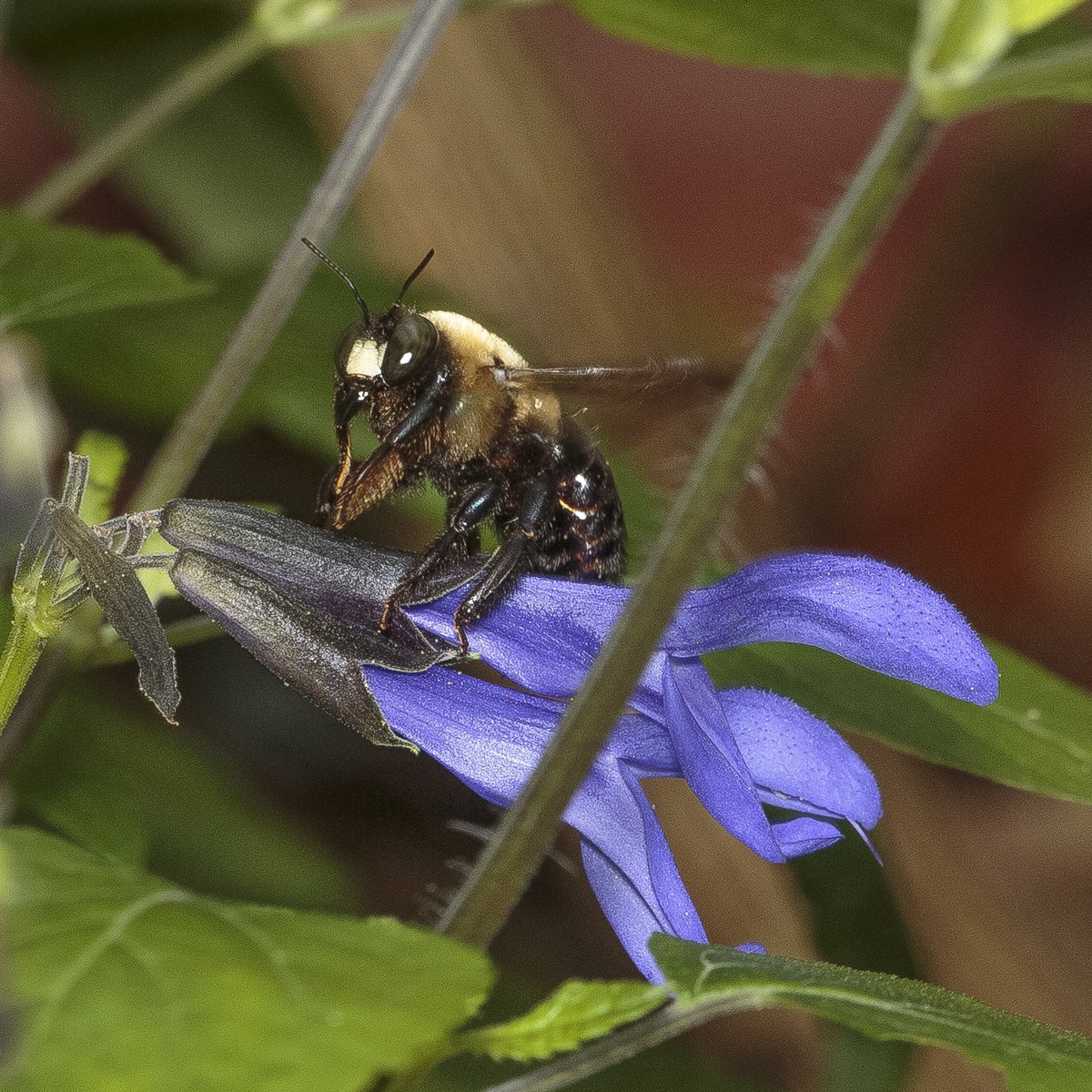
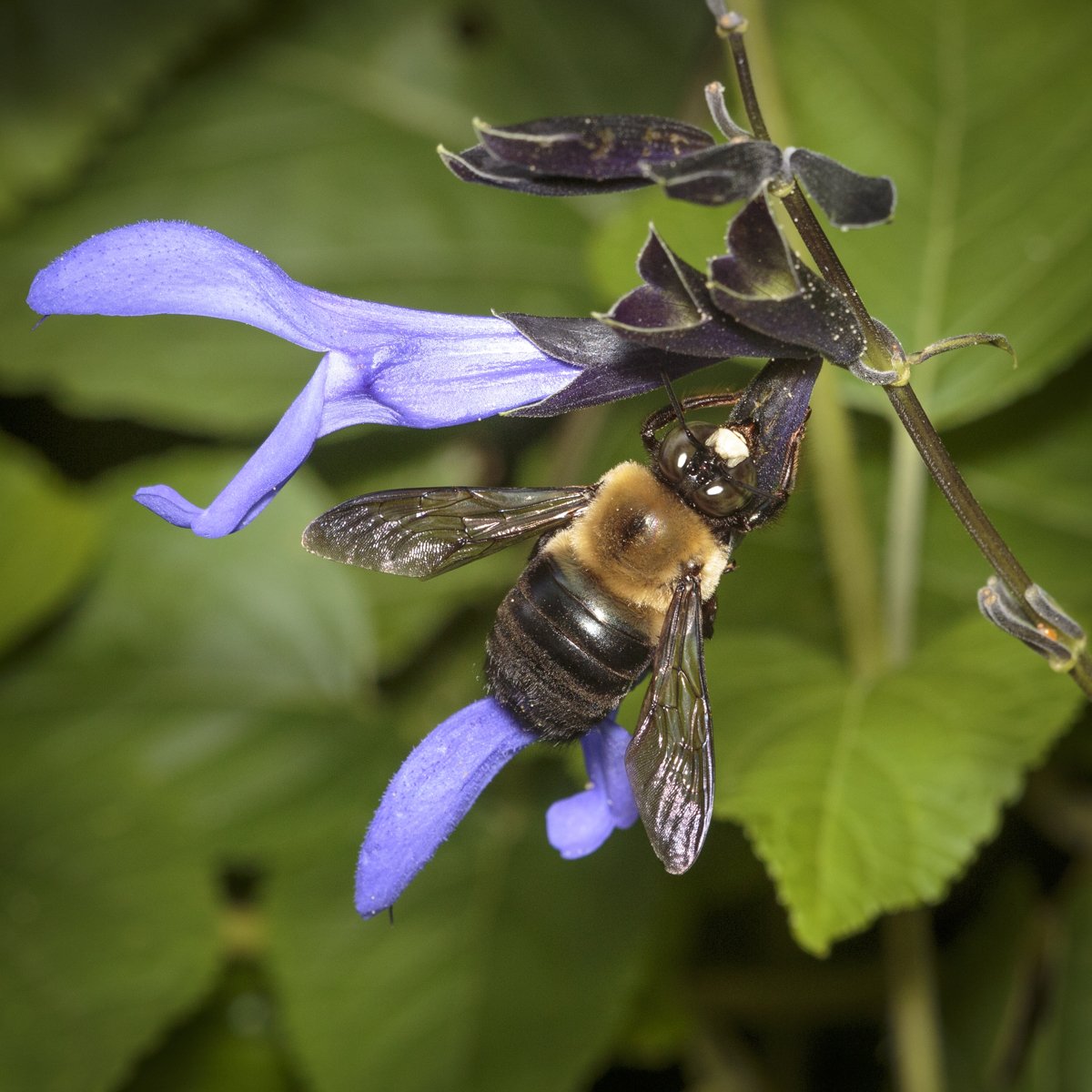
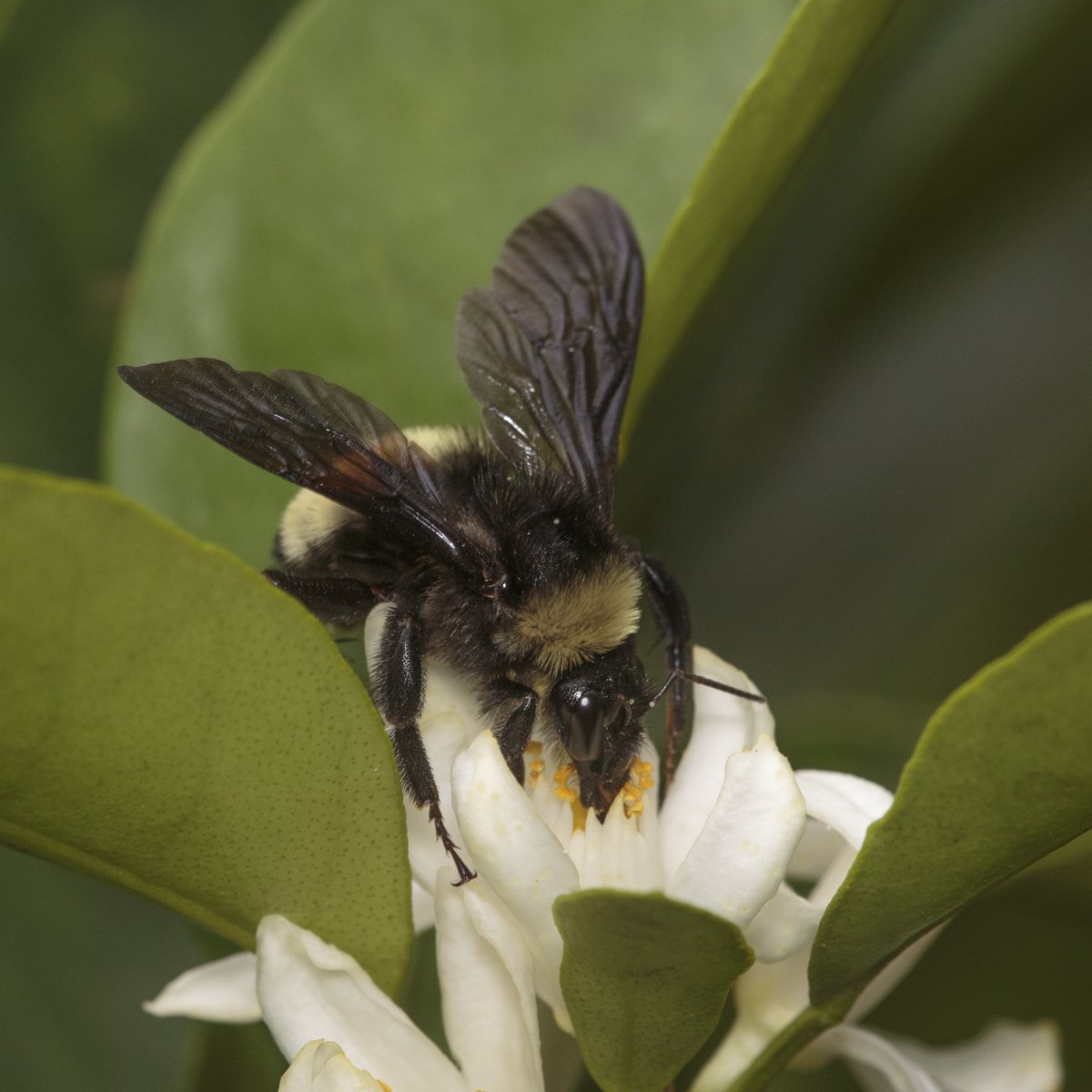
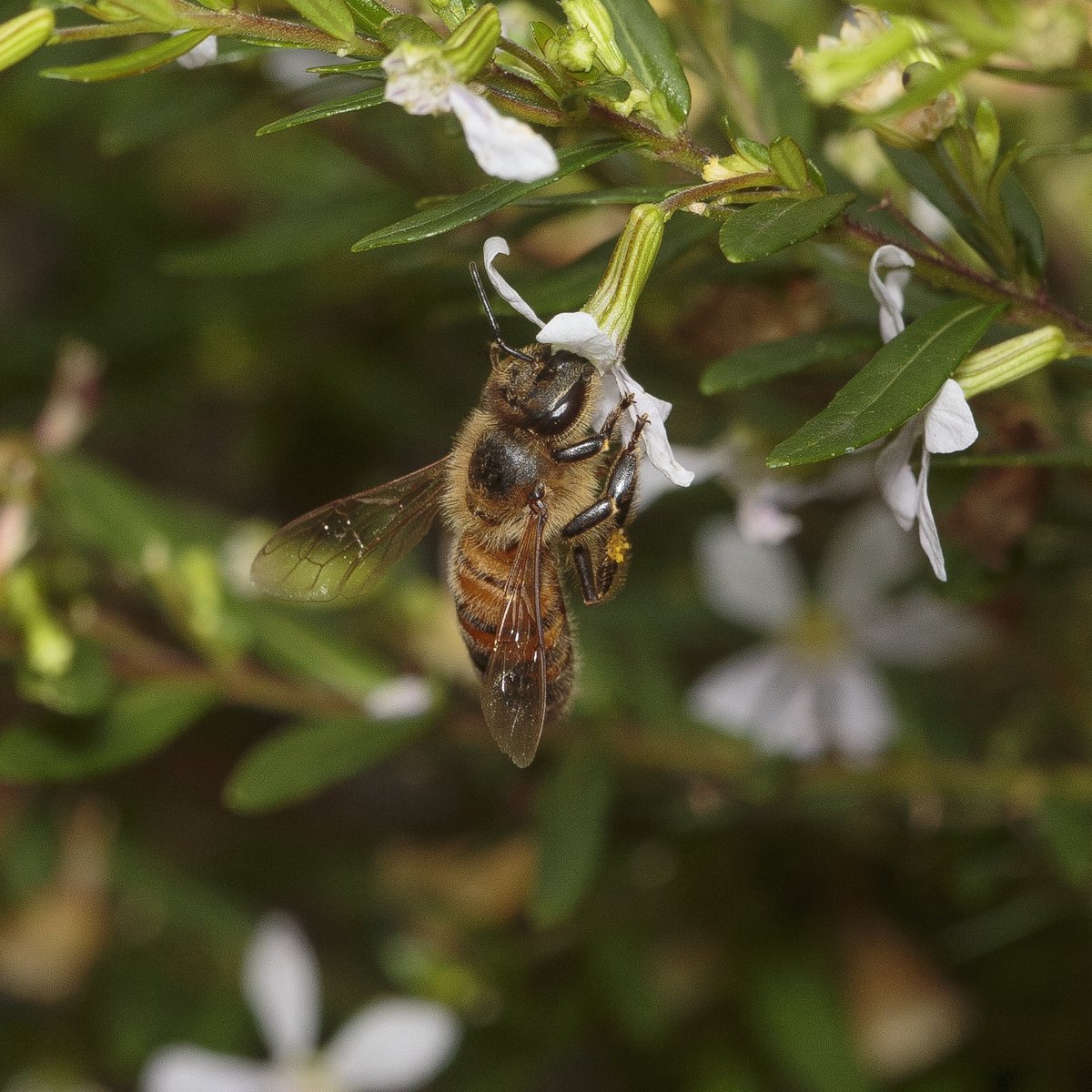
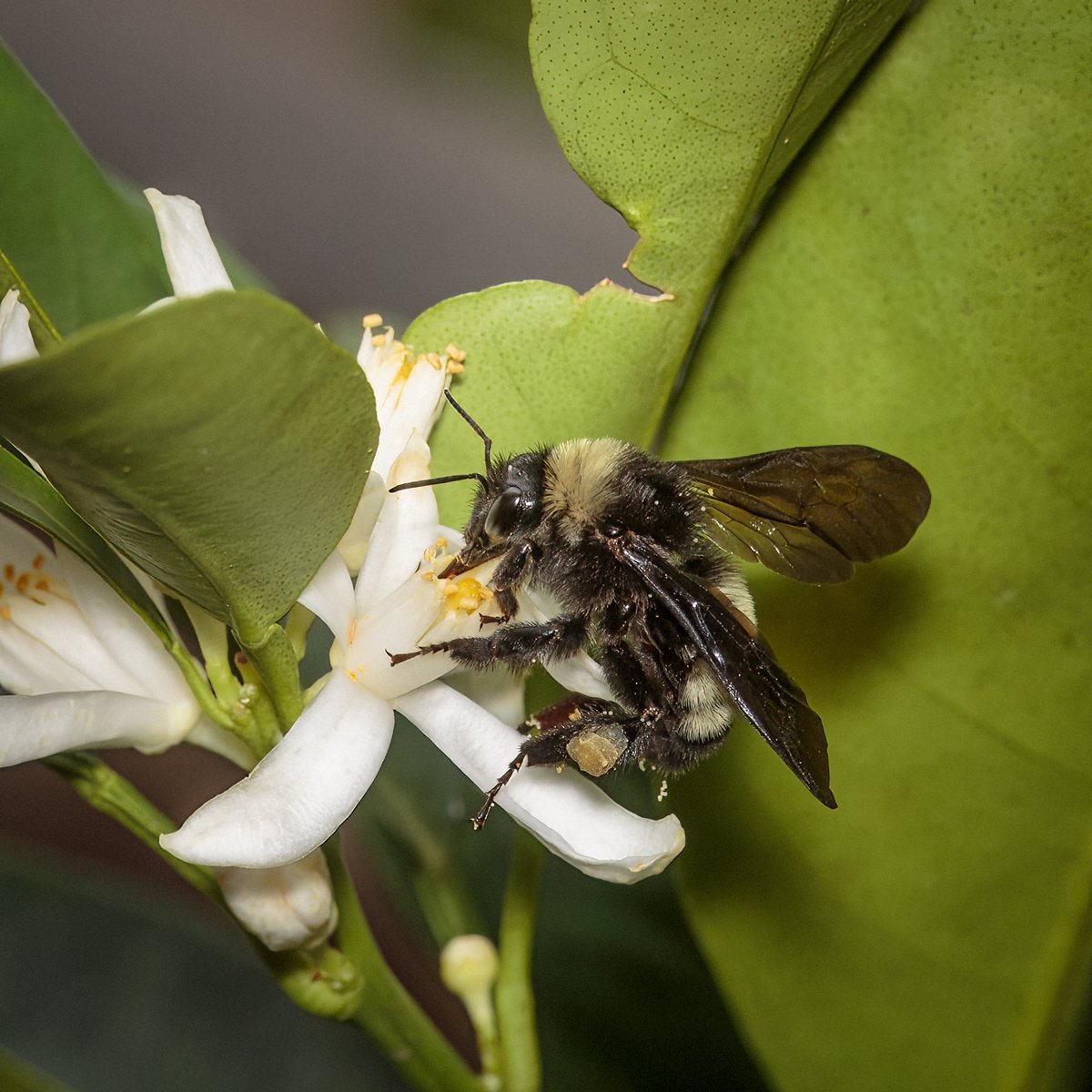
August 16, 2022
I realized yesterday that I had neglected to include the honey bee. Deb DeWitt, up the street from us, is a bee keeper. I wonder if these bees are hers. The hemipteran is “another one,” don’t have the ID yet but it’s not a “leaf-footed” hemipteran.
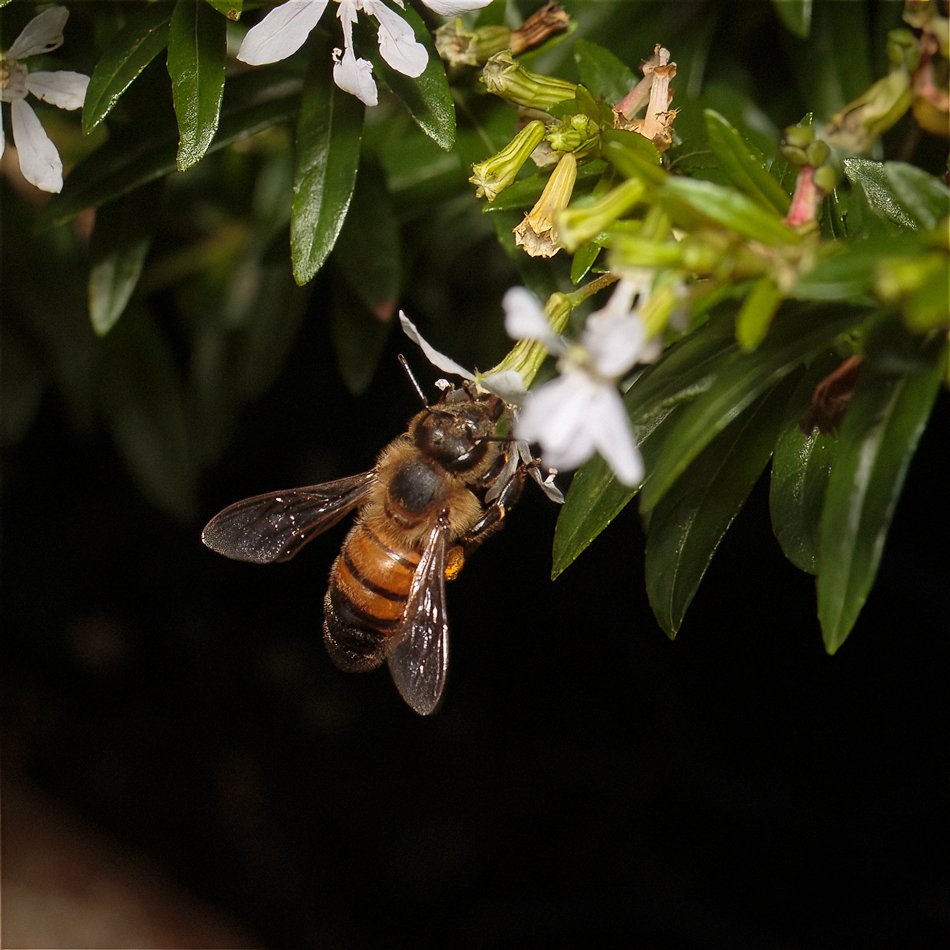
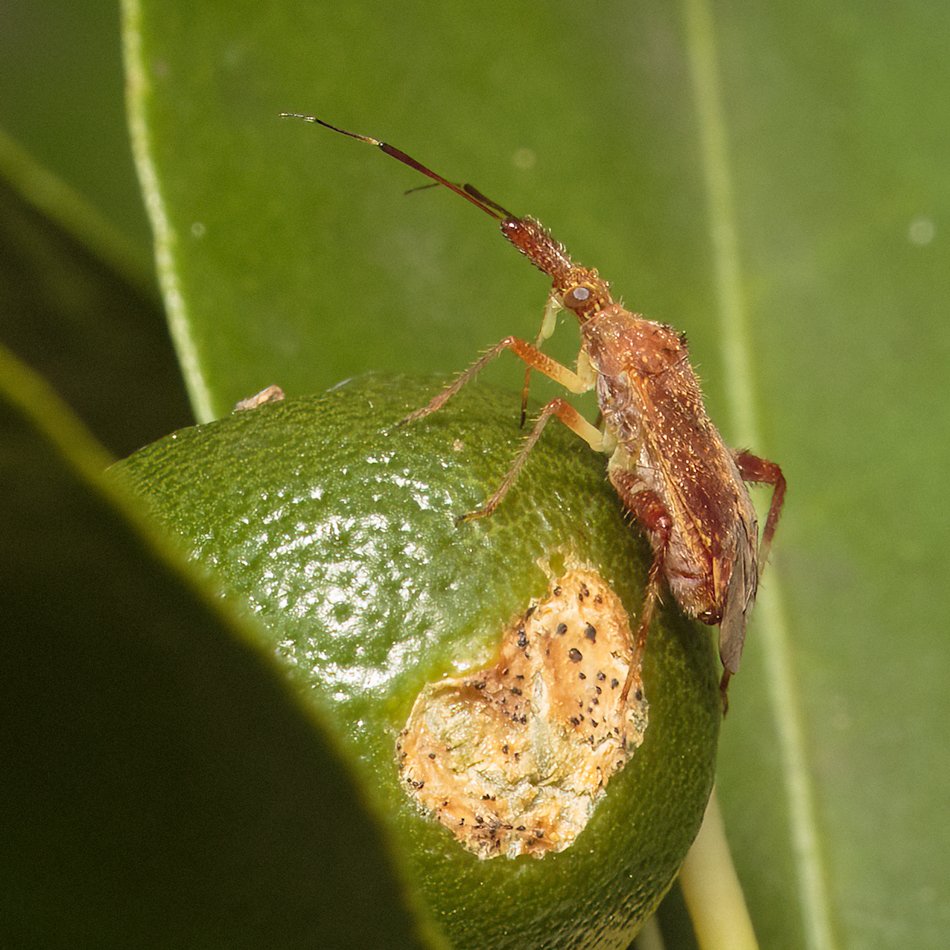
August 15, 2022
After 40 years of living here suddenly, a couple of years ago, we began to see Anoles (Anolis carolinensis). We actually kept one through the winter a few years ago because he got caught in a house plant we put outside for the summer and didn’t see him when we brought the plant back in. When we did find him it was getting cold so we fed him crickets through the year and then released him back to the outside. Today I found this little guy on one of our plants. Sleepy little fellow but out there hunting. Tail and all this one’s about 30mm.
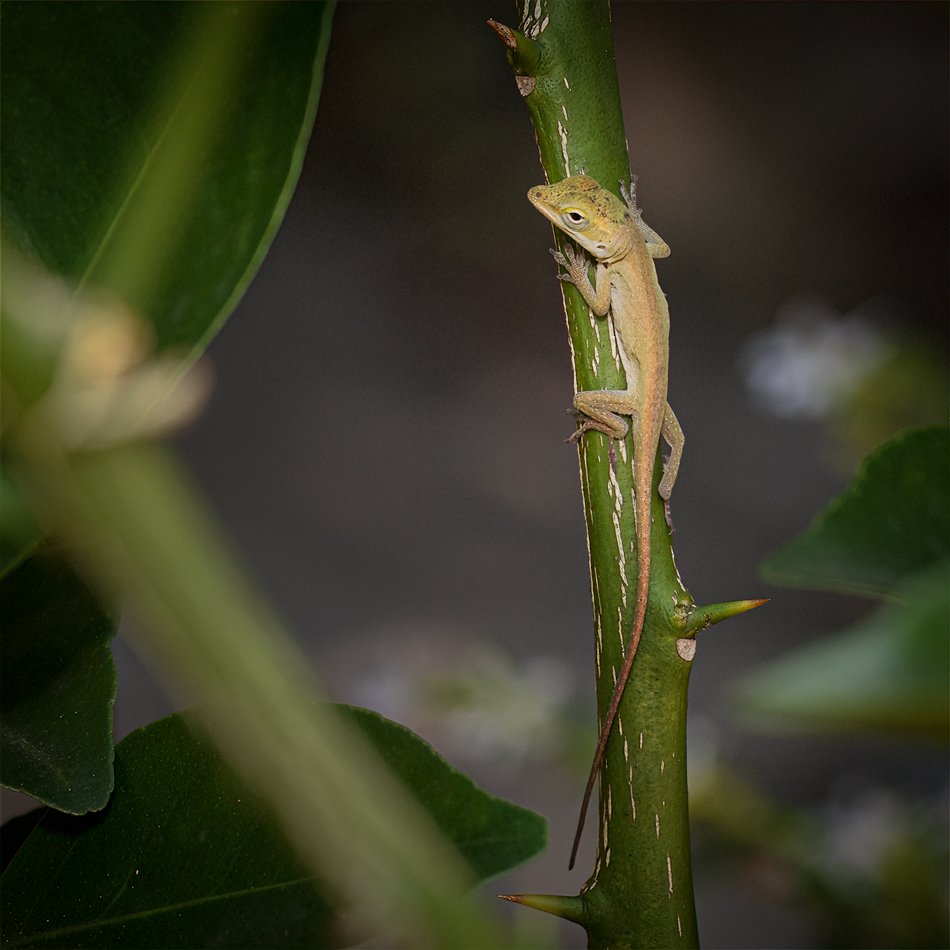
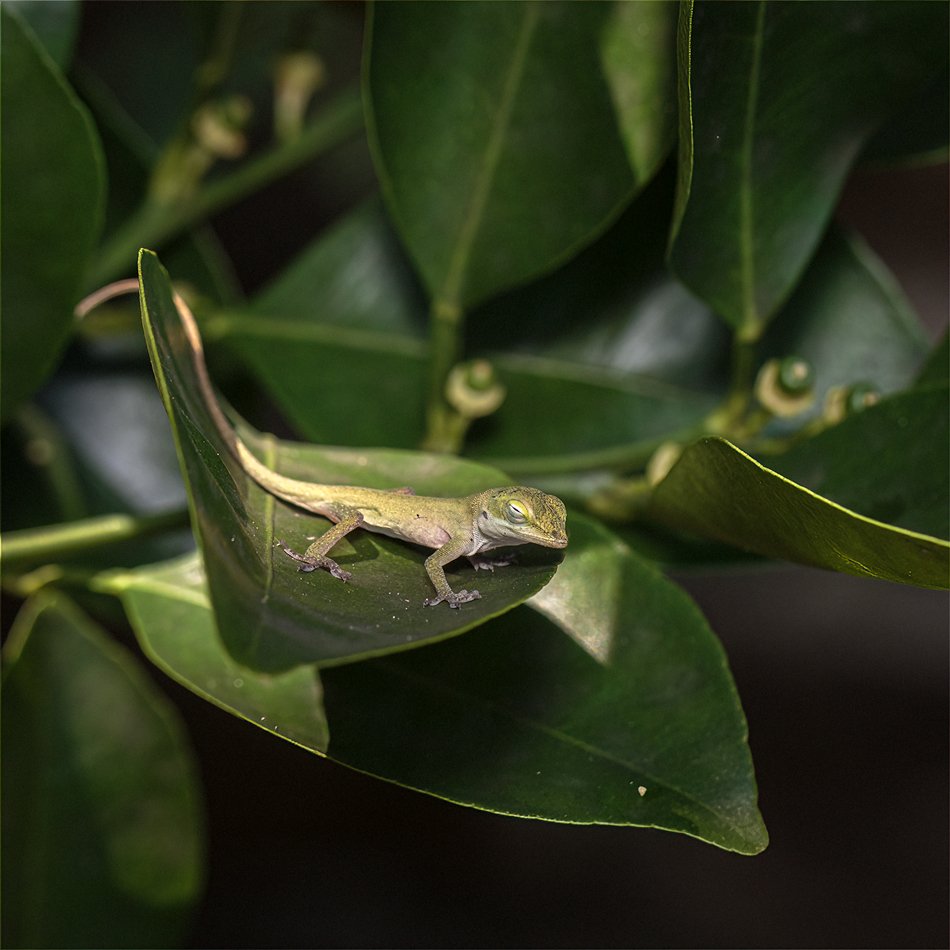
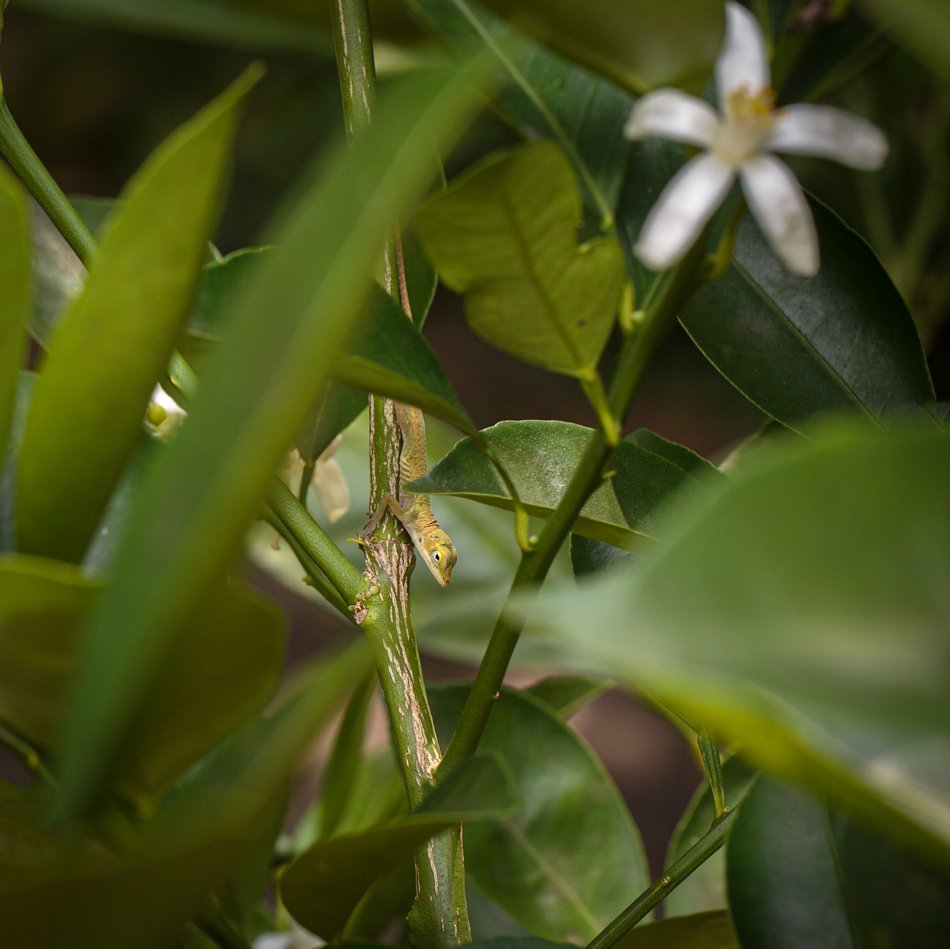
The mantids in the yard are growing. I first saw several at about 30mm or so and now they’re in the range of 65mm. I’d really like to see as they see because they are so aware and move their heads to capture the scene.
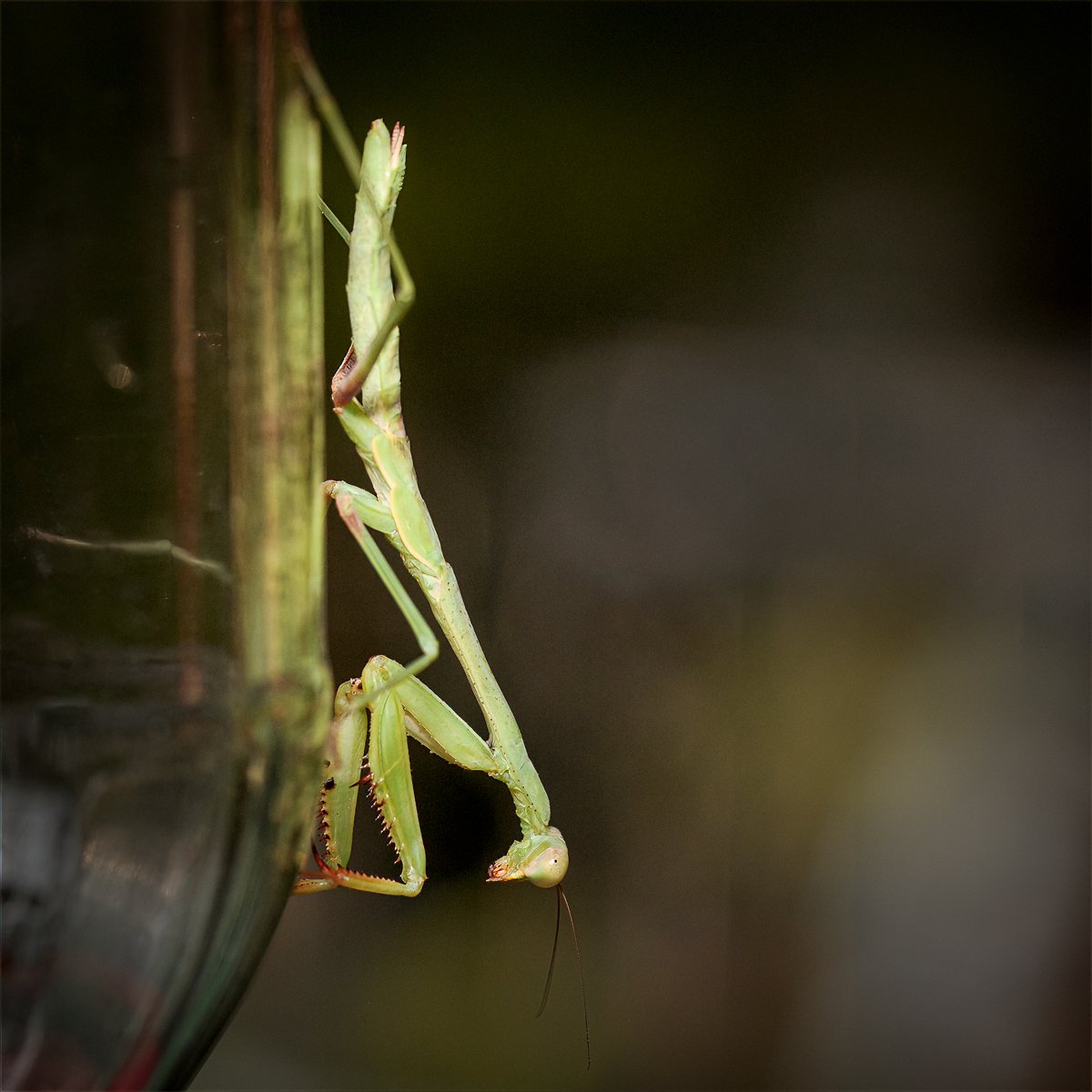
Praying Mantis (Mantis religiosa)
I don’t know how often this will happen, probably often, but yesterday I saw a wasp I had never seen. A tiny thing maybe 8mm. It had a bright orange or red abdomen and the rest black, quite arresting. It just flew into my field of vision, landed briefly on a Calamondin Orange leaf (Citrus madurensis Lour.'Calamondin') and then seemed to vaporize. I waited and watched and it never reappeared. There are so many little lives going on that we never see, tiny lives exercising daily tasks in an attempt to perpetuate their species. I’ll be looking.
August 14, 2022
I got down to the kitchen for coffee and Franca said I had just missed the excitement. There were a pair of juvenile Red-shouldered Hawks running the back yard. She made pretty good photos of one probably working up a squirrel or attracted to the chipmunks. Through the morning there were the usual House Finches, Tufted Titmice, White-breasted Nuthatches, Northern Cardinals and, for the first time in a while, a Blue Jay. The 4 Ruby-throated Hummingbirds are still about, three females and one male. They can’t seem to stop fighting over the feeders even though there are 5. Strangely human.
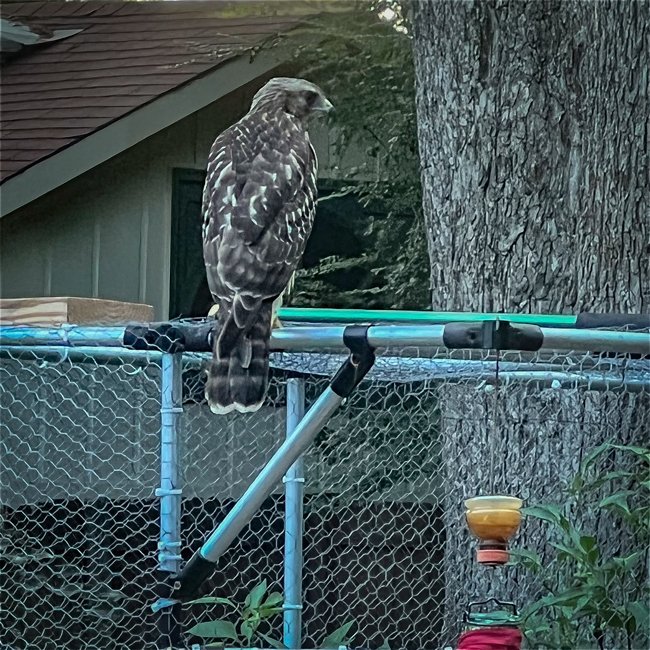
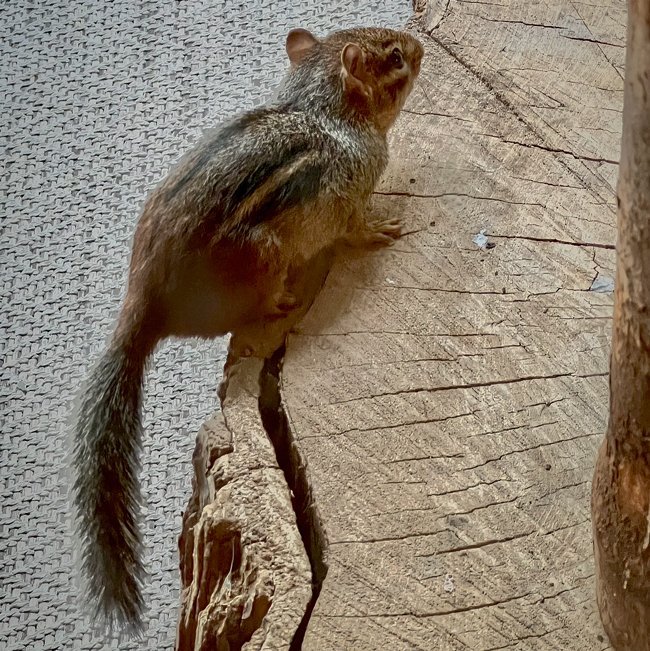
August 11, 2022
Everybody seems to hate them…. they stink when squashed or irritated but they’re in the show. There it was, outside the back door on the way to the garage… on a fern frond.
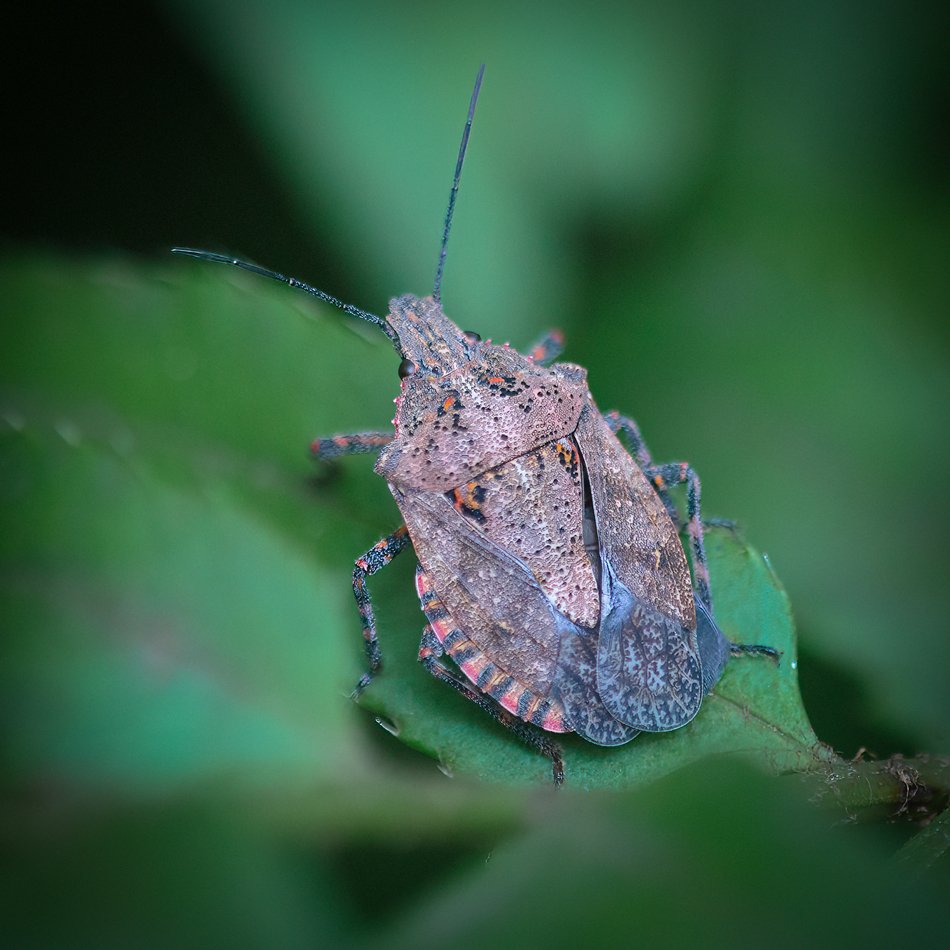
Rough Stinkbug (Brochmena quadripustulata)
And then there’s the earwig. I thought I would go out and turn over things, rocks, boards, leaves. It didn’t take long. Under a concrete block, first turn. I know it’s the order Dermaptera. Maybe I’ll figure it out later, the taxonomy. It’s about 17mm long.
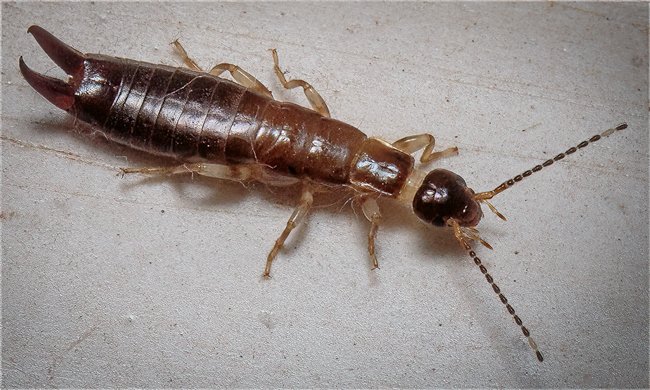
Common name: Earwig - Order: Dermaptera - Probably genus Euborellia
August 9, 2022
The Cabbage White is omnipresent and the larvae can do a lot of damage. But, hey, they’re here and they’re in the show.
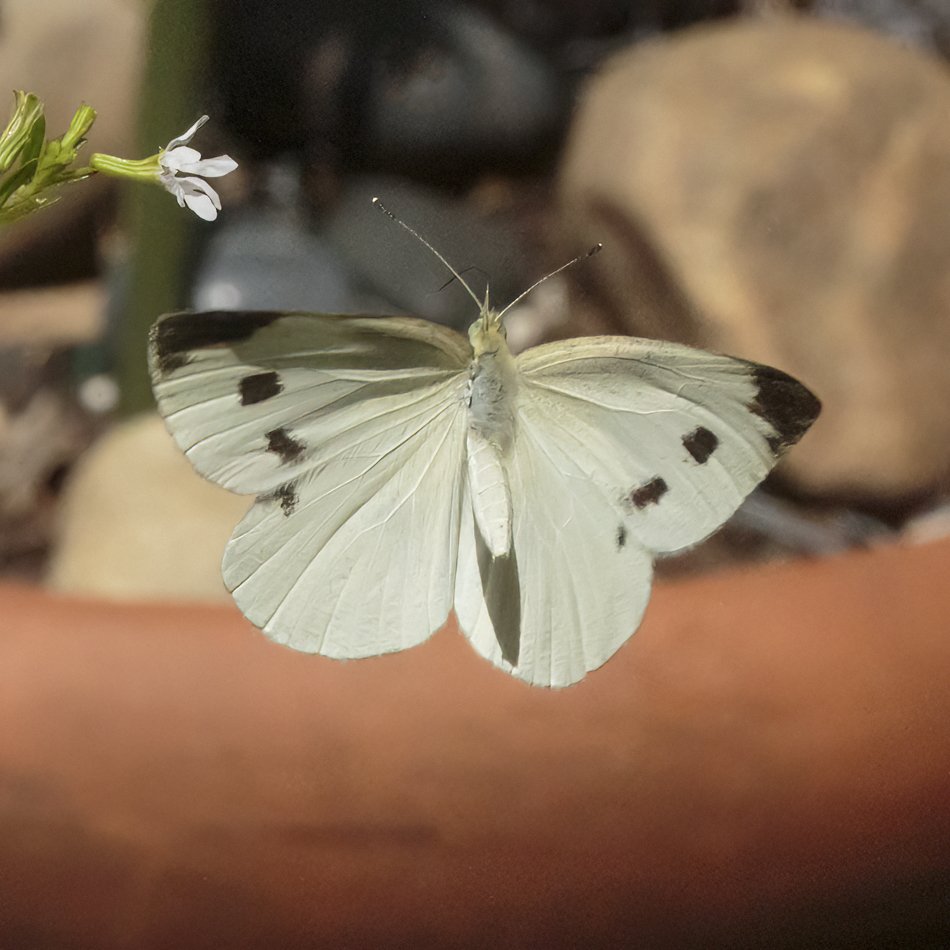
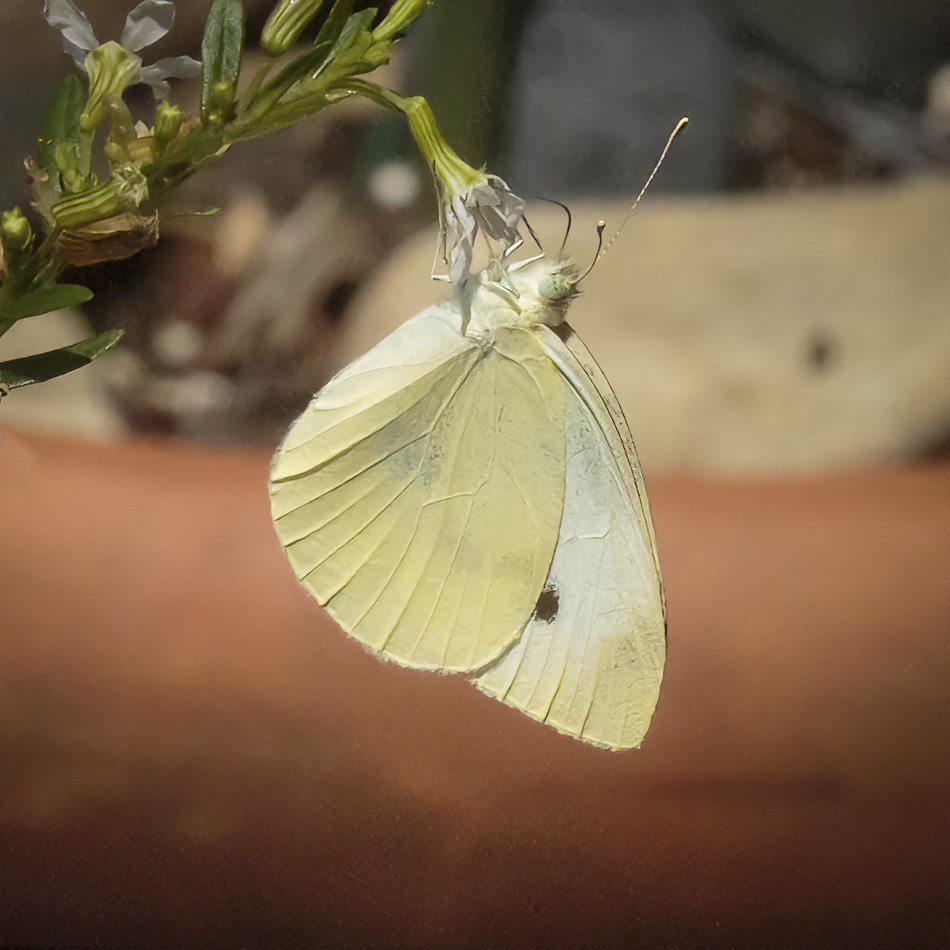
Things are not always as they seem. This tiny moth is very skittish, always flies to the underside of a leaf… makes it difficult to photograph. This afternoon I was startled when I happened upon this little guy and it never moved. Hey, I got right to it. Made a couple photographs and moved in pretty close. Then I noticed the hole on its back behind the head. Assassin bugs are around and I suspect this is the work of that ubiquitous species.
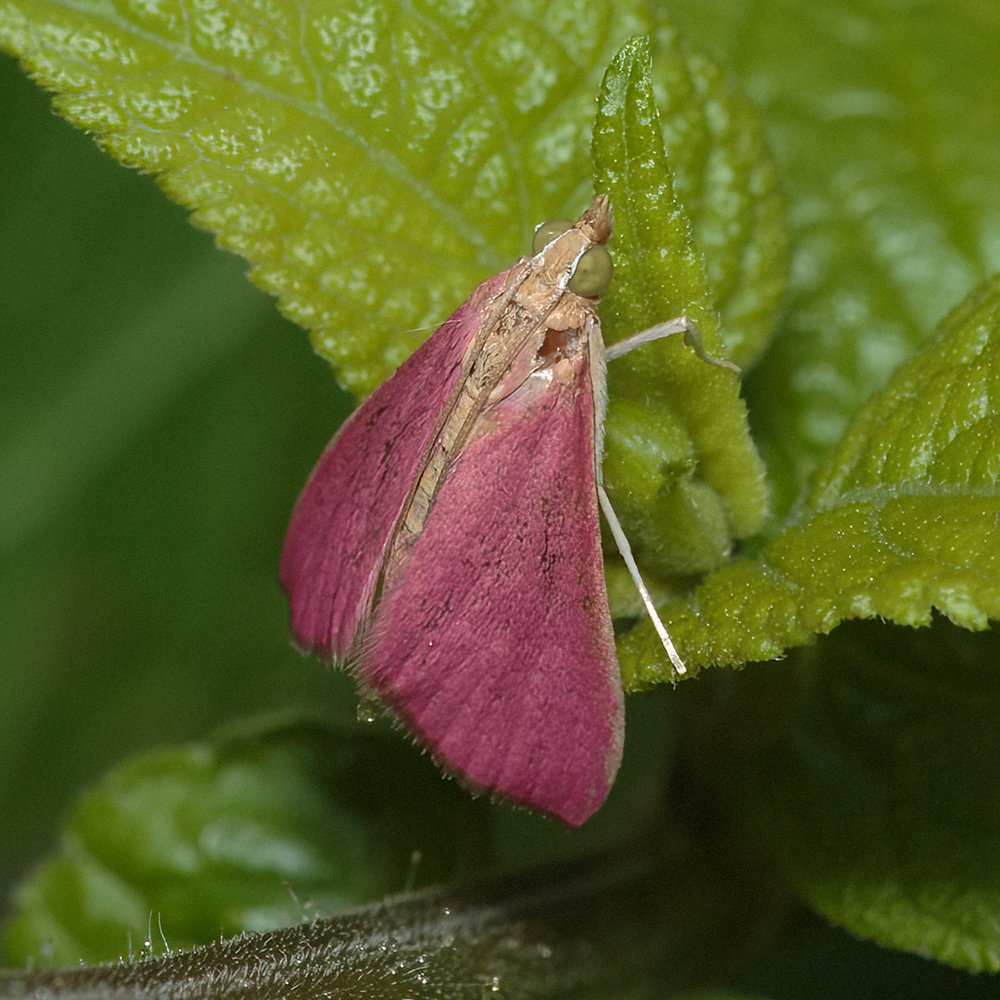
Inornate Pyraustis (Pyrausta inornatalis)
August 8, 2022
As each day progresses I find myself looking around the lot in what might be called “Familiar Places.” That’s because there is always some sort of activity there. Often as not they’re the “Usual Suspects.” Today I sat and watched the Black-eyed Susans for a while. Not only are there usually a varied bunch of insects on the flowers and leaves, often spiders hunt there as well. Today it was this guy. I know from its conformation it belongs to the family Reduviidae, the Assassin bugs and Wheel bugs and is probably in the genus Zelus. I know it’s immature but I have no idea of its place in the timeline of the species.
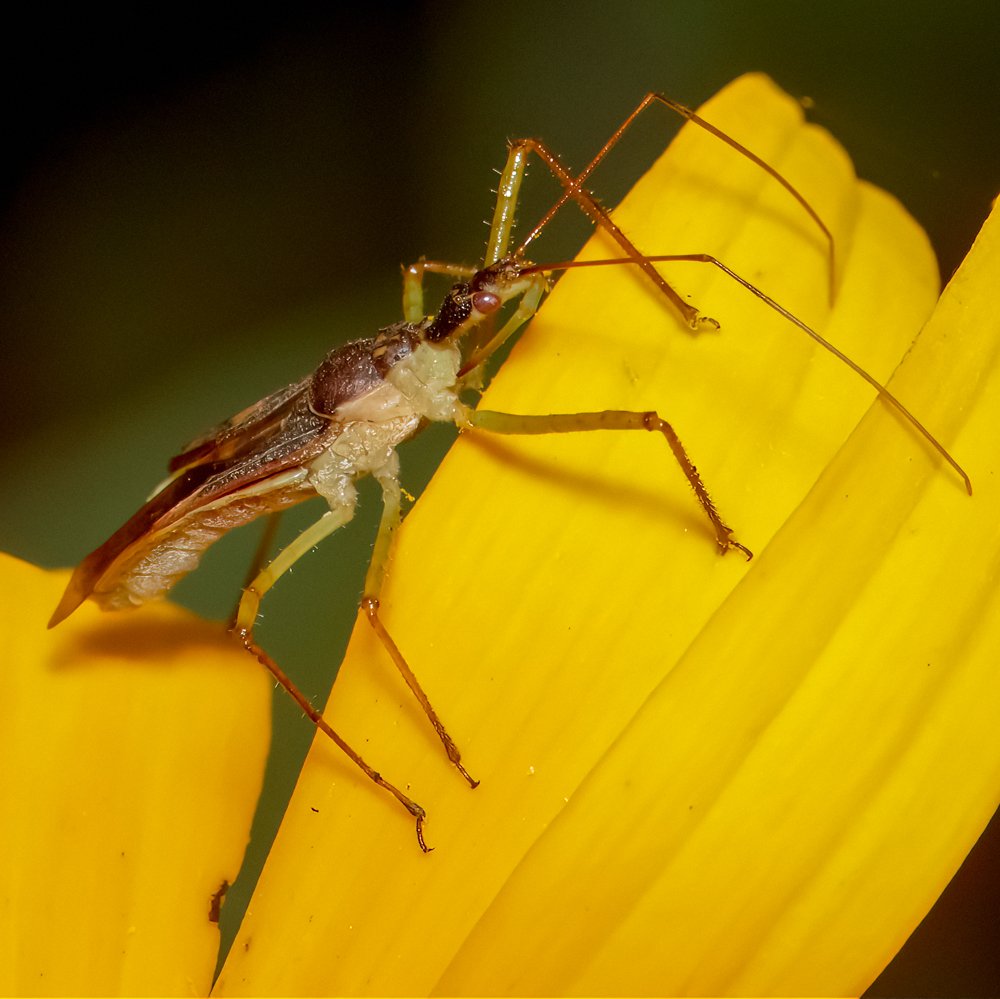
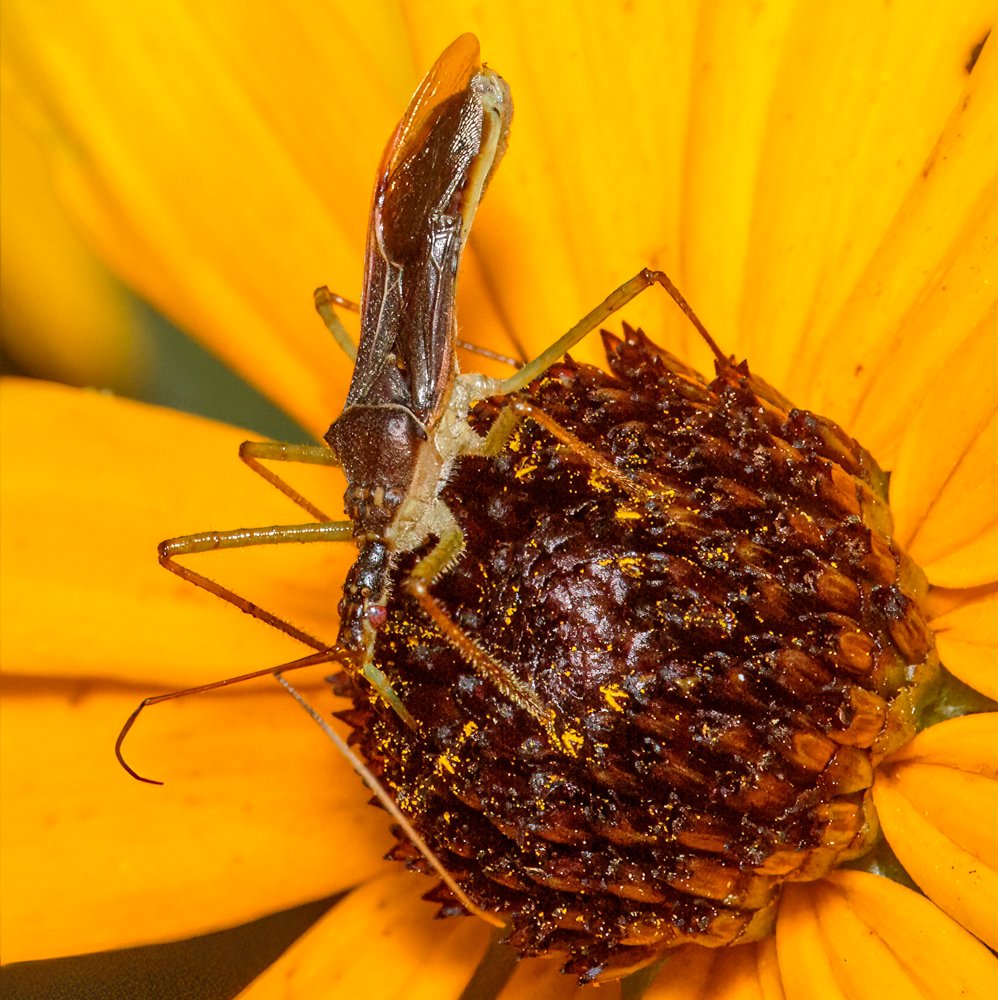
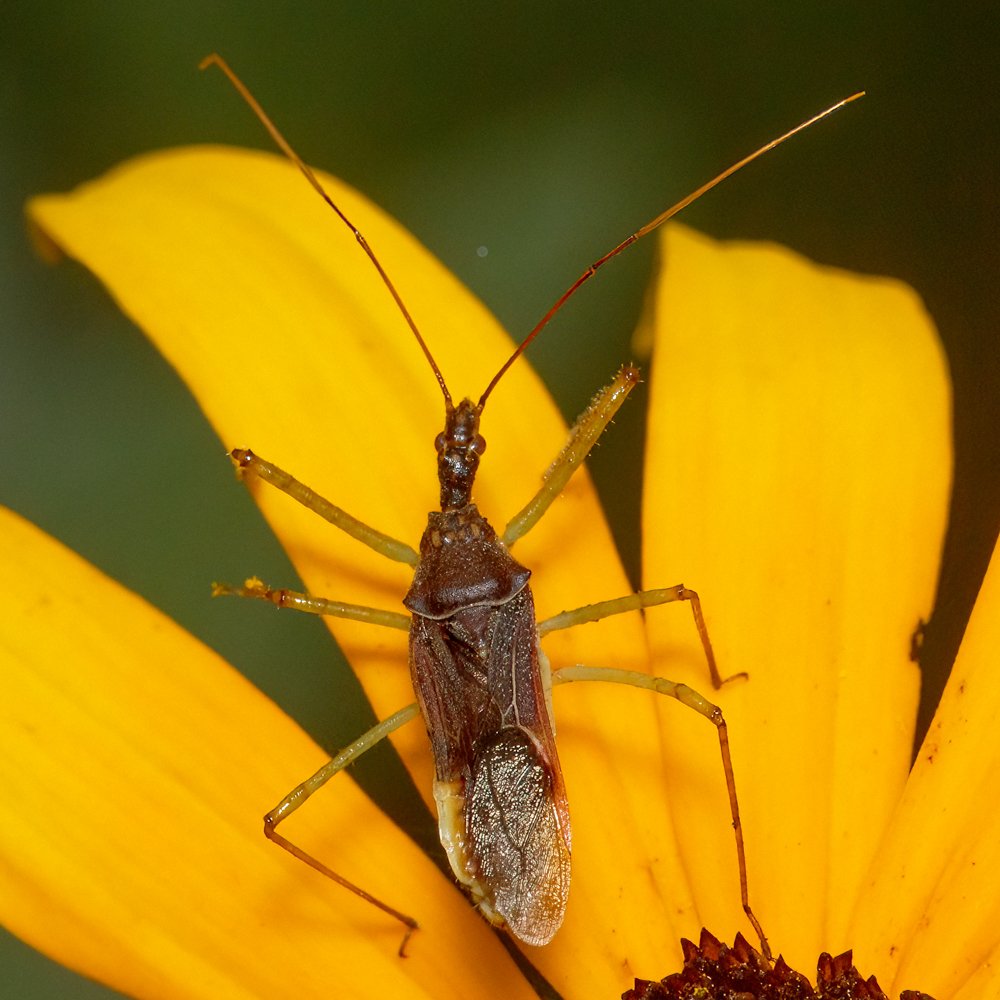
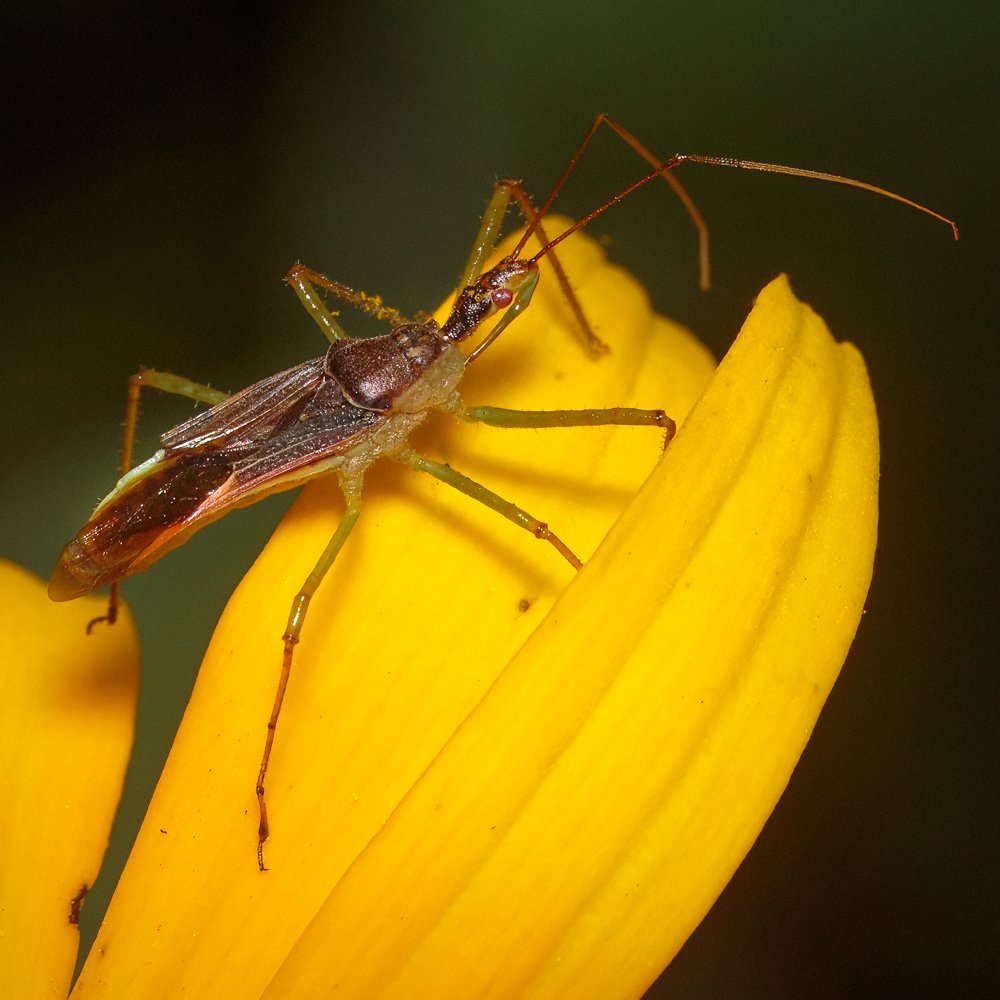
August 6, 2022
Raining a lot, tropical like, not all day. I have been watching this spider tend to her web for several days and I found out, as I was making these photographs, that I wasn’t the only watcher. This spider constructed a web that looks orb-like. It has a span of 18-24”. Her body length is about 1 cm. I think this is a species that belongs to the genus Nephila but I can’t find a accurate description. I found one photograph of this species on the internet but, of course, it was made by someone trying to sell the photograph and they didn’t identify the spider. Any help with ID appreciated.
—— Addendum 8.9.2022
I submitted the images below to iNaturalist and the return for ID seems to be that this is a Joro Spider. The Joro spider is Trichonephila clavata, single species. There are a lot of images of T. clavata on line. I’m not believing this ID for the spider I photographed. (It’s difficult being a neophyte about almost everything.) I had accepted the genus as Nephila now I read that there was recently a change between the genera Nephila and Trichonephila. However, there are only 2 species of Trichnonephila in North America, T. clavata (Joro Spider) and T. clavipes. I’m not seeing this spider as either. I need an expert who won’t glance at the photos and spout something off the top of their head.
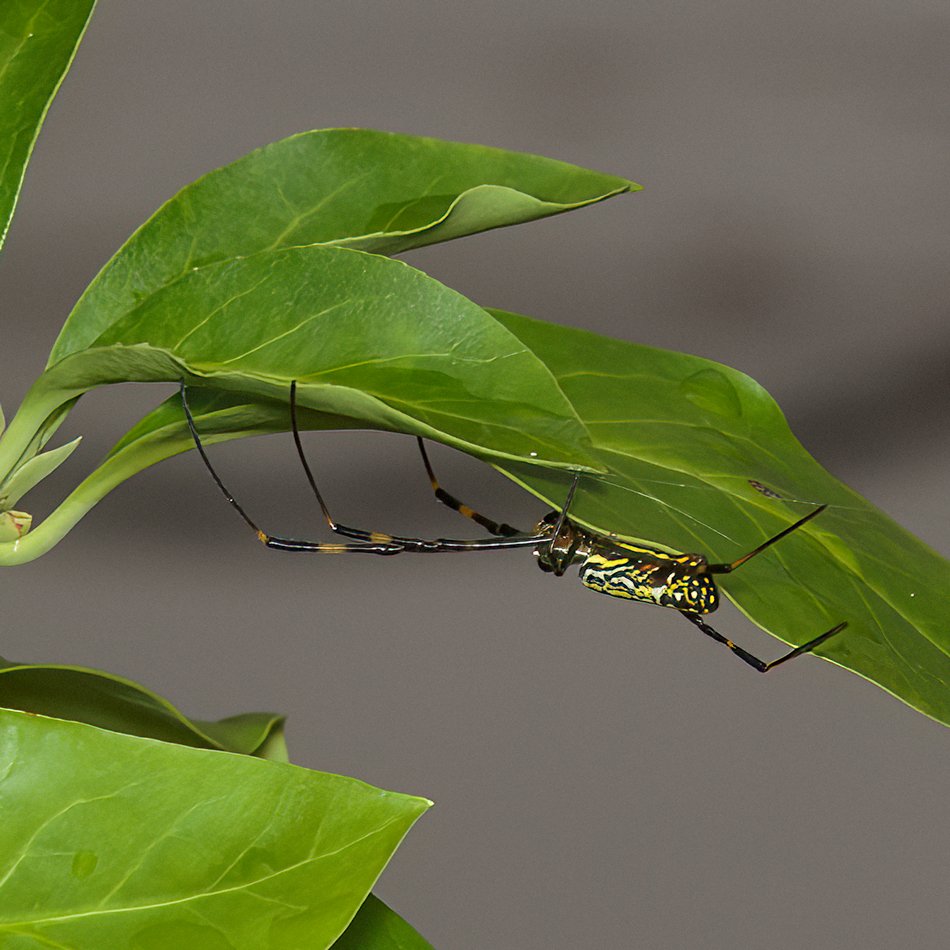
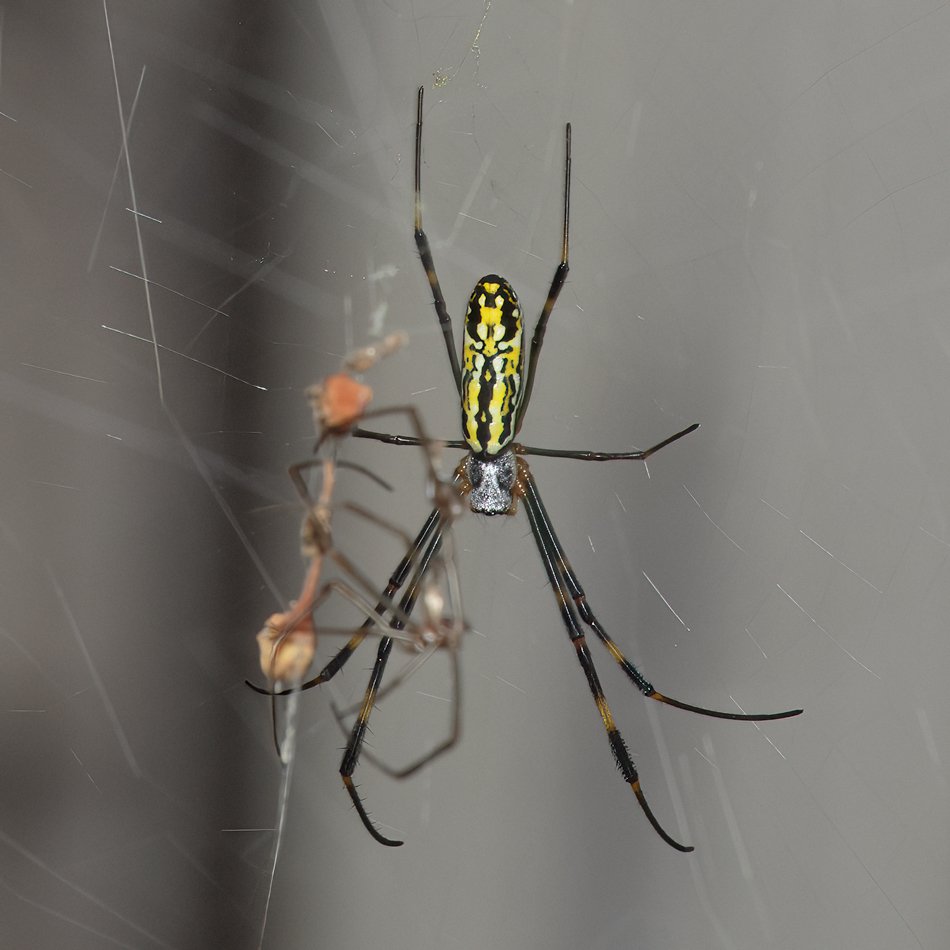
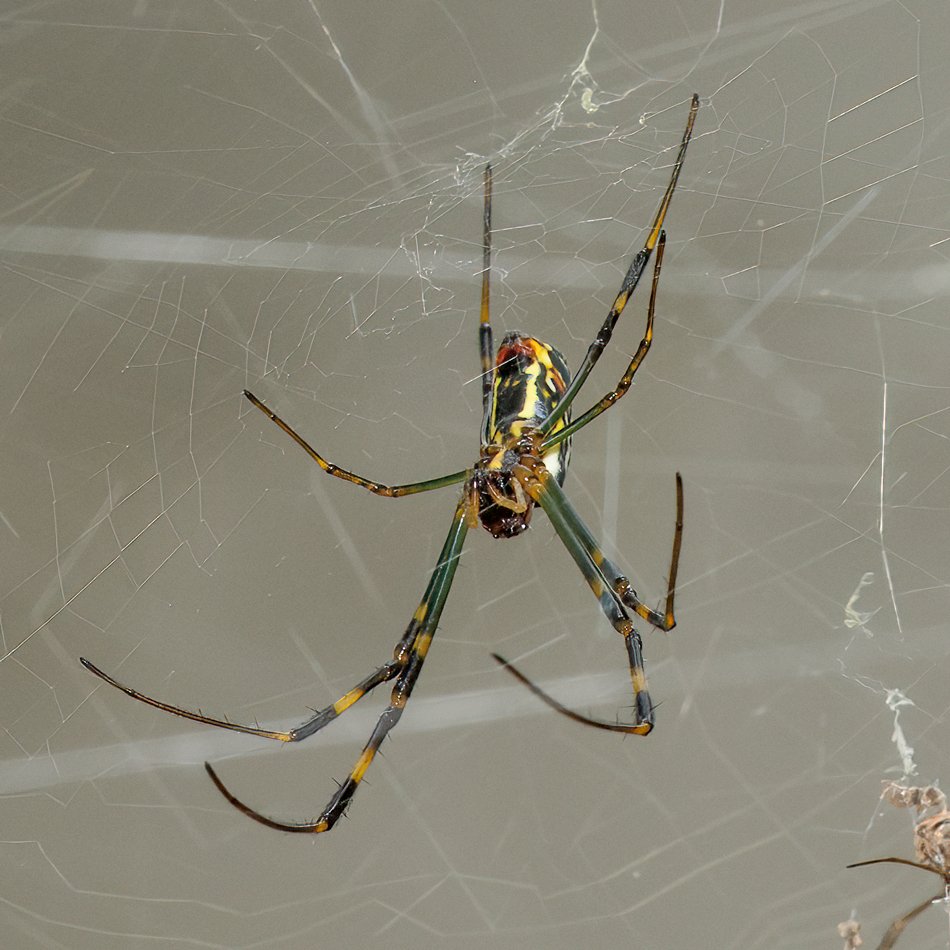
Here’s a comparison…
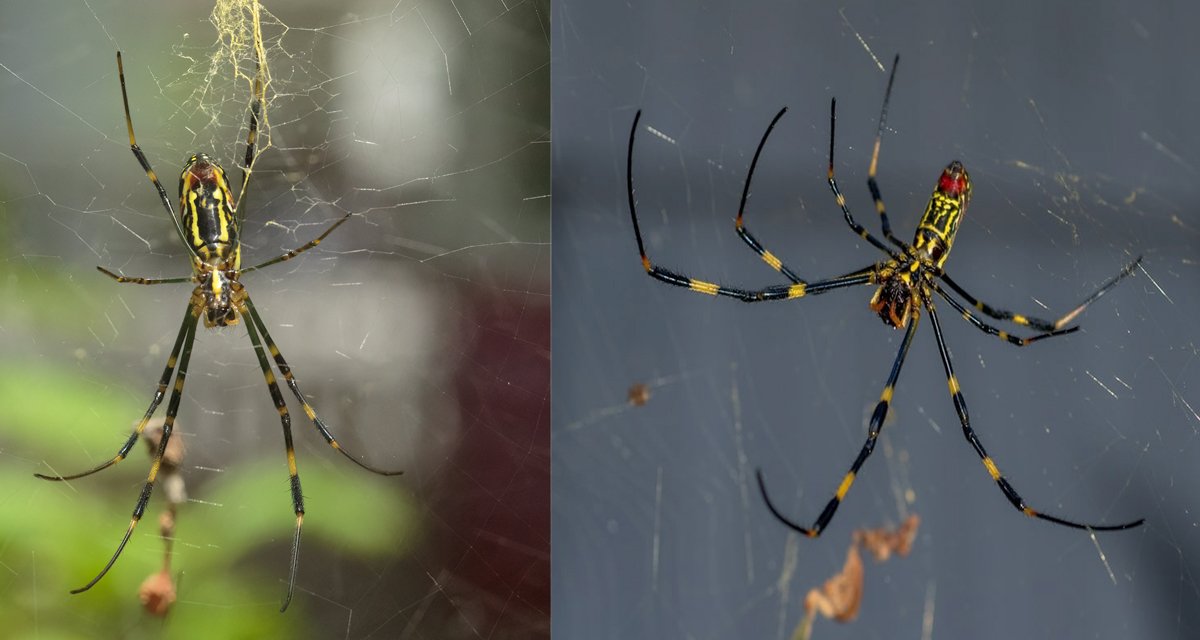
My photograph on the left and an acquired photograph of Trichonephila clavata.
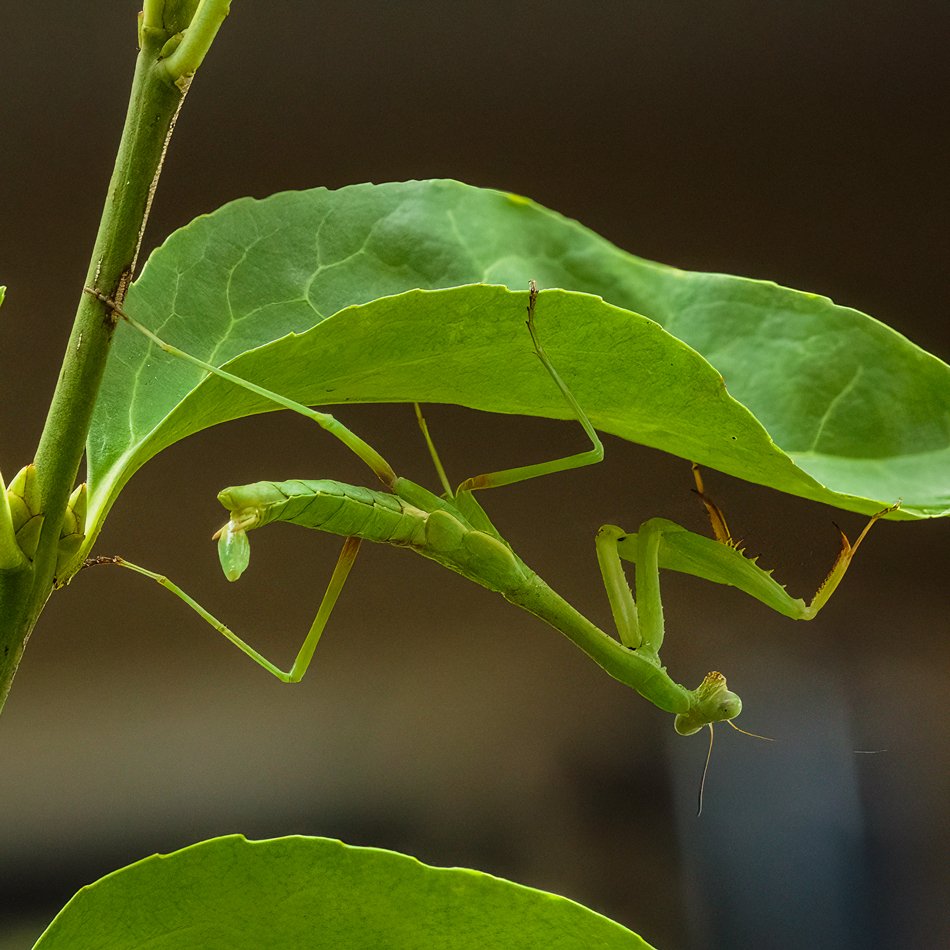
Immature European Mantid (Mantis religiosa)
August 5, 2022
Hemiptera, Leptoglossus sp. - Leaf-footed Bugs
They’re everywhere. We’re used to seeing “Stinkbugs,” they’re in the house, on the screens, the most ubiquitous Hemipterans. But this little guy, an obvious different species, was crawling around on a fence in the back of the lot and since I captured him for photographing (he’s back on his fence now) I’ve seen several more, different species. Fantastic.
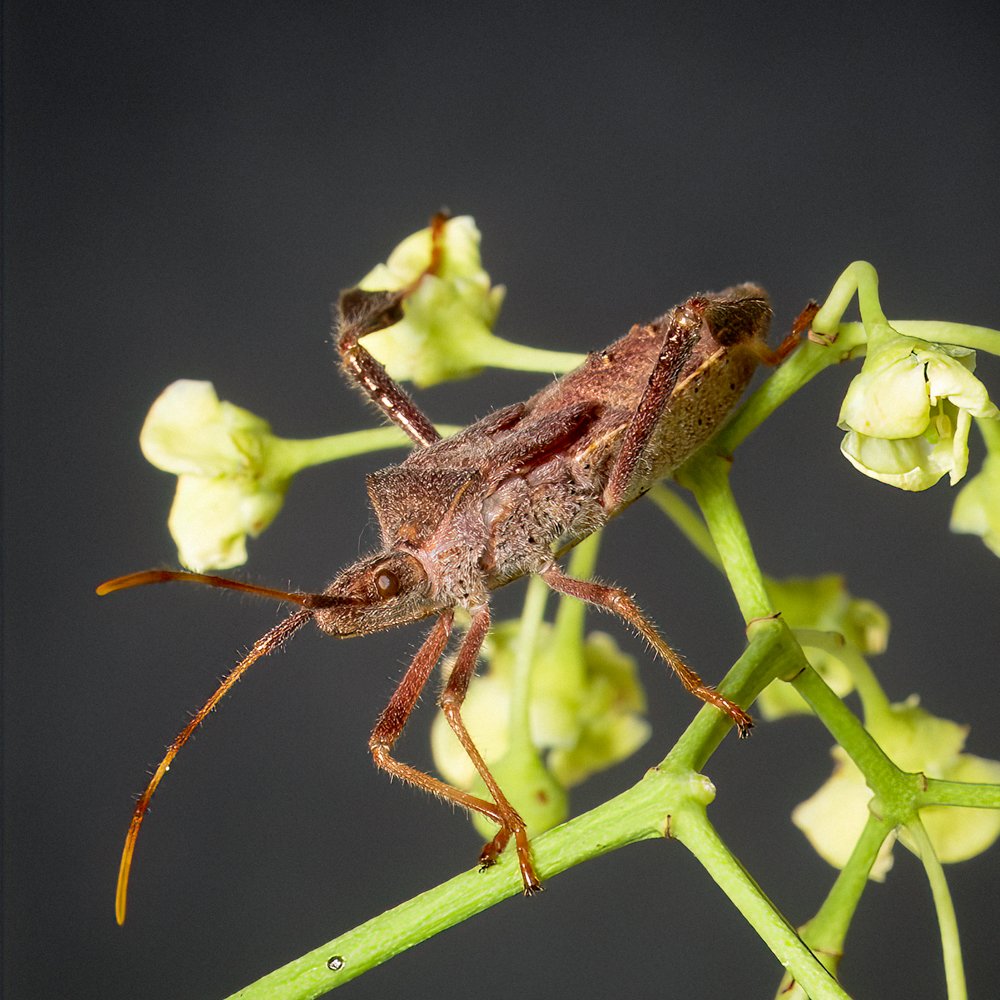
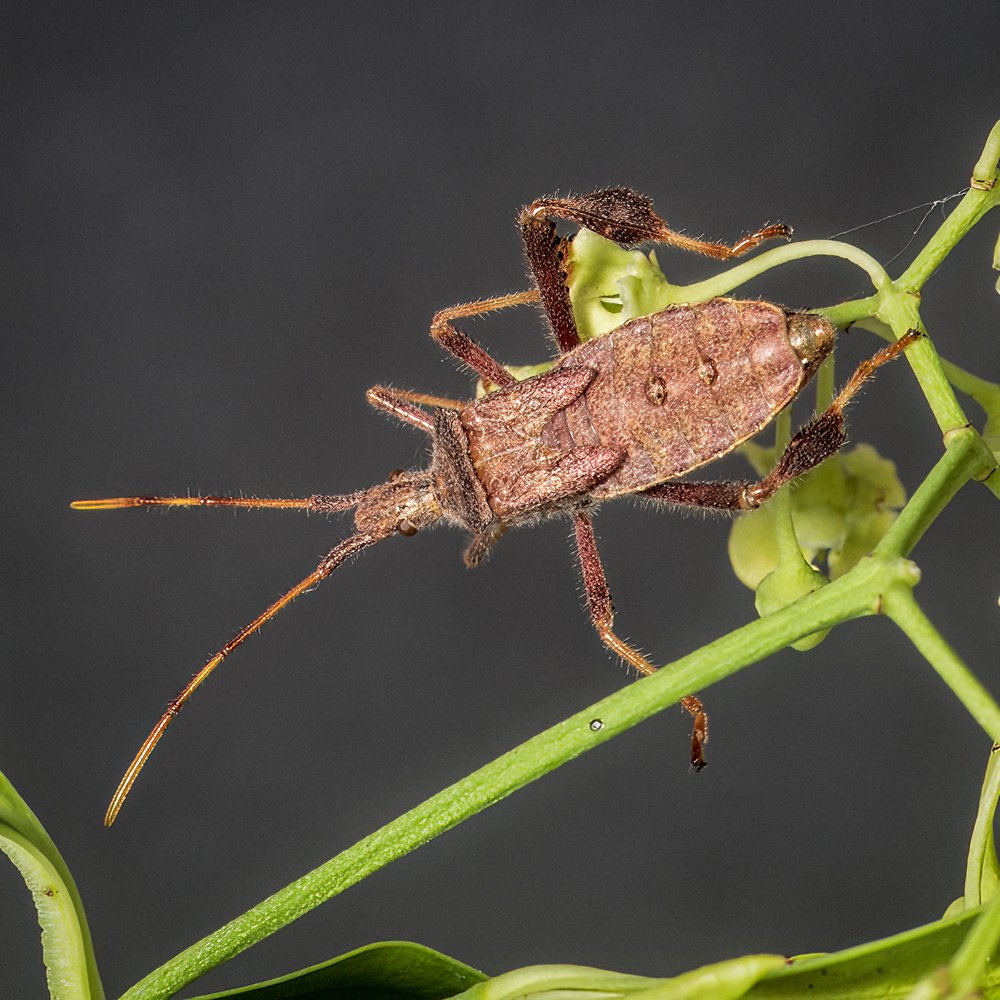
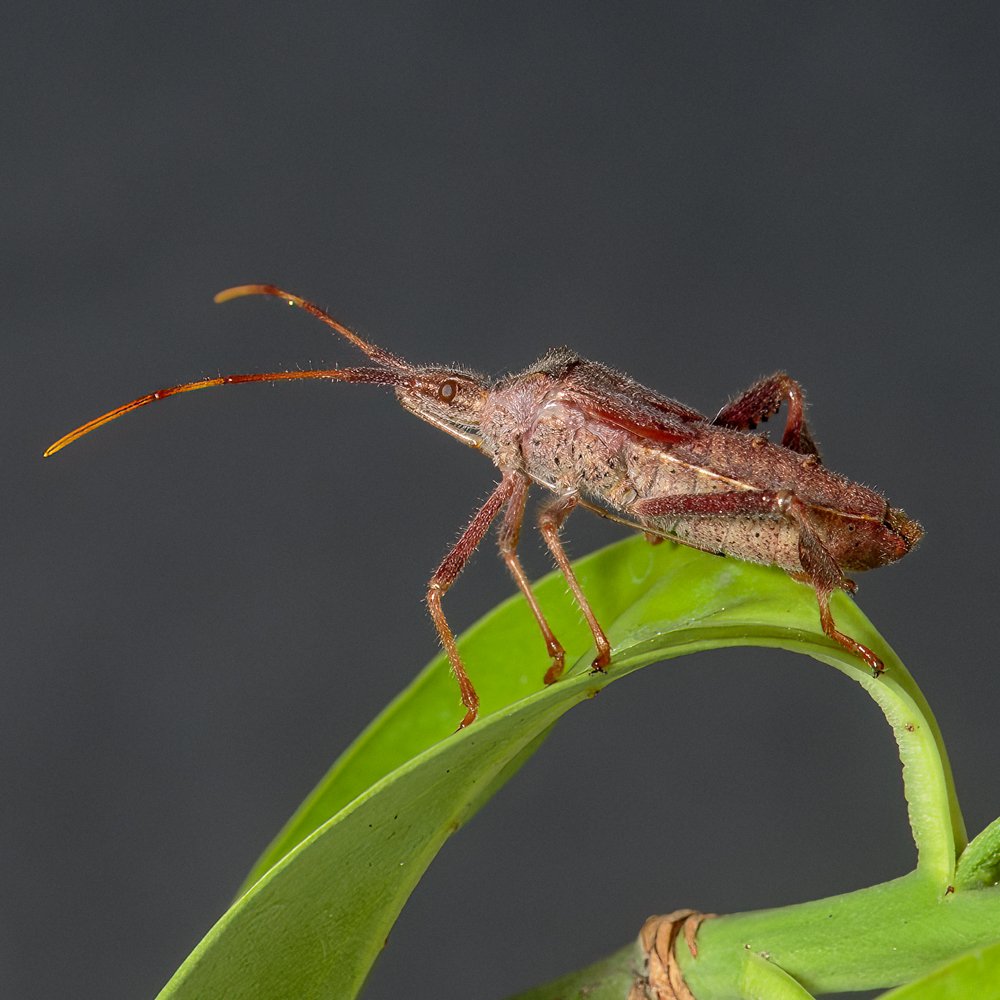
August 4, 2022
Bald-faced Hornet (Dolichovespula maculata)
These wasps are related to the Yellow Jacket and are not really hornets. True hornets belong to the genus Vespa. This specimen looks dead but it’s not. I refrigerated it for about 20 minutes, photographed it and released it to the plant it came from after it awakened. I’m still working on that technique. With this one I got one chance to get a photograph of it animated and then off to the races. Have to be careful, they sting. If I get a chance to photograph the wasp in action or looking alive, at least, I’ll post it.
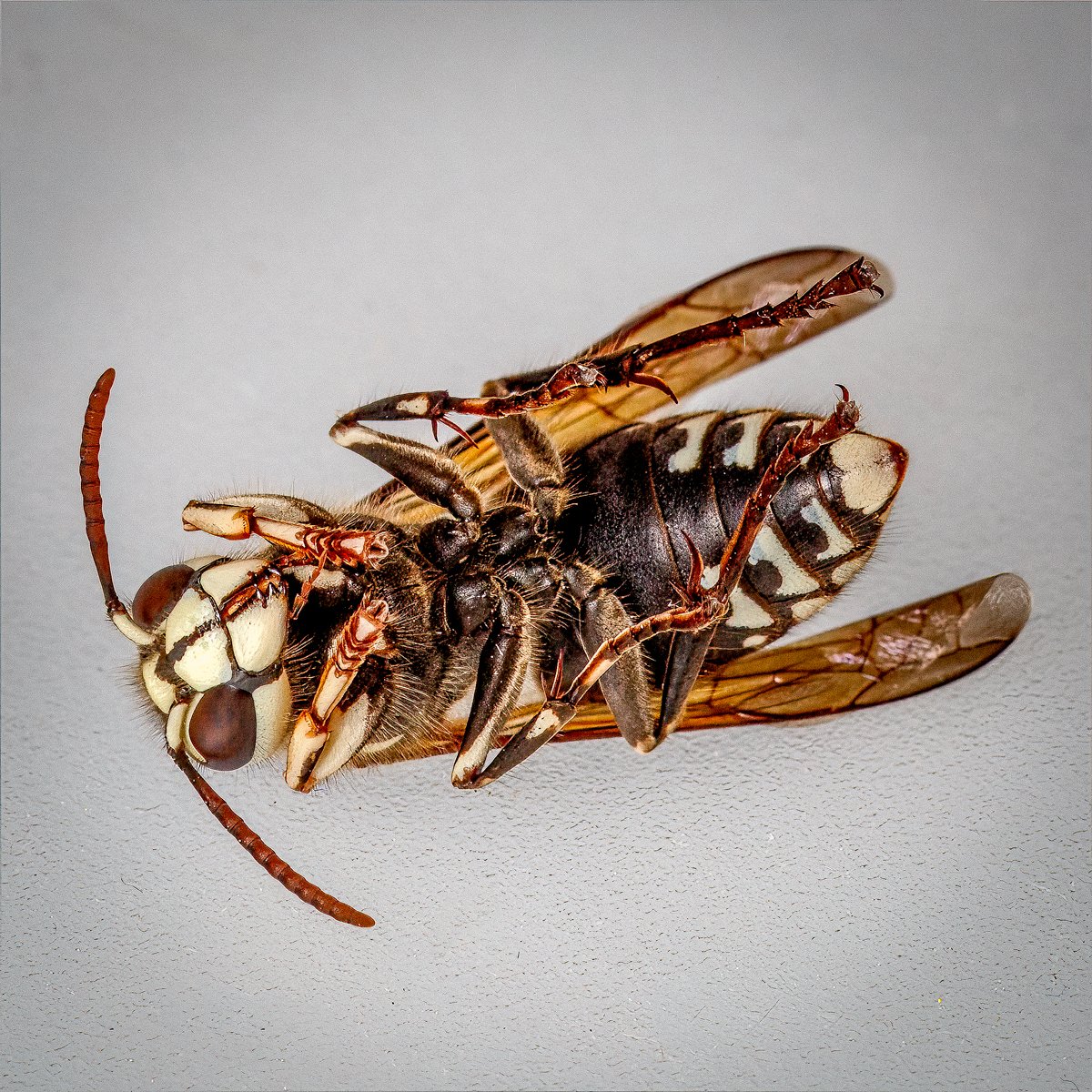
August 2, 2022
Various lichens and fungi photographed over a 2-3 week period in 2022
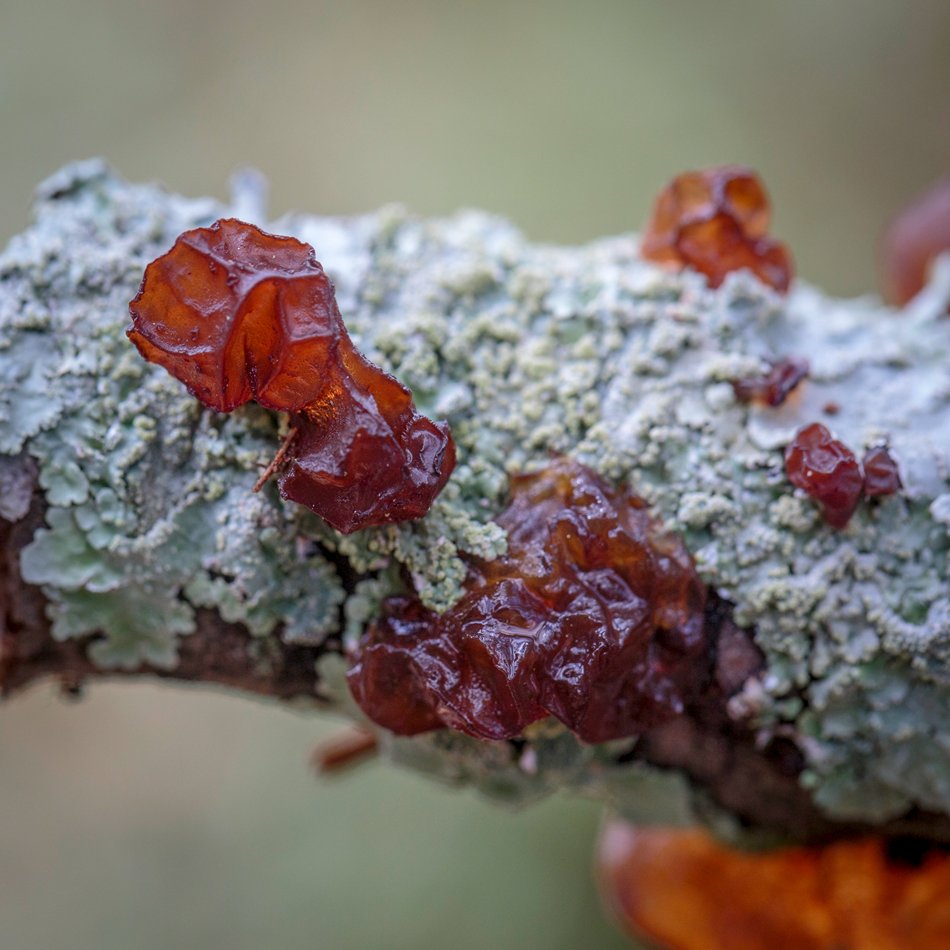
Jelly Fungus
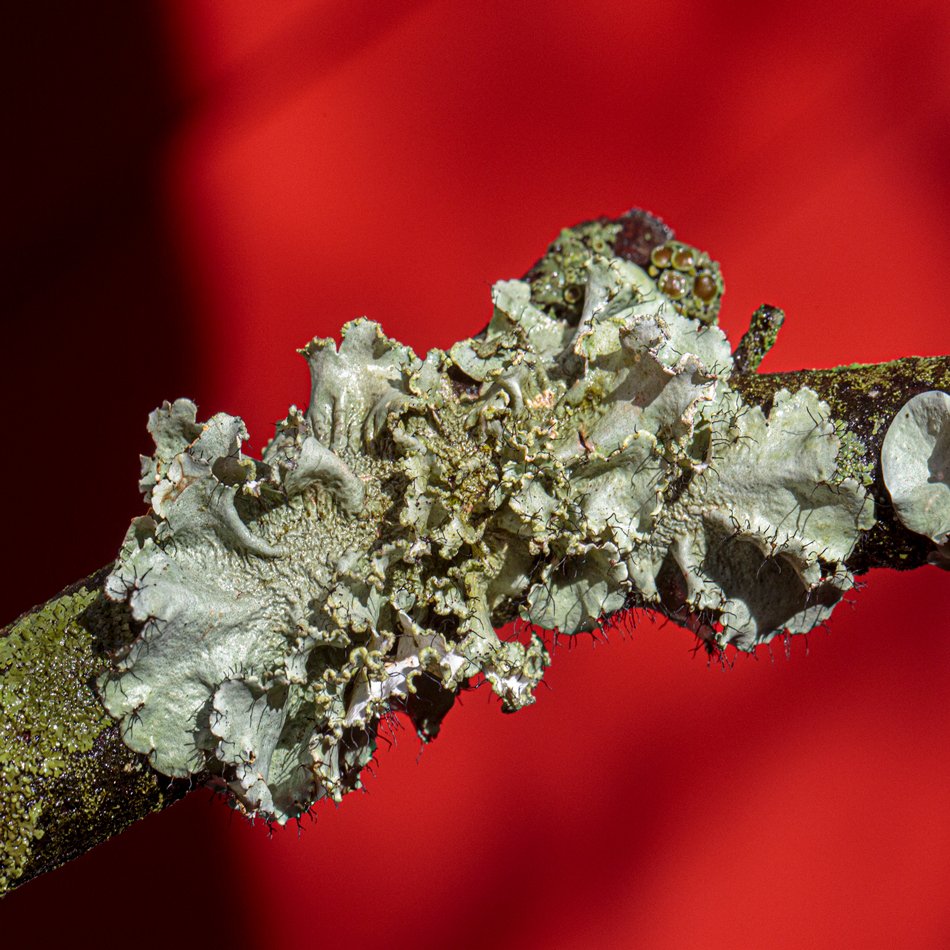
Foliose Lichen
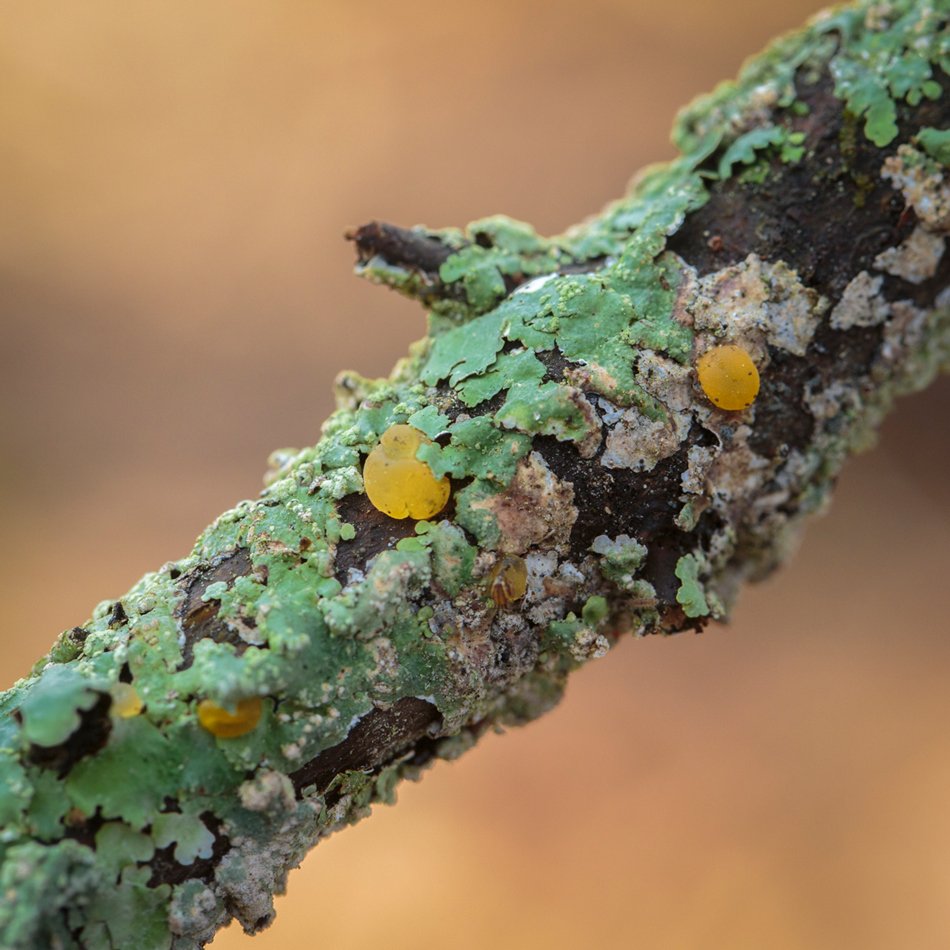
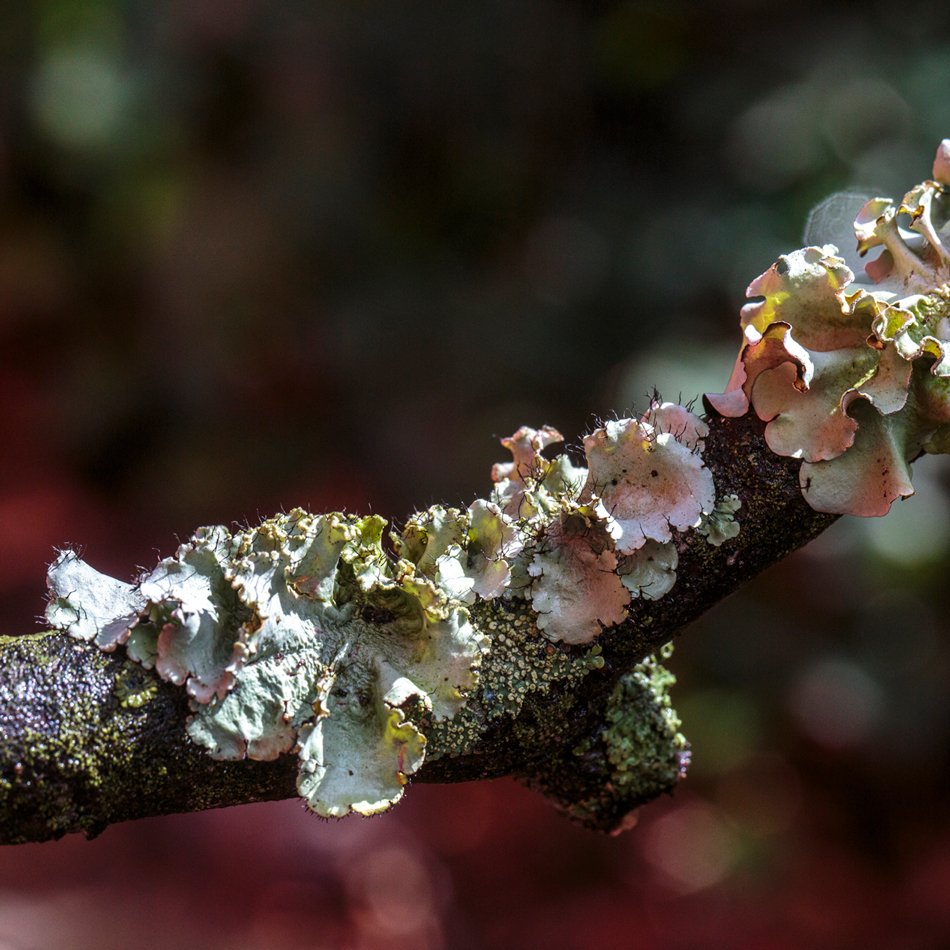
August 1, 2022
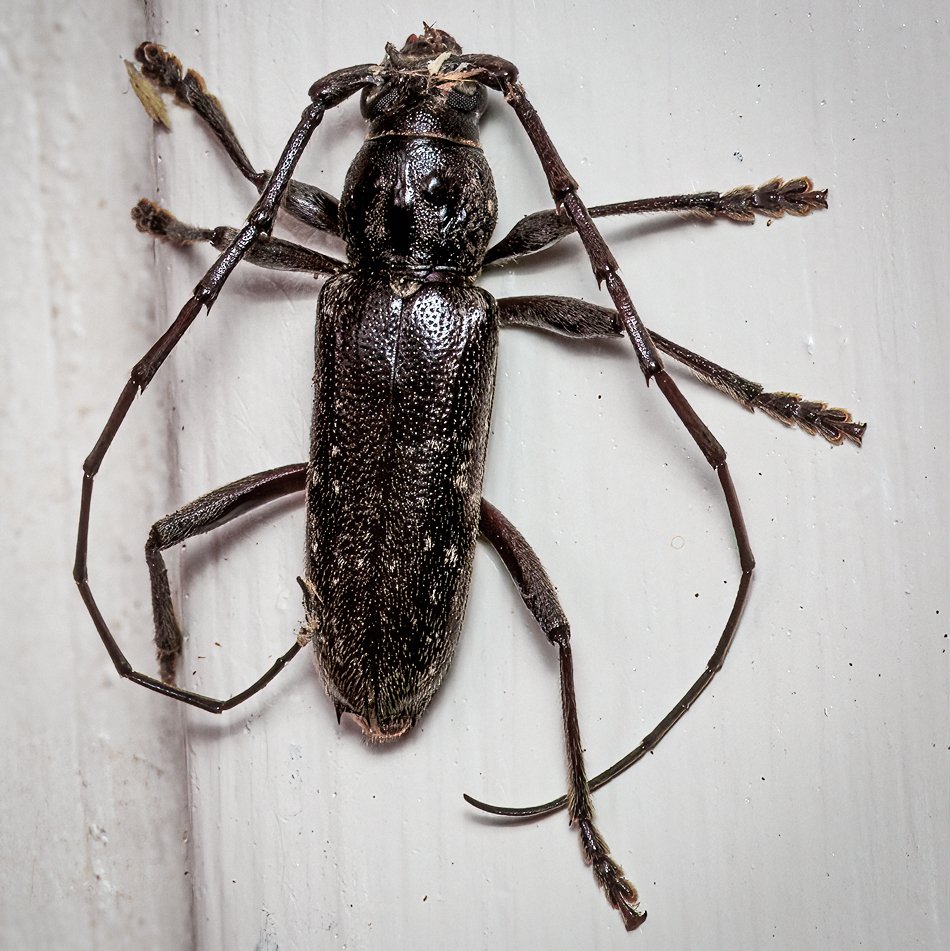
Family: Cerambycidae (Long-horned Beetles) Genus: Aneflus (maybe) 20mm.
July 31, 2022
